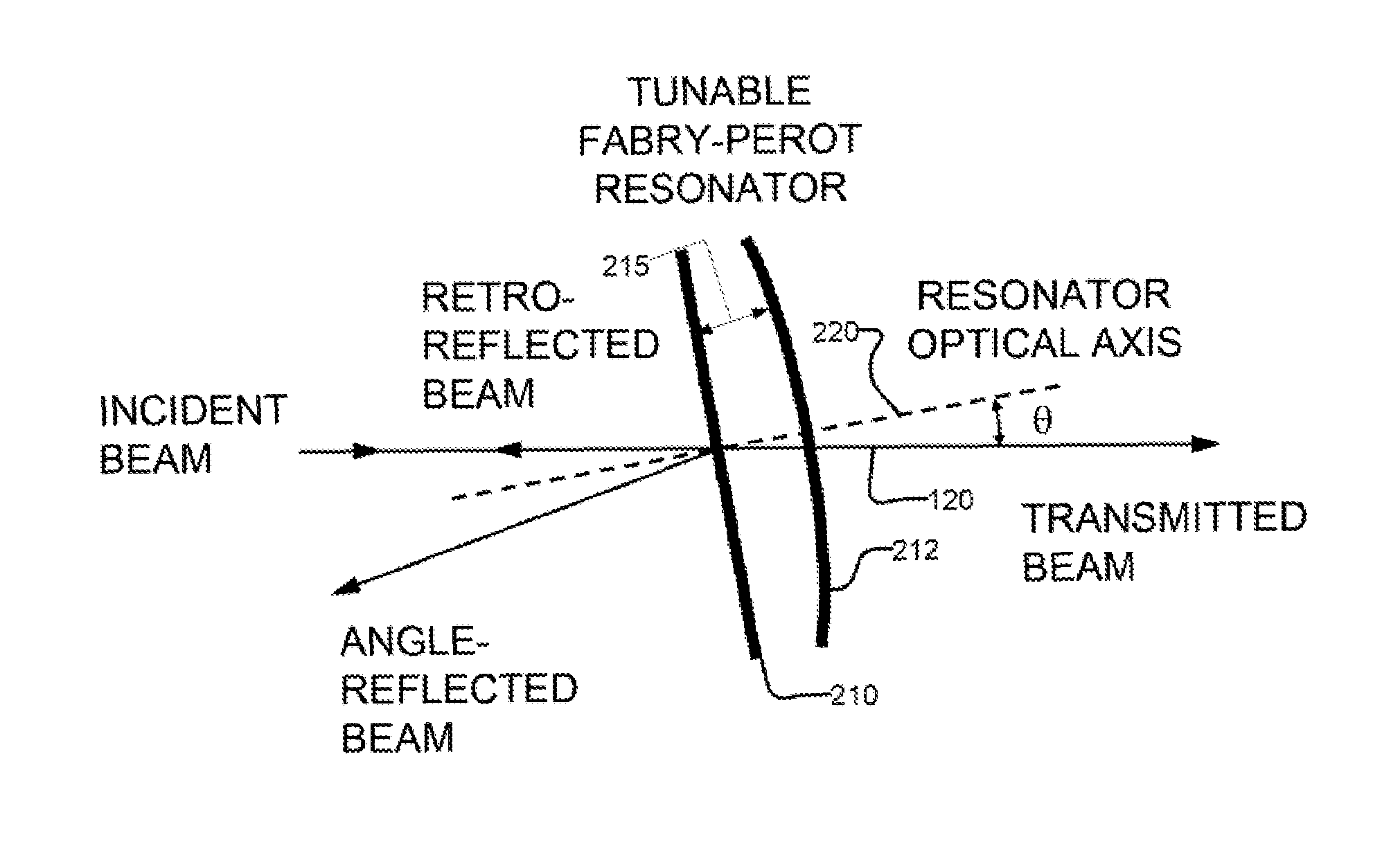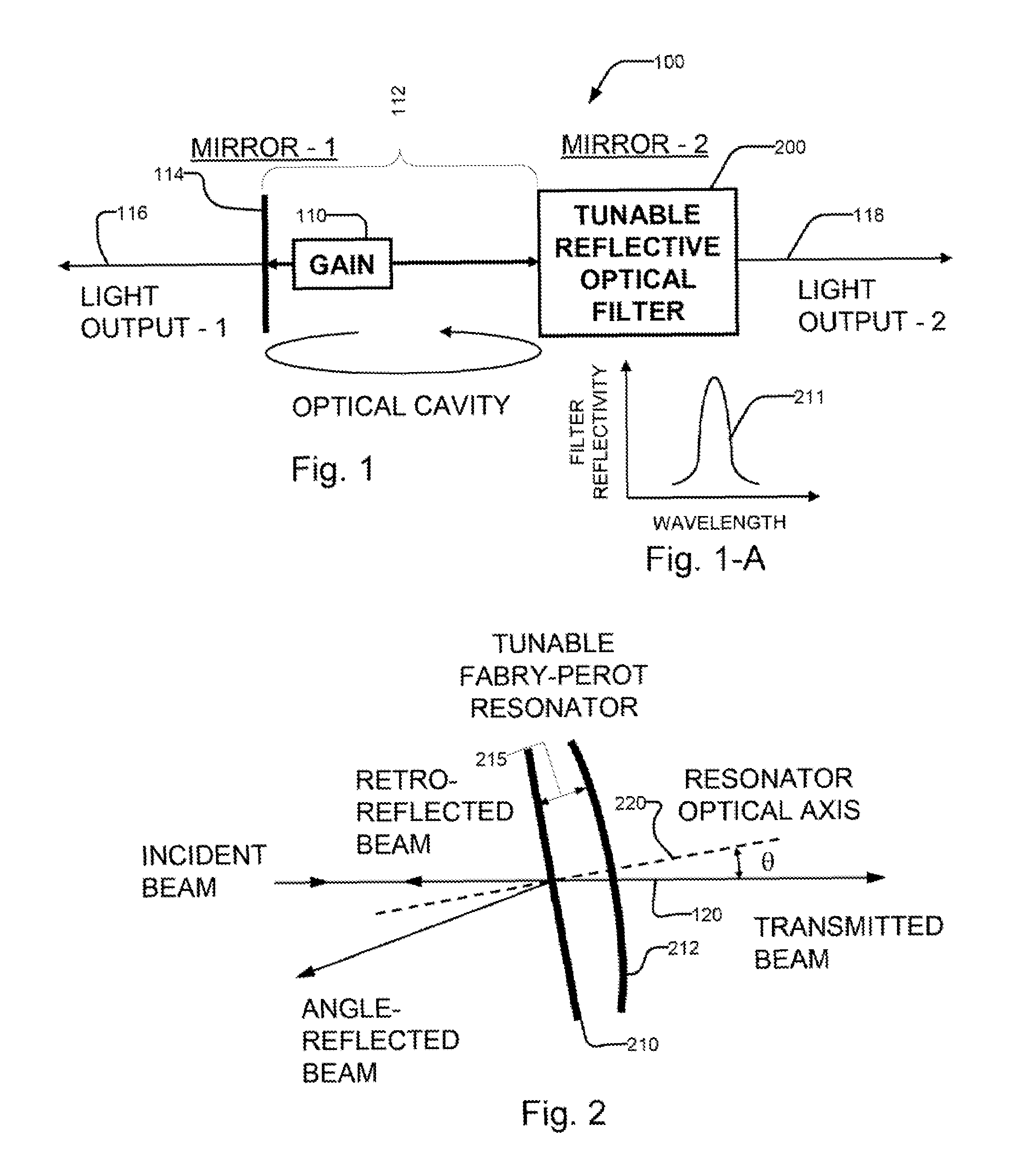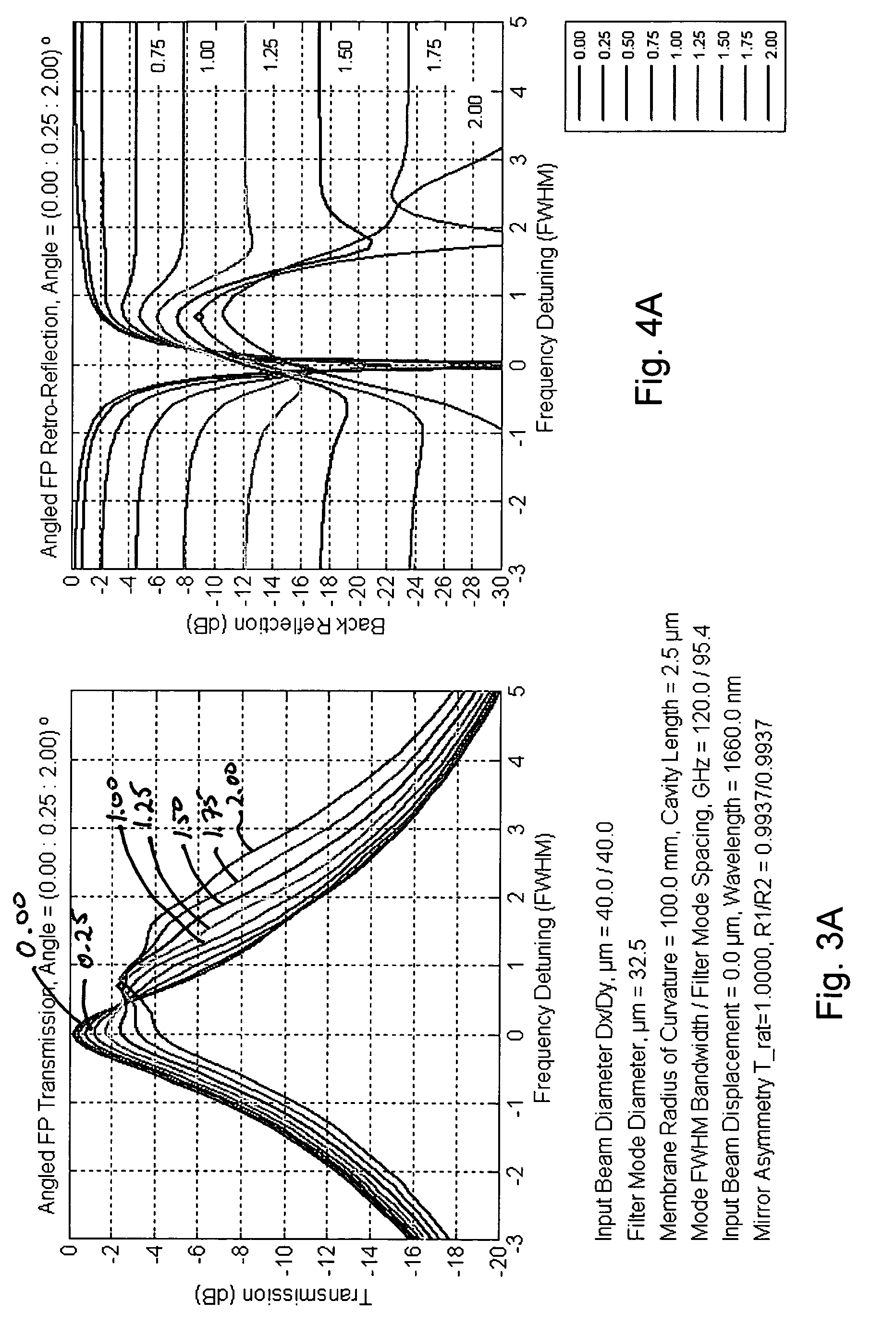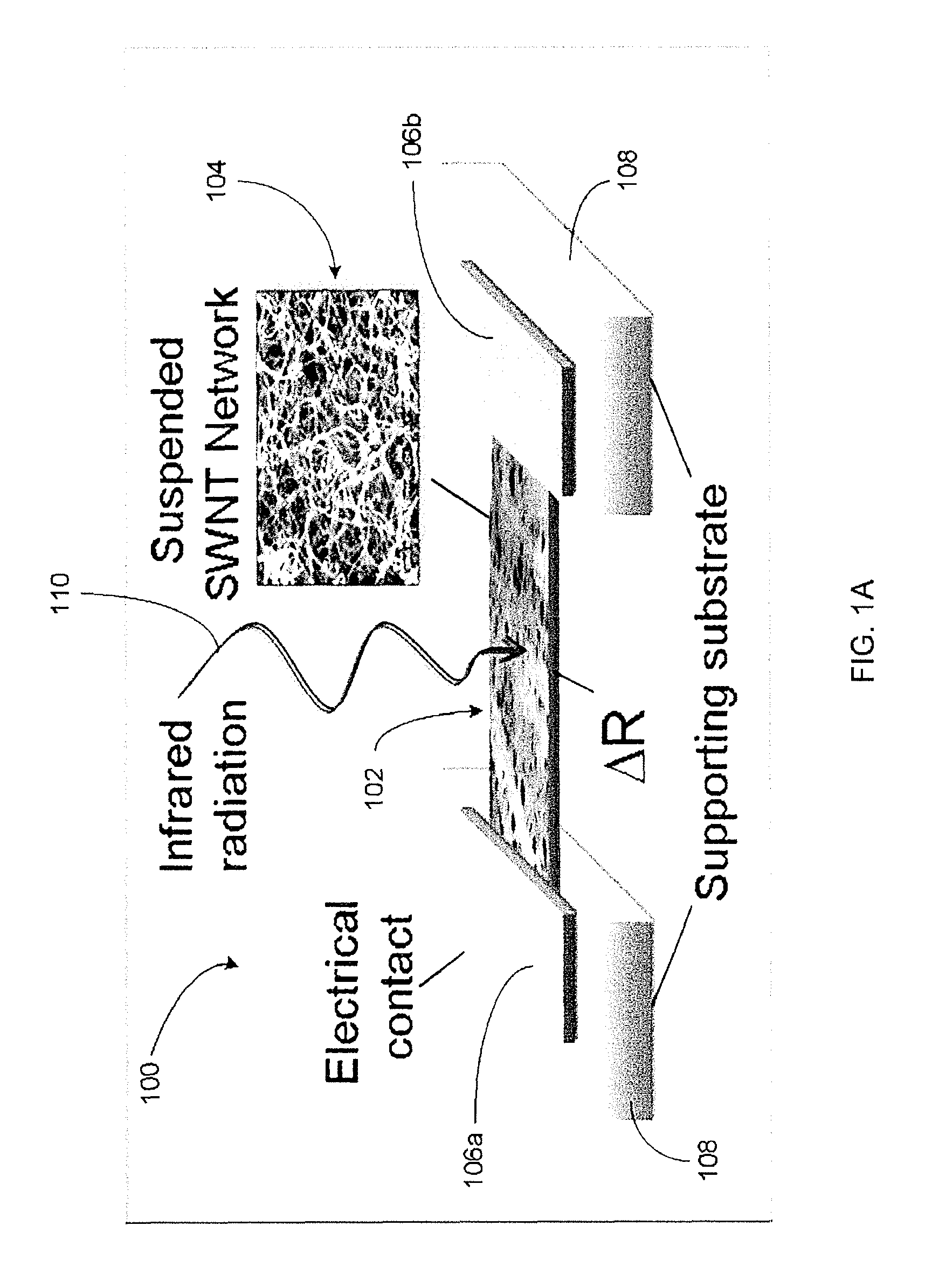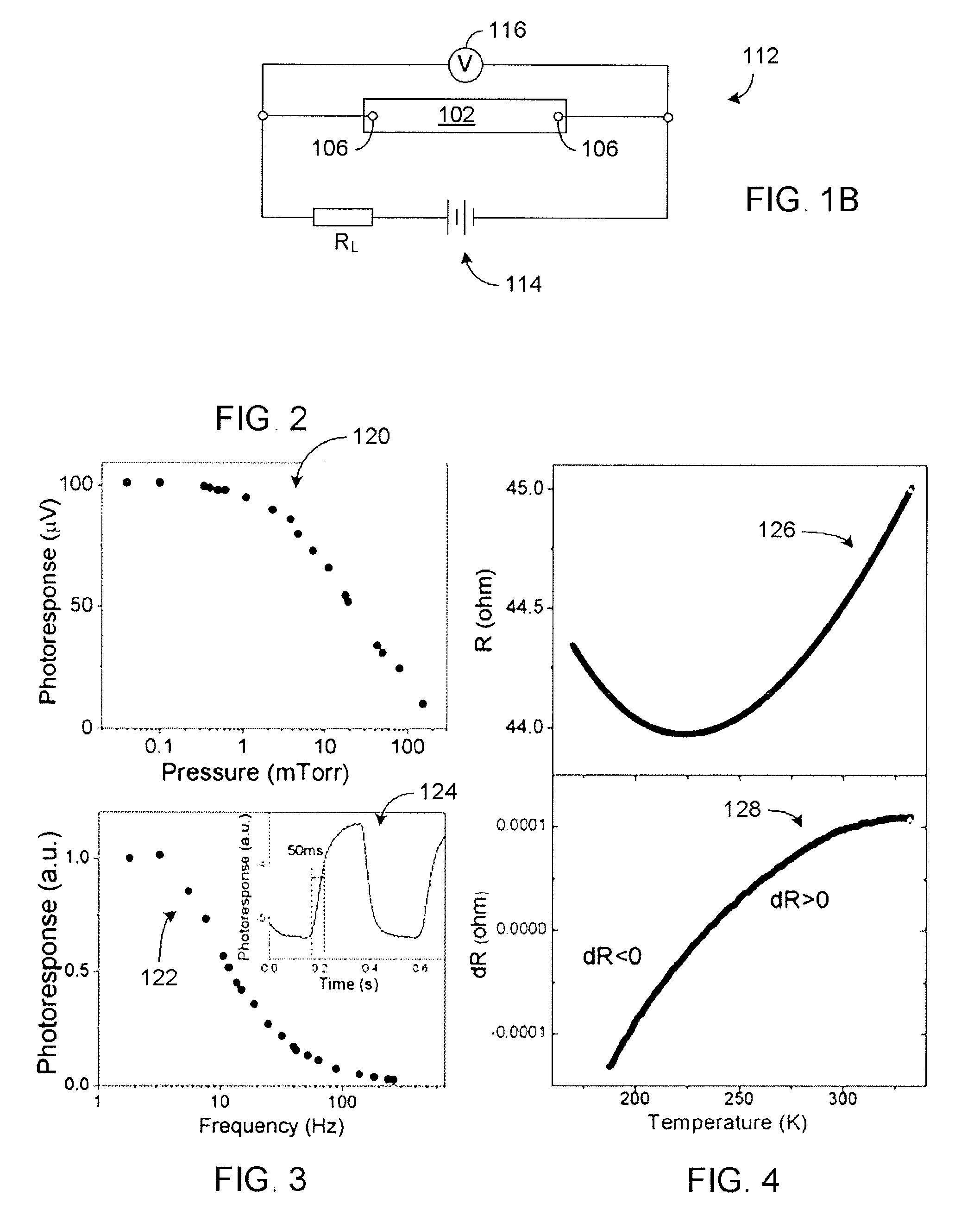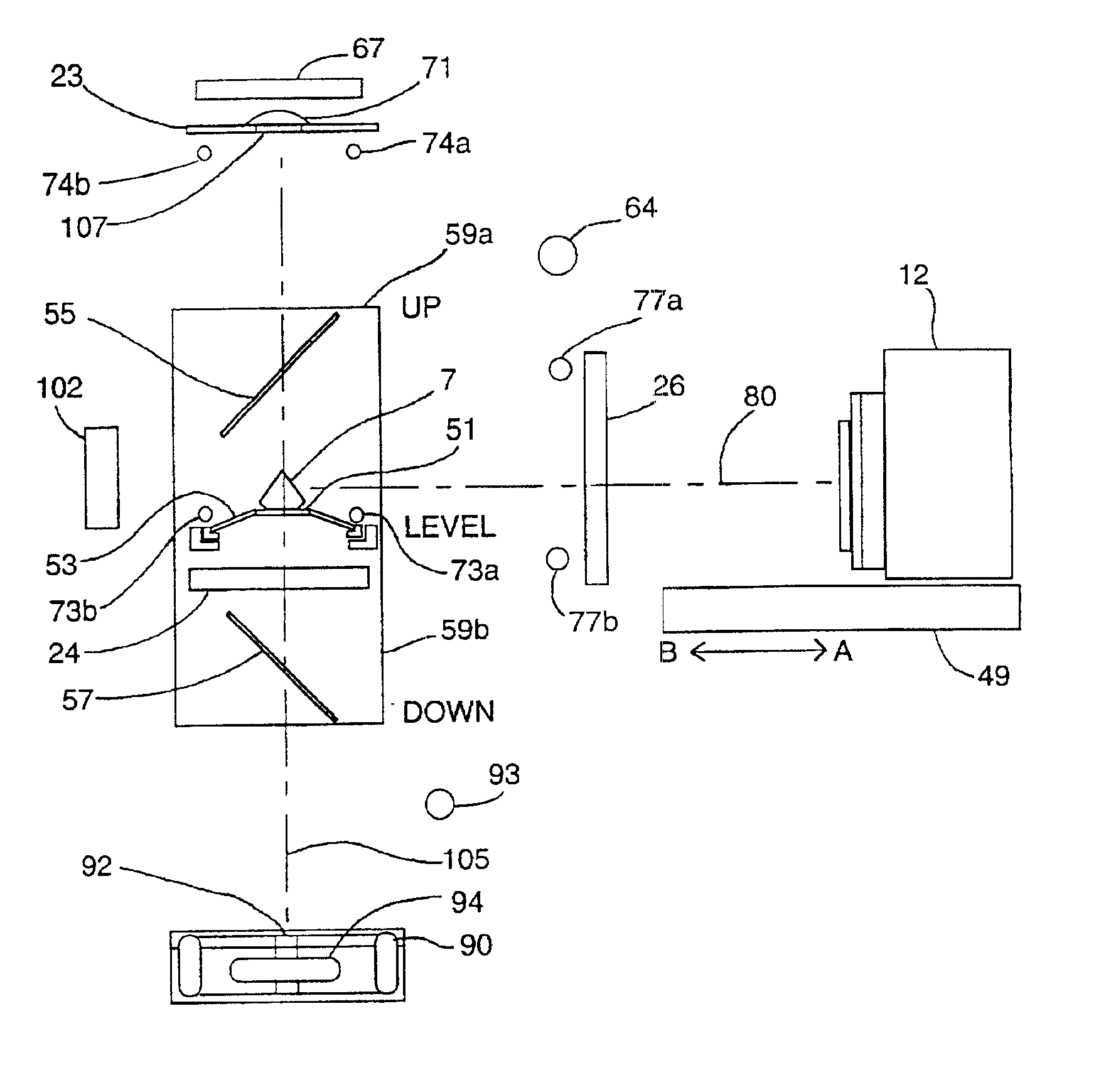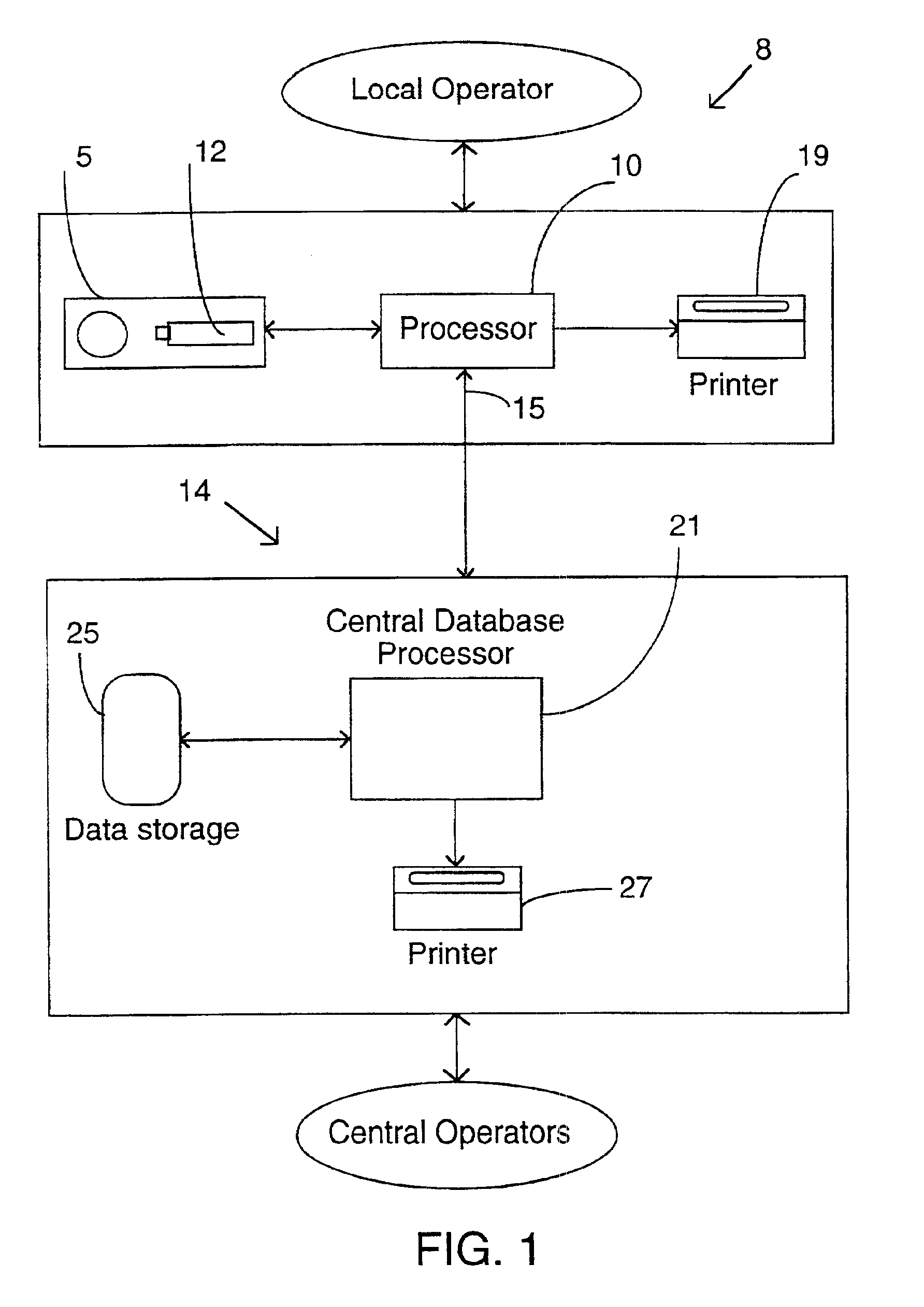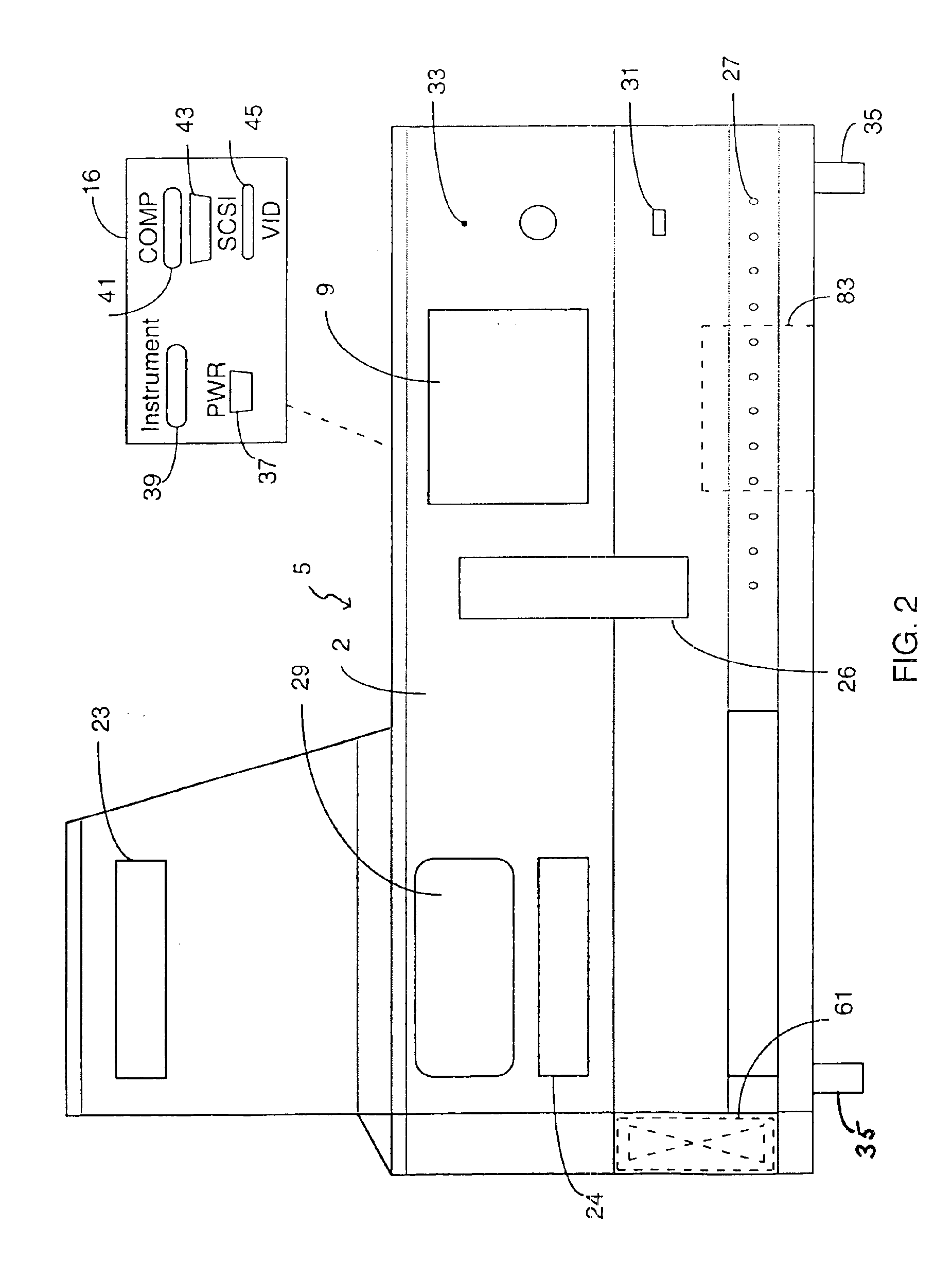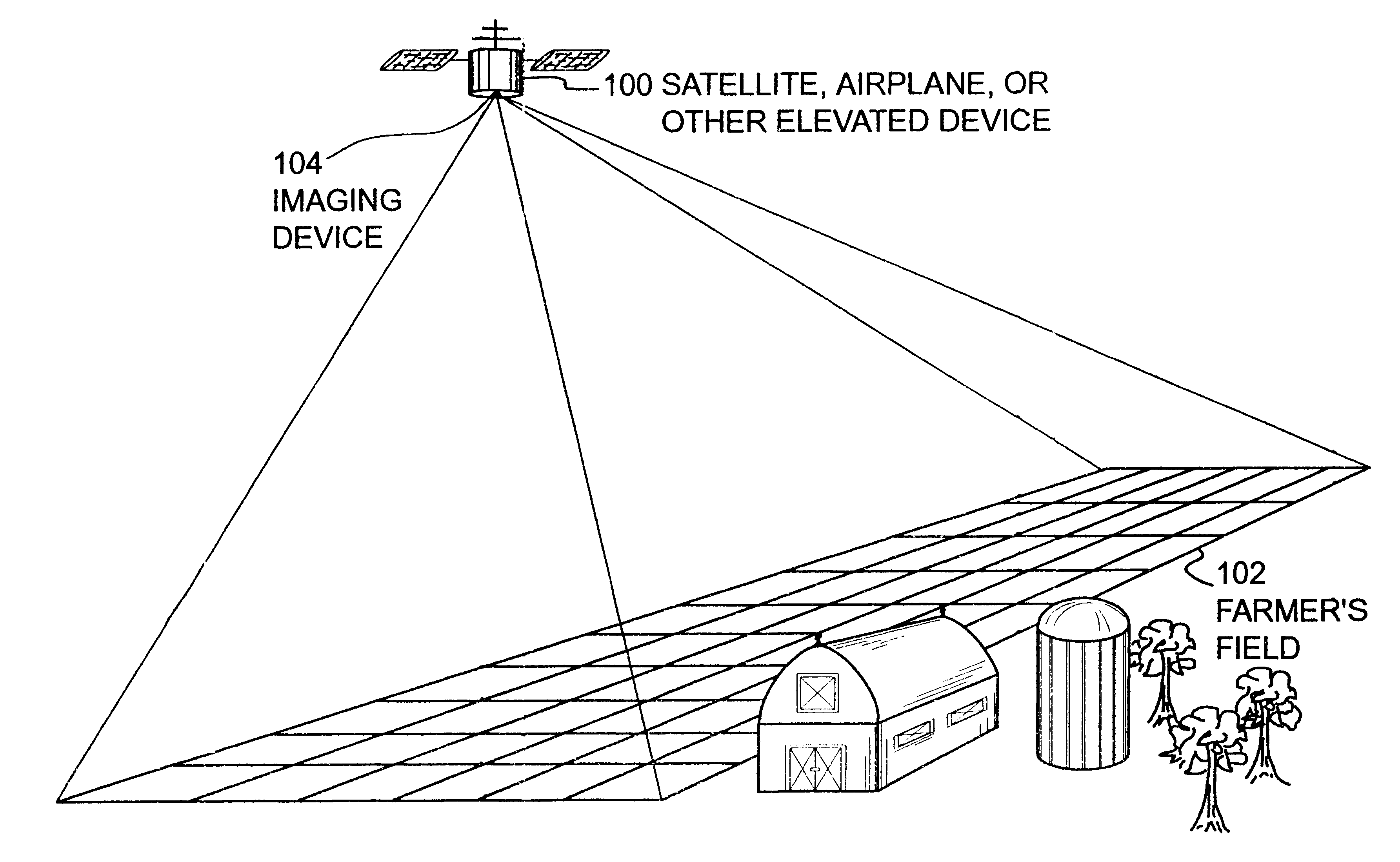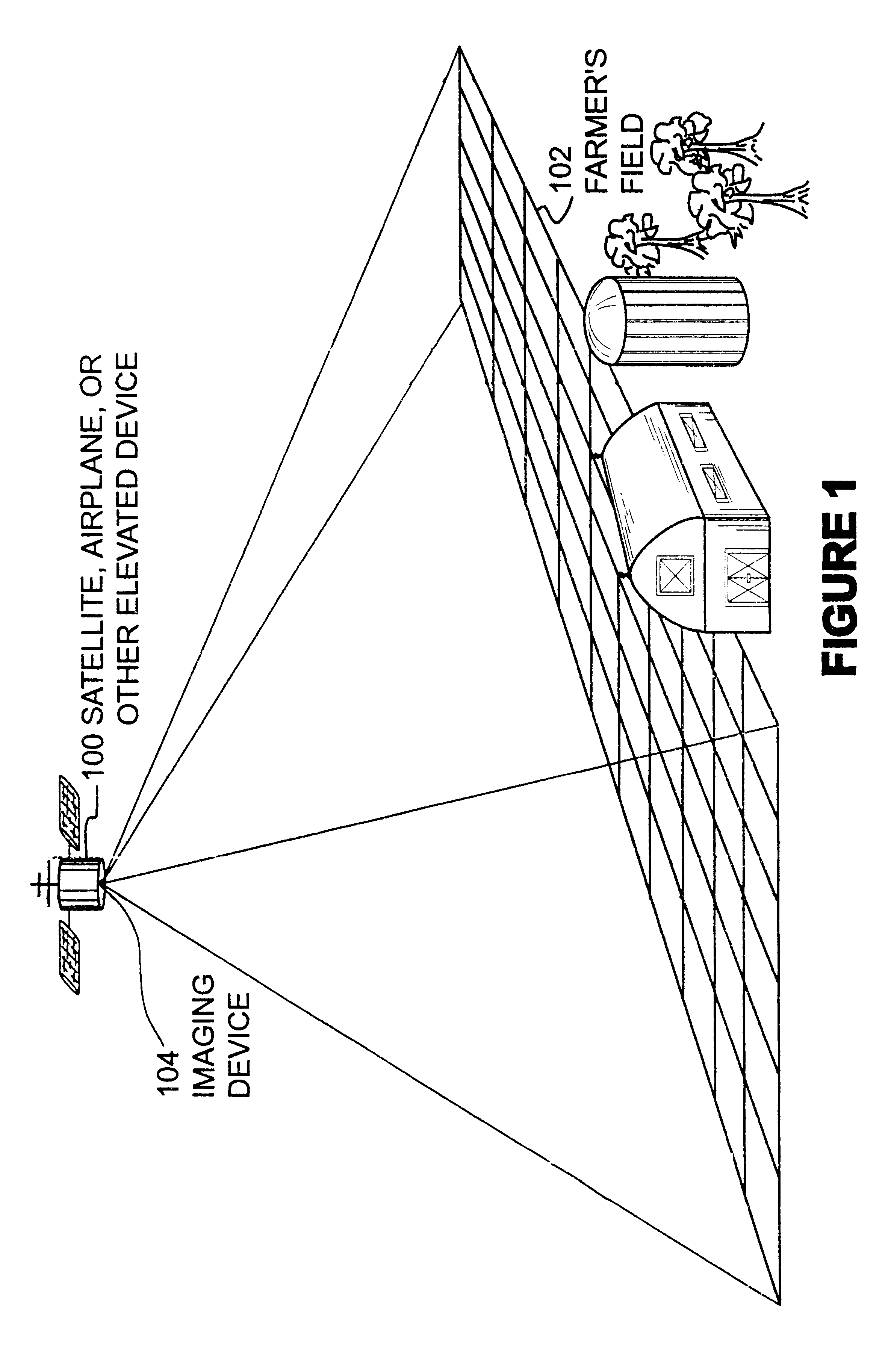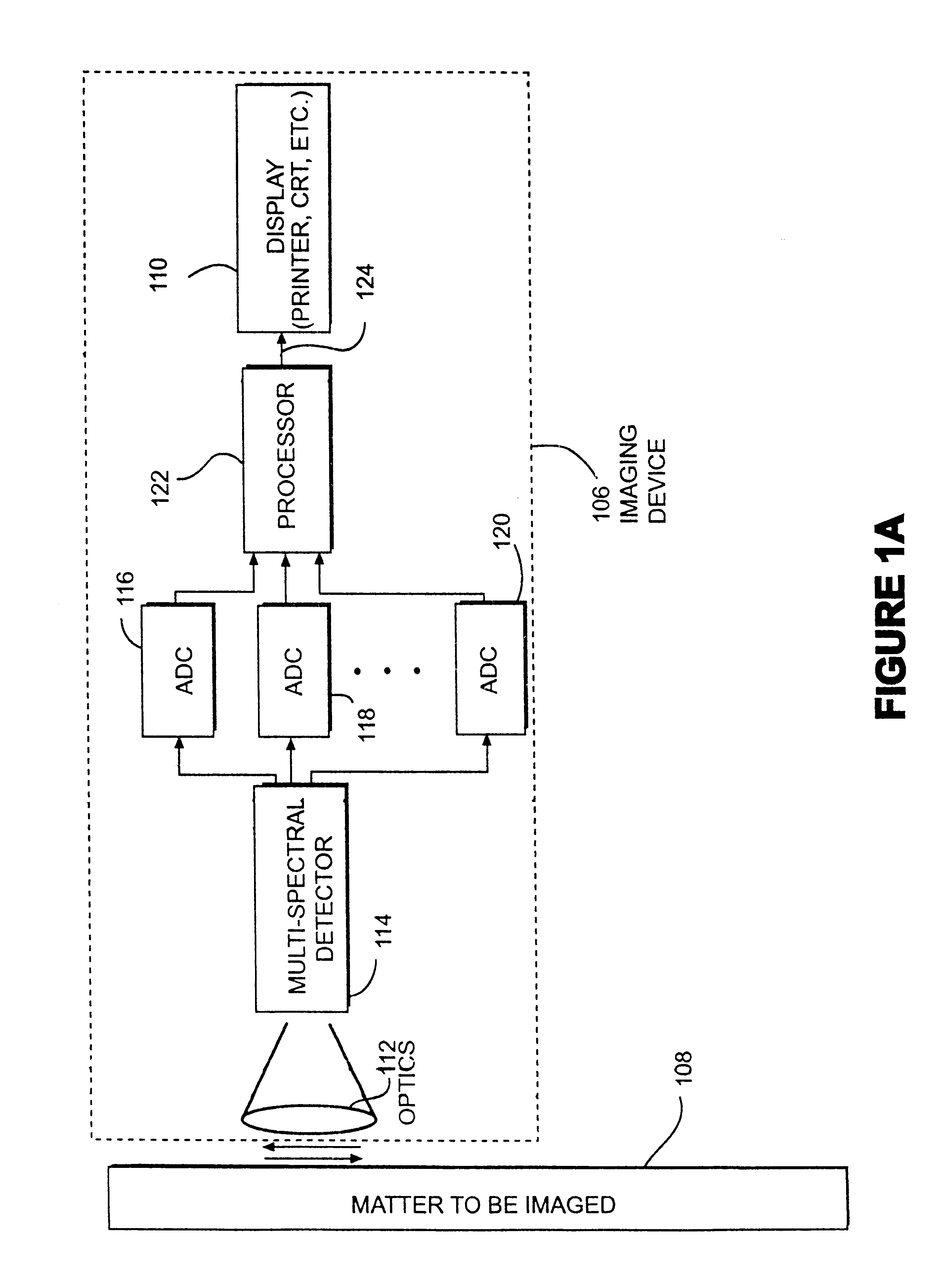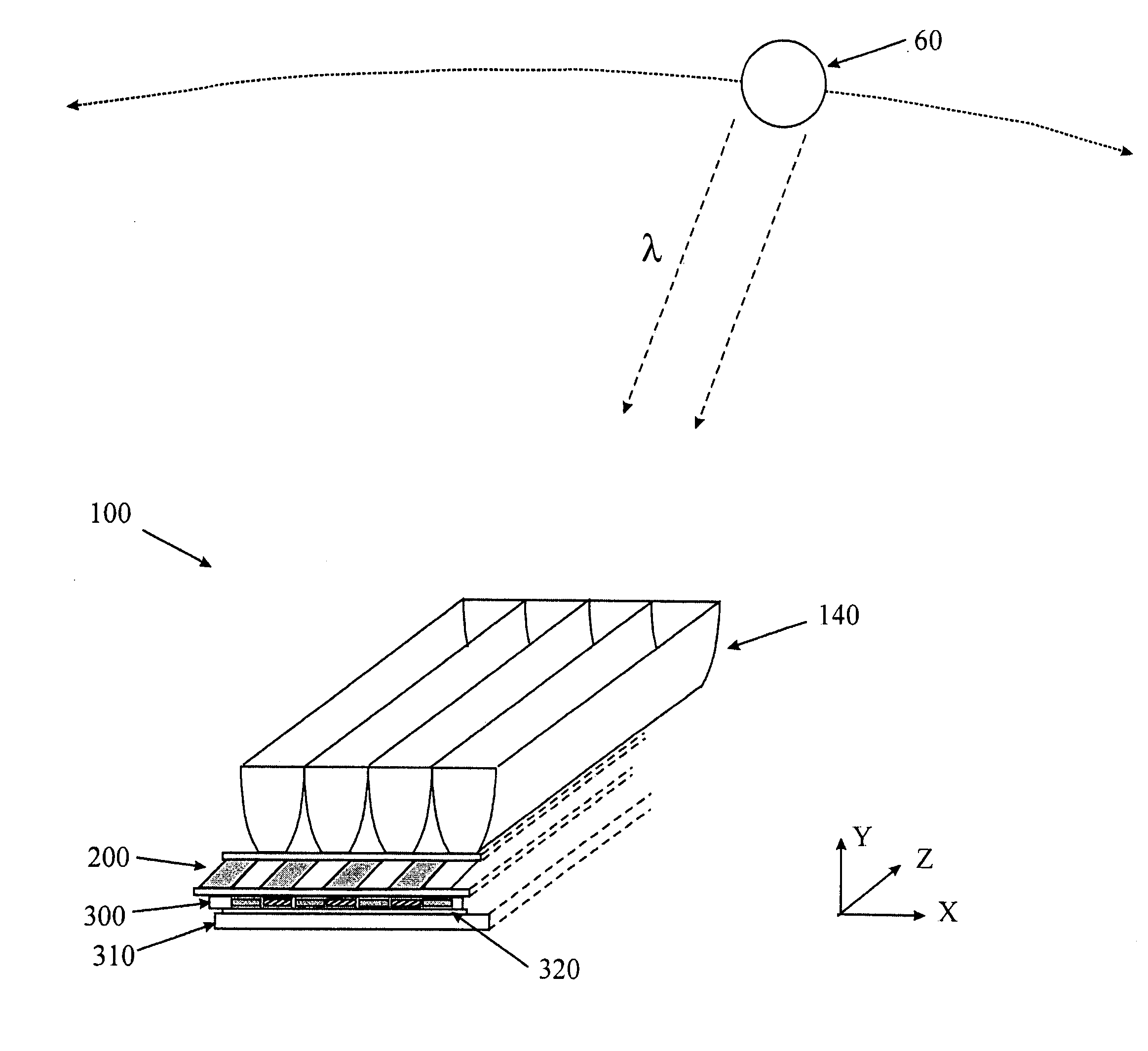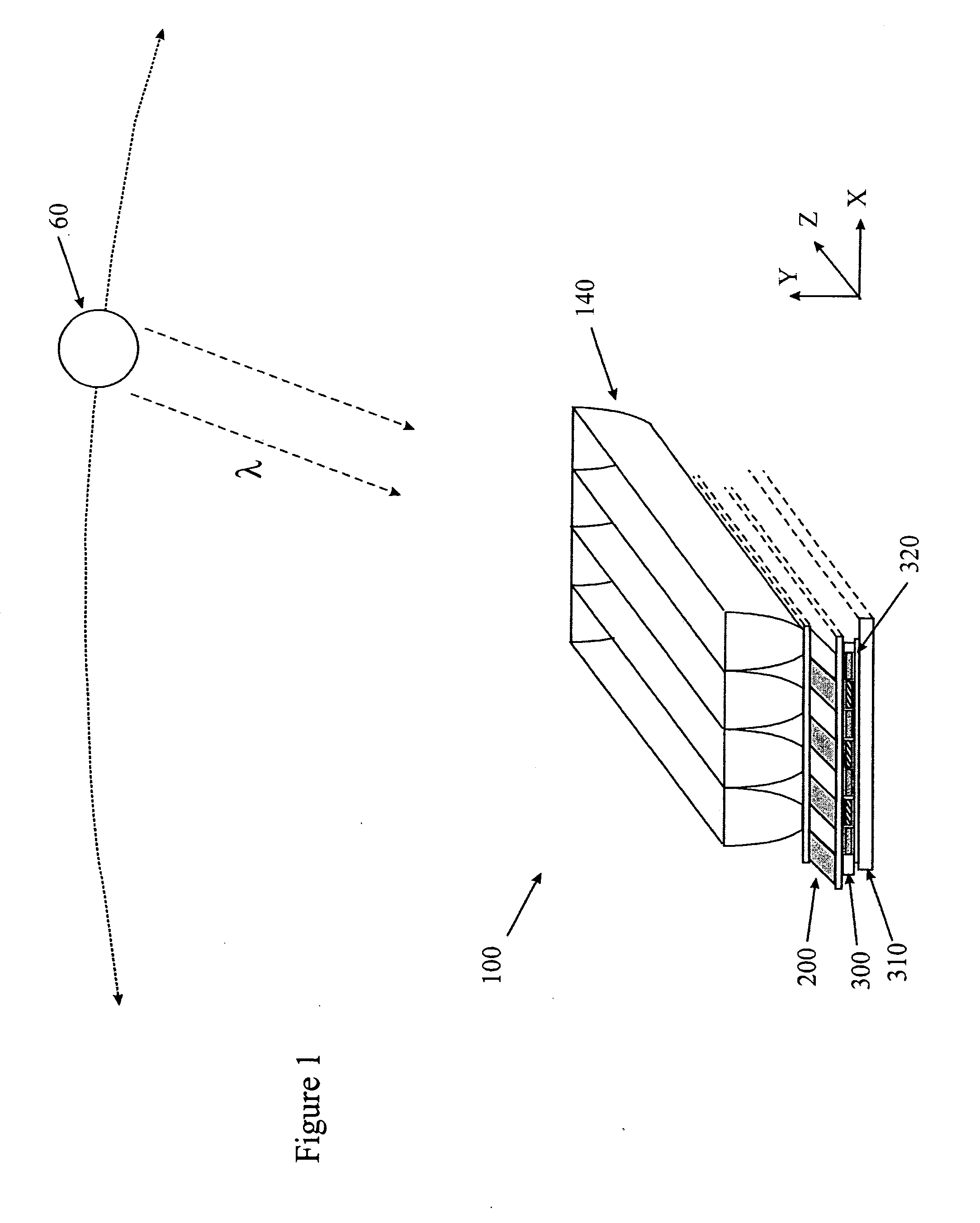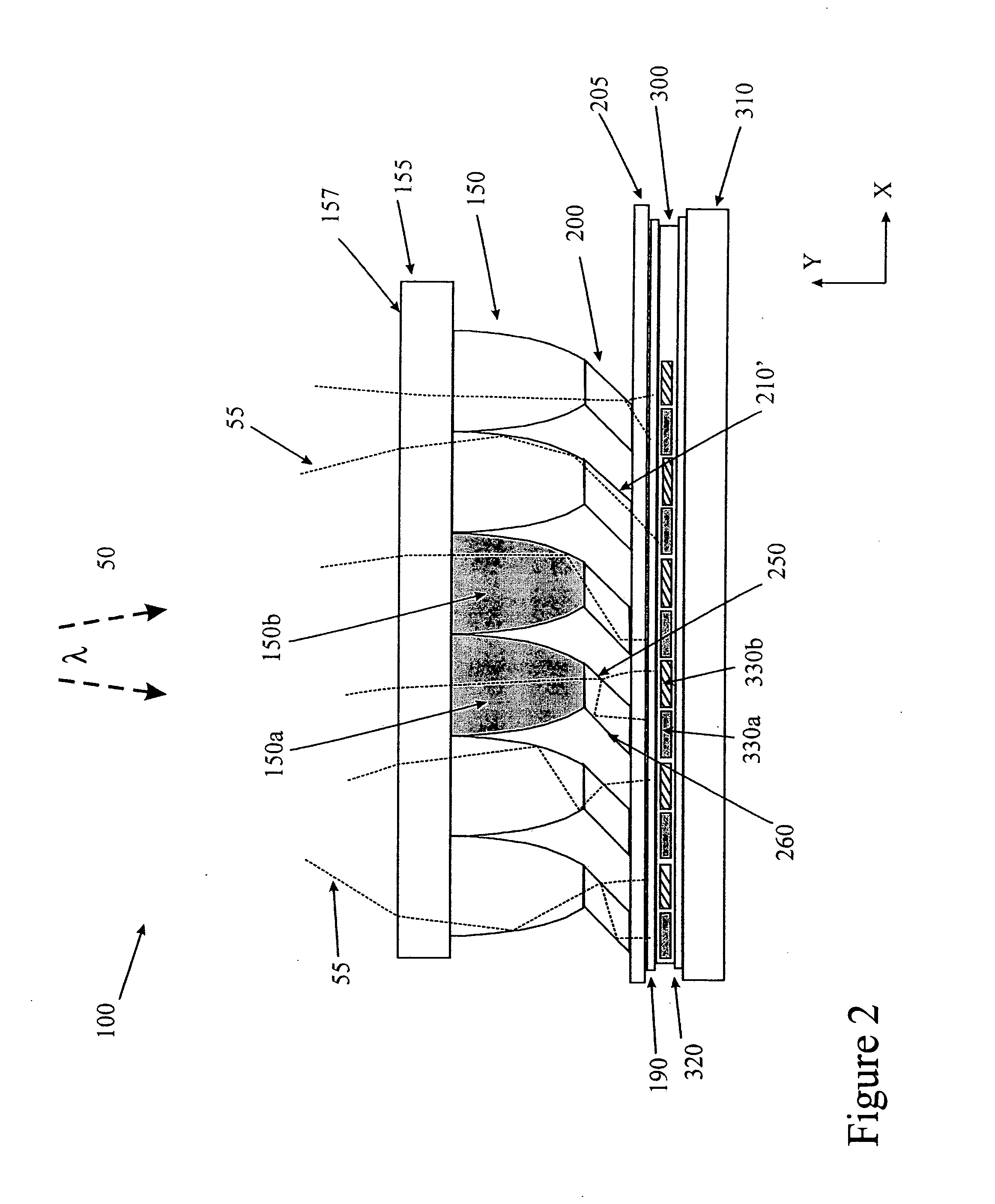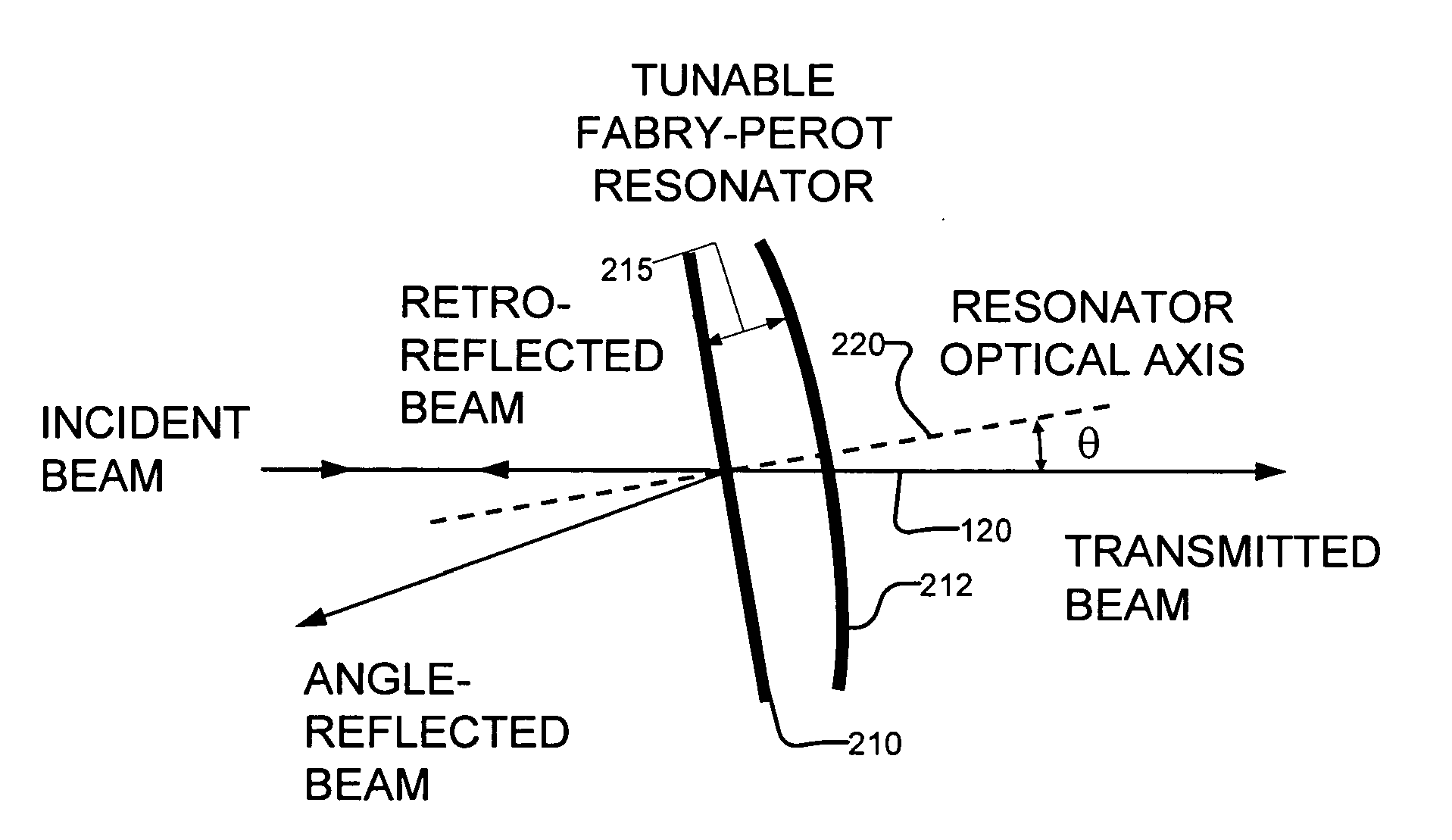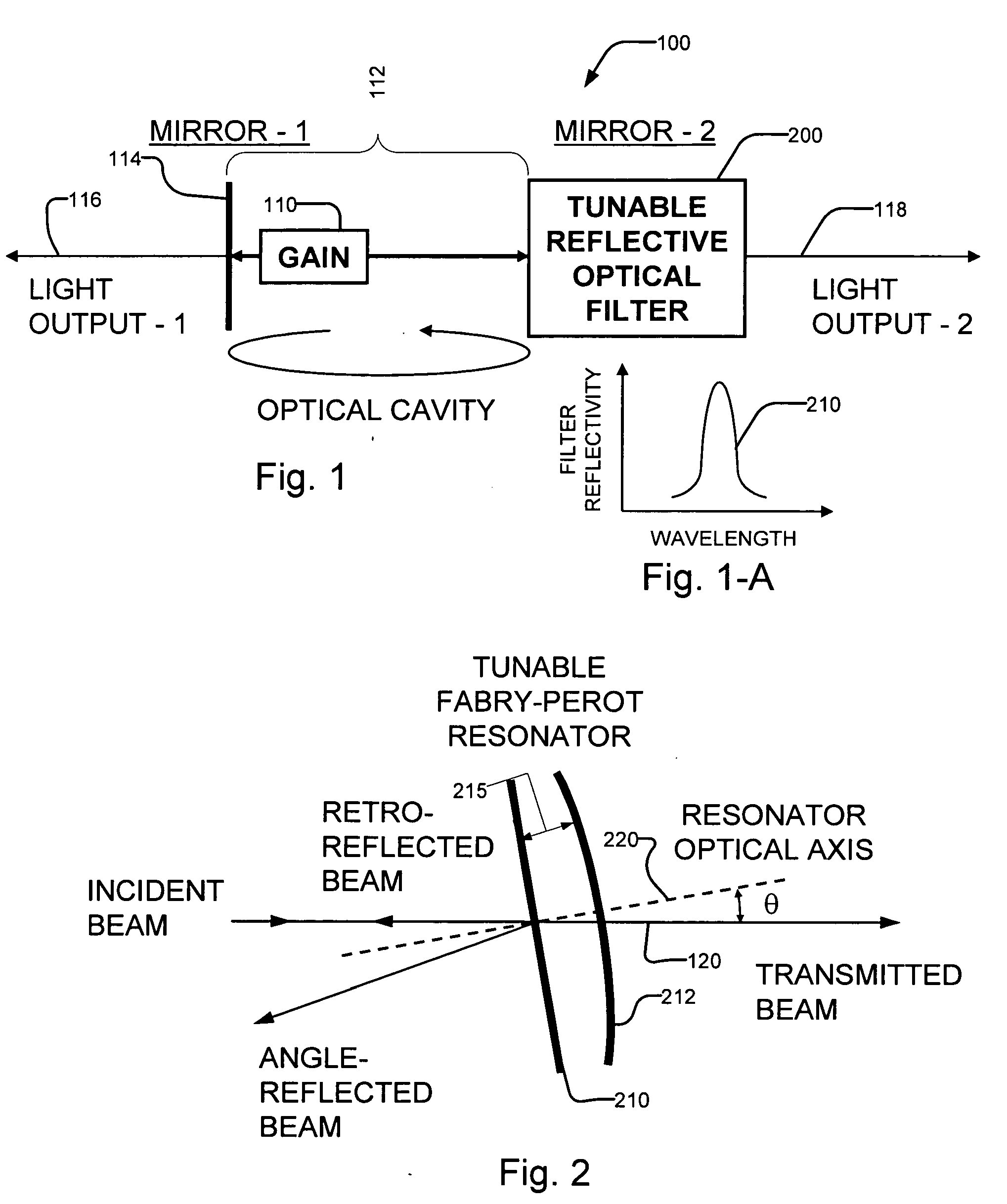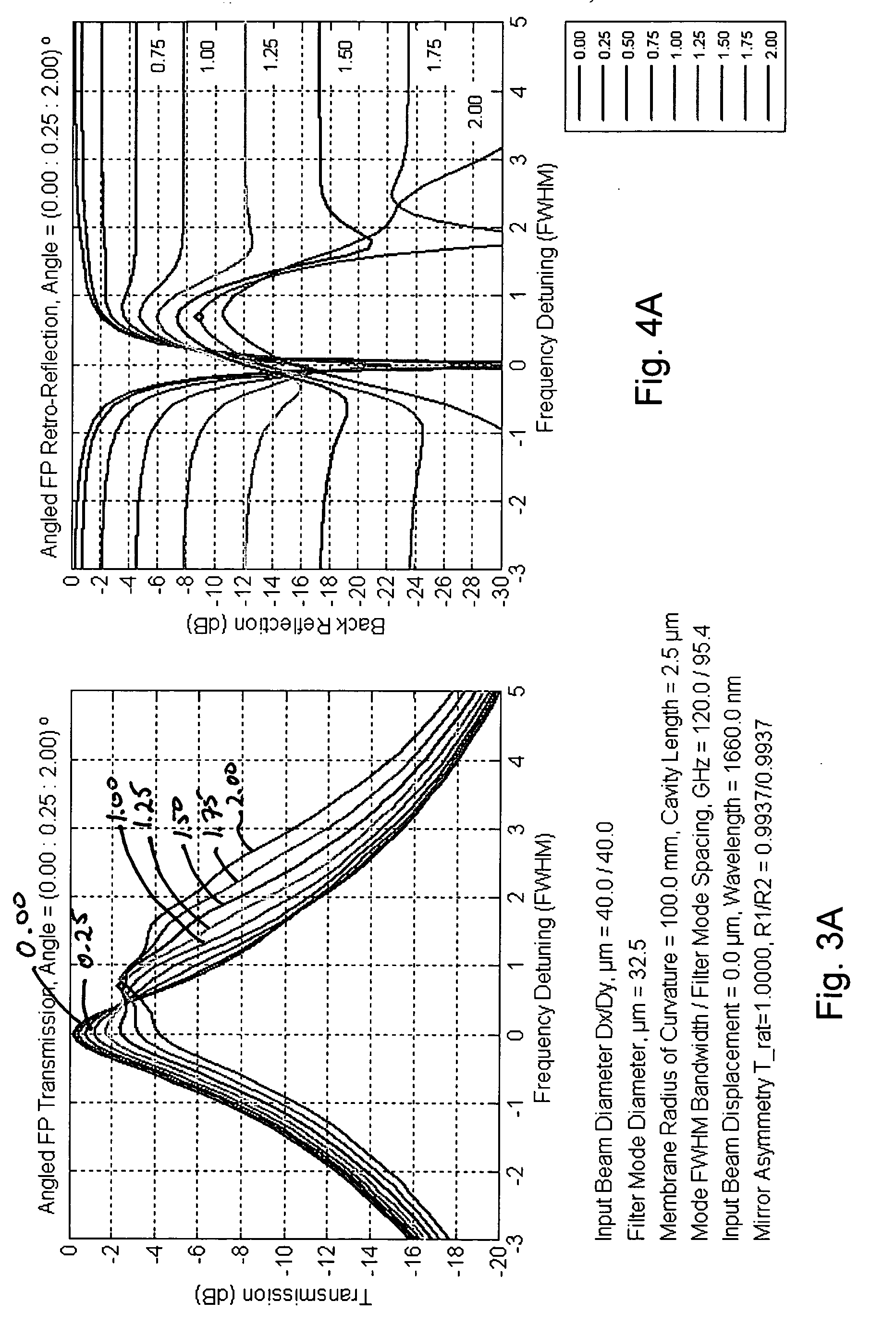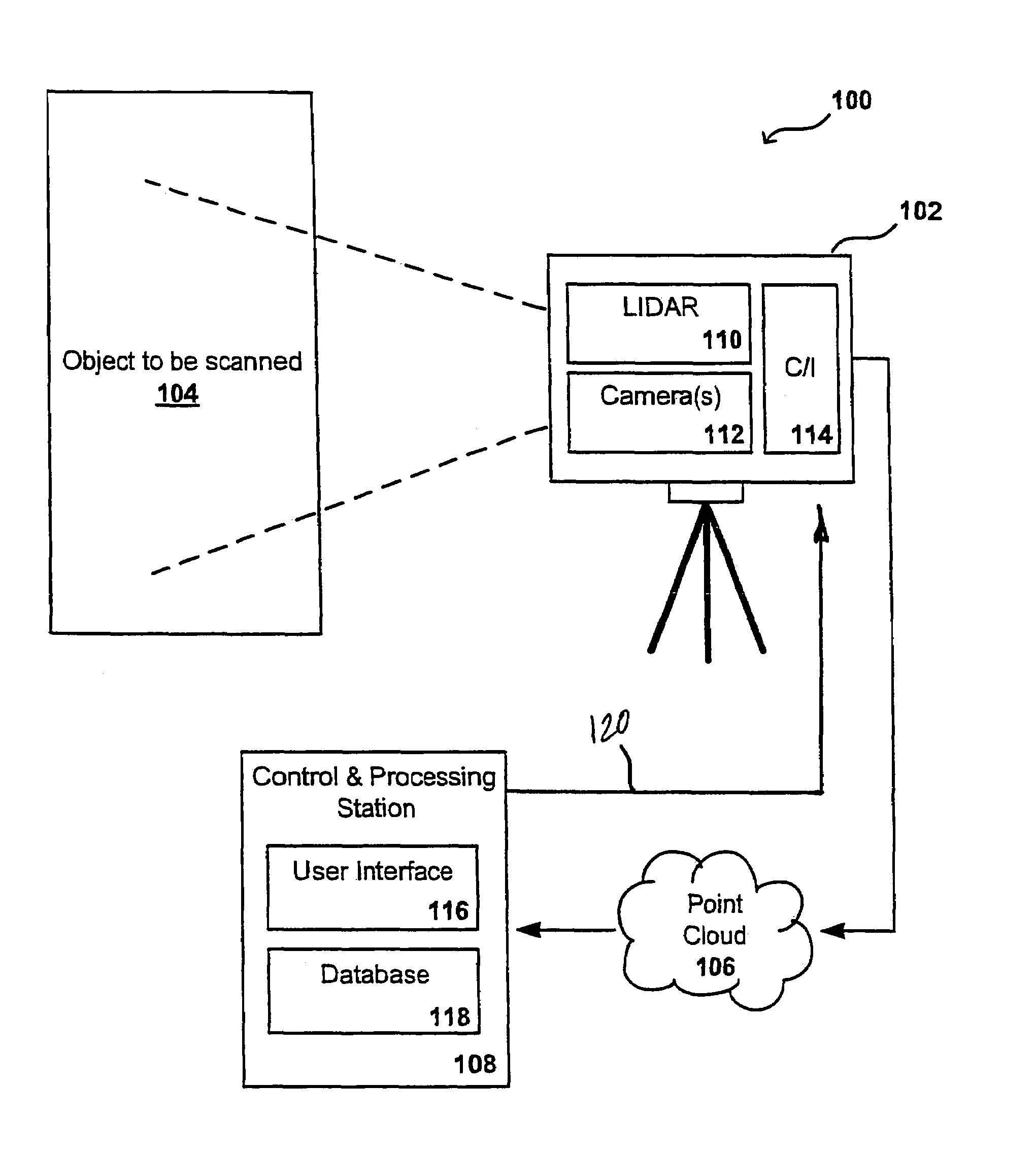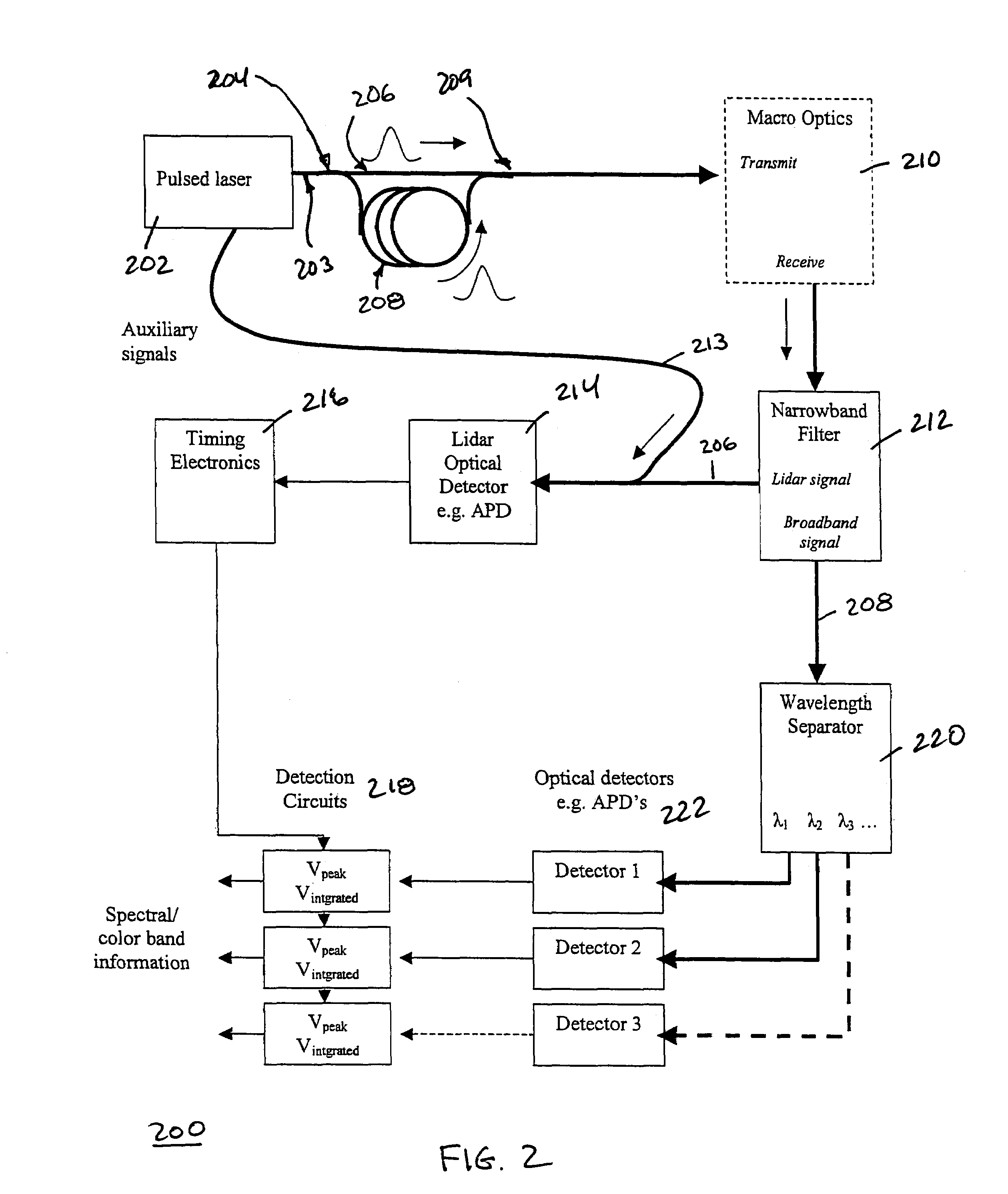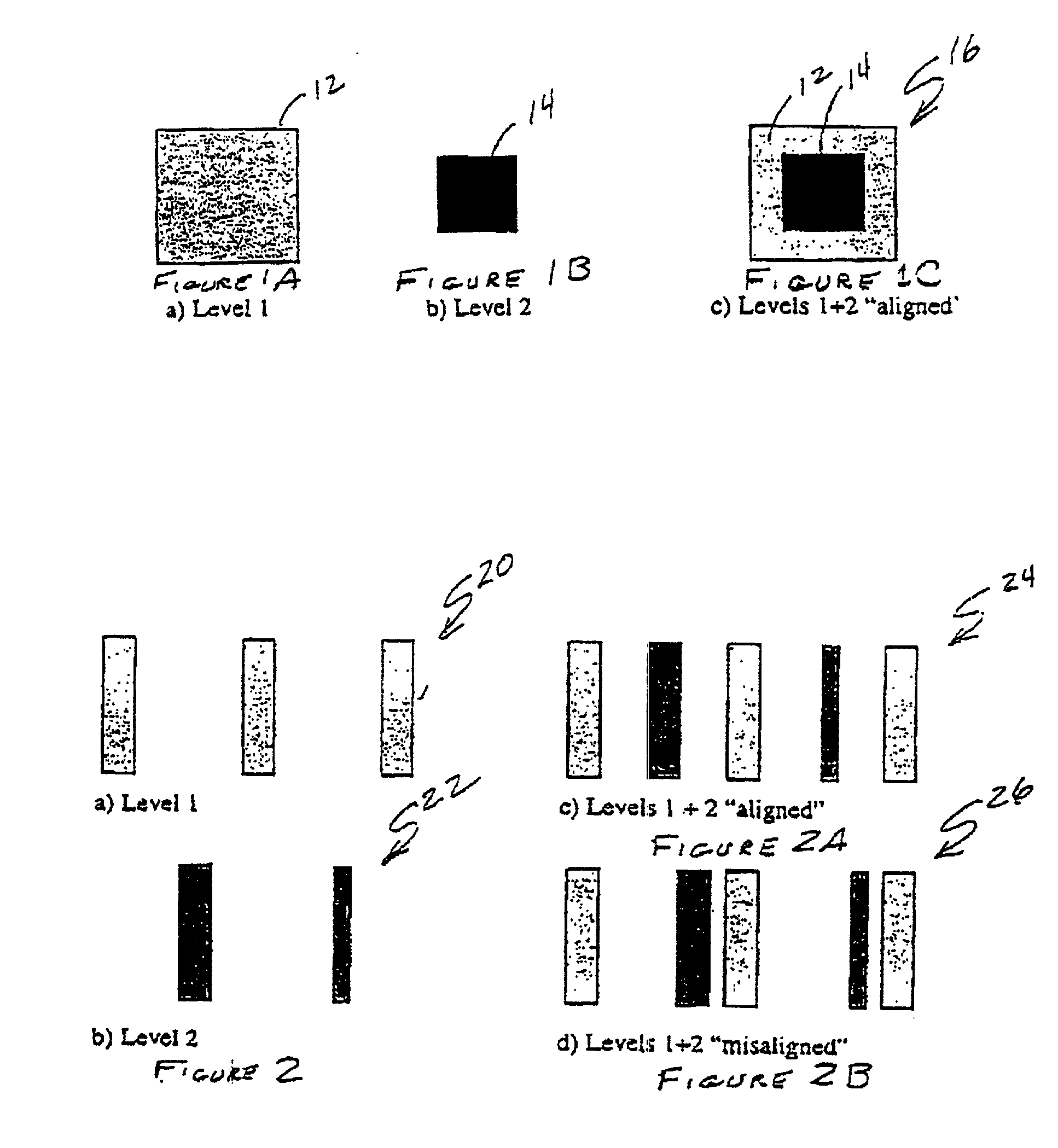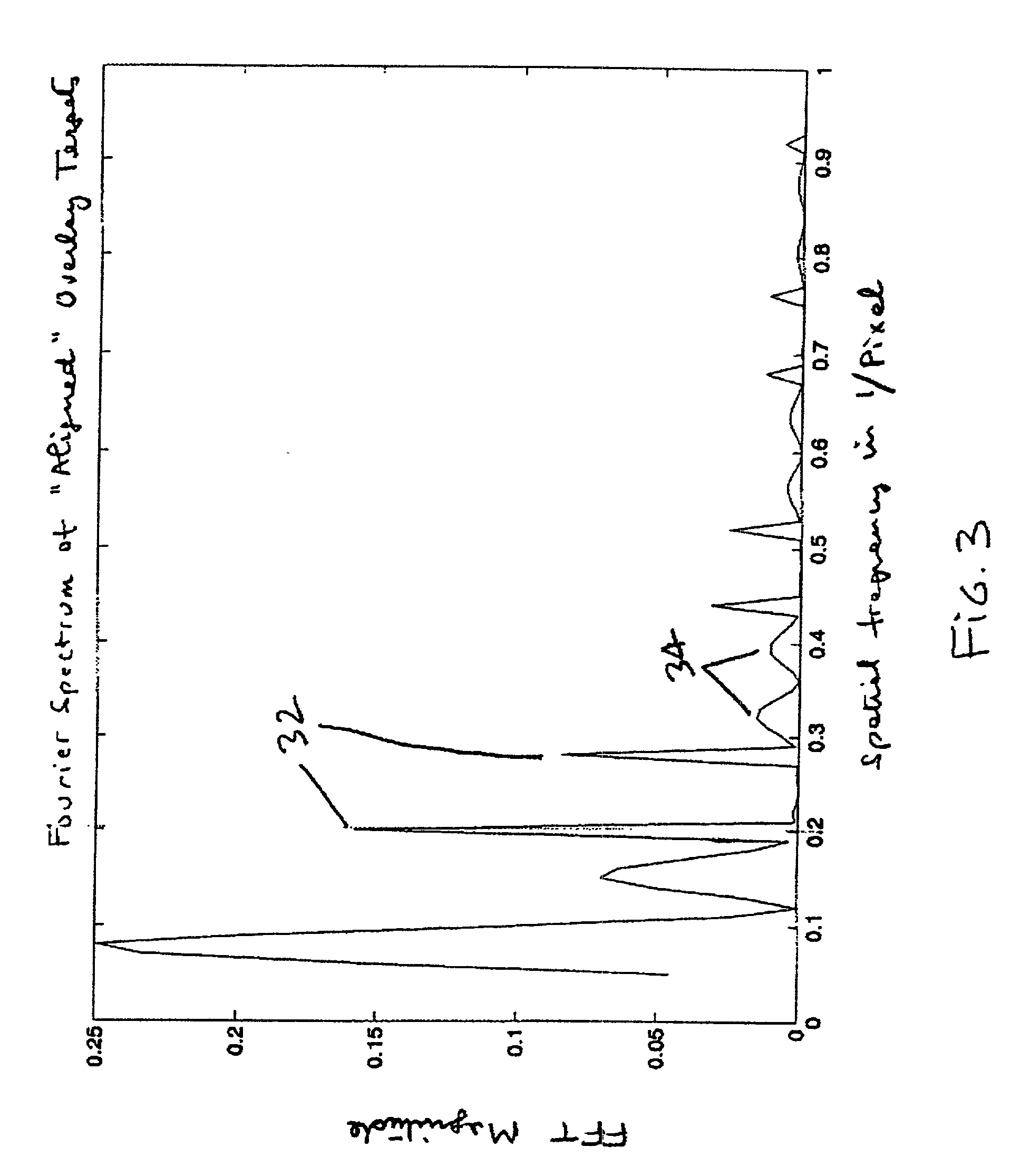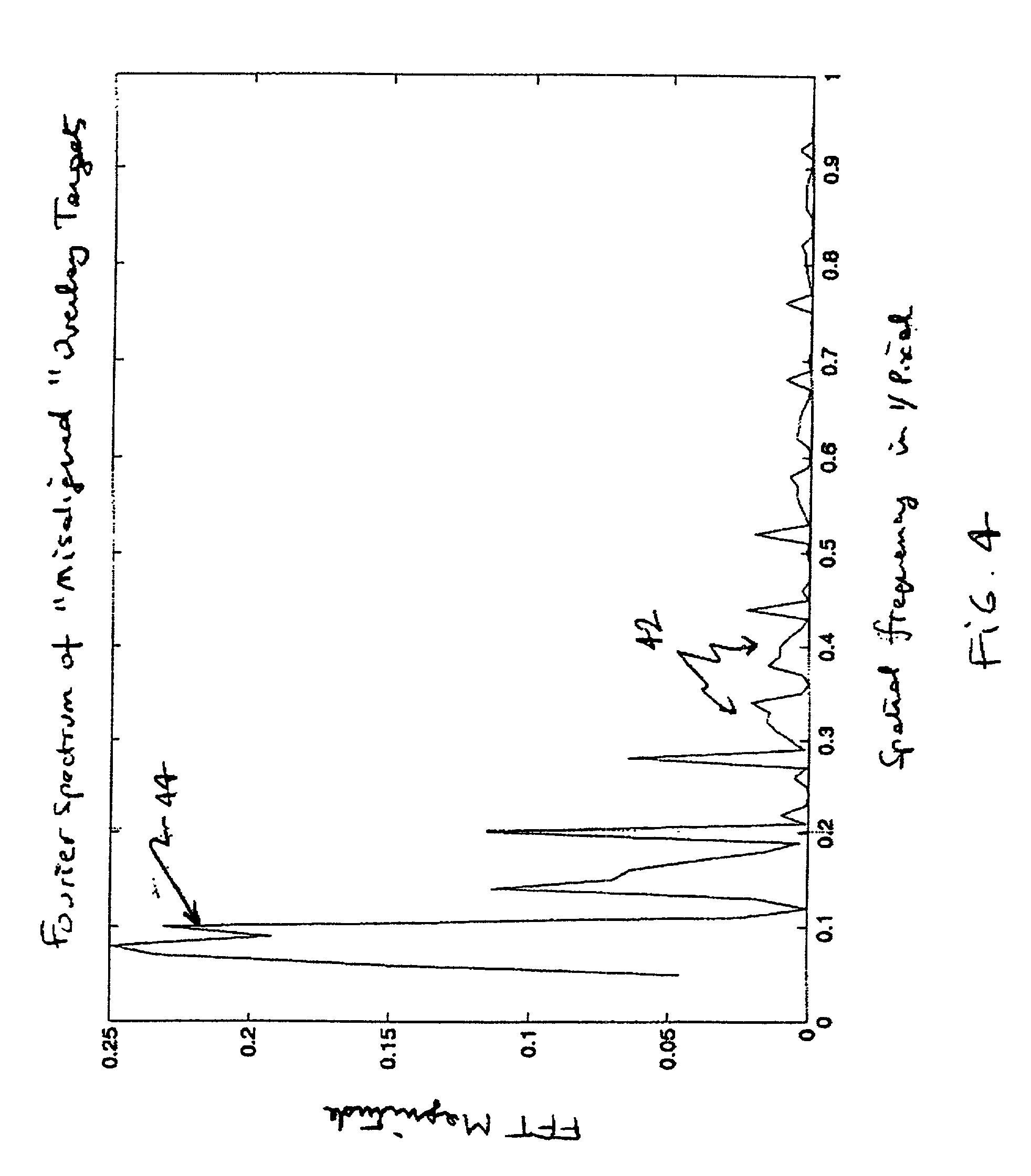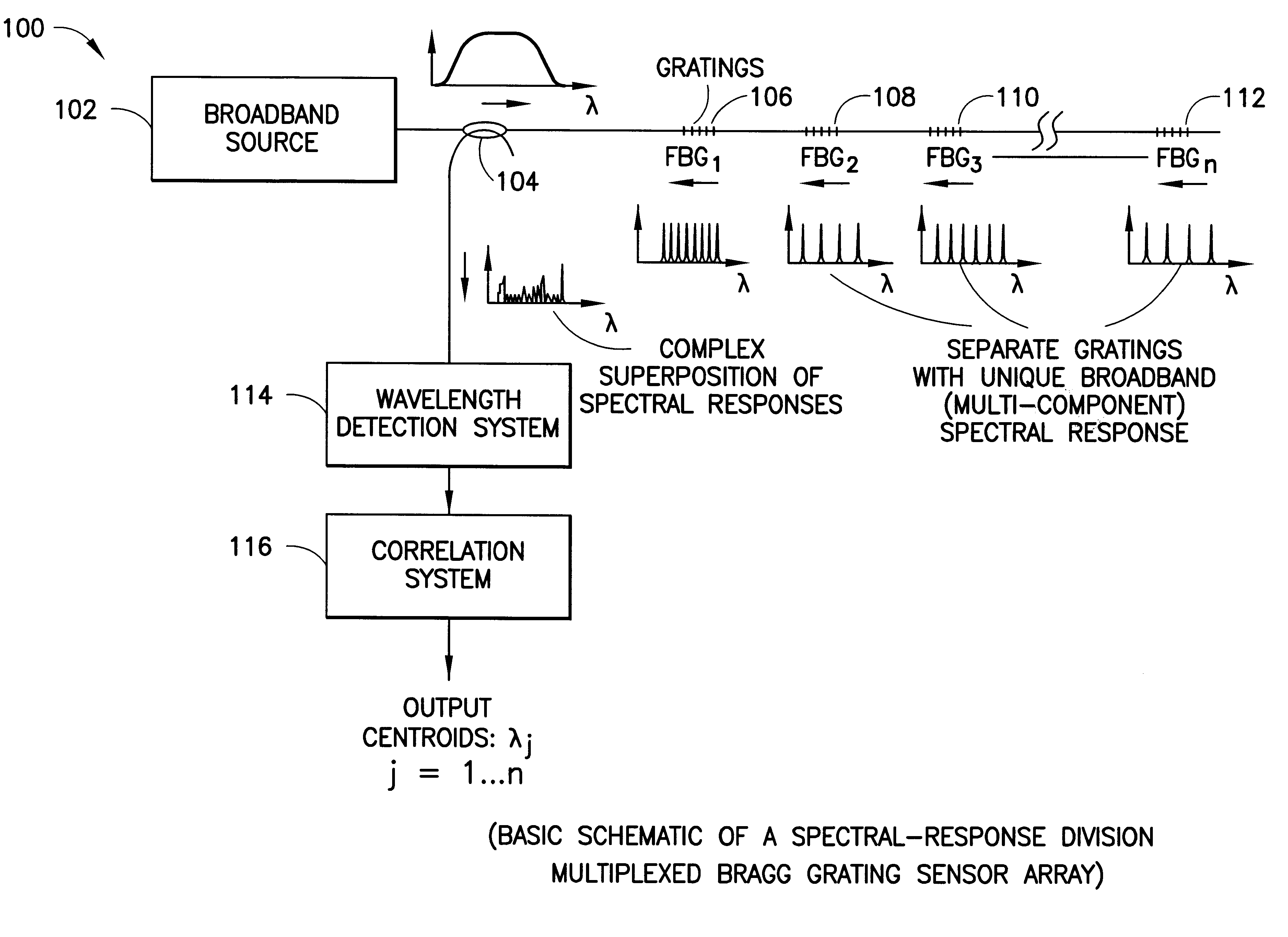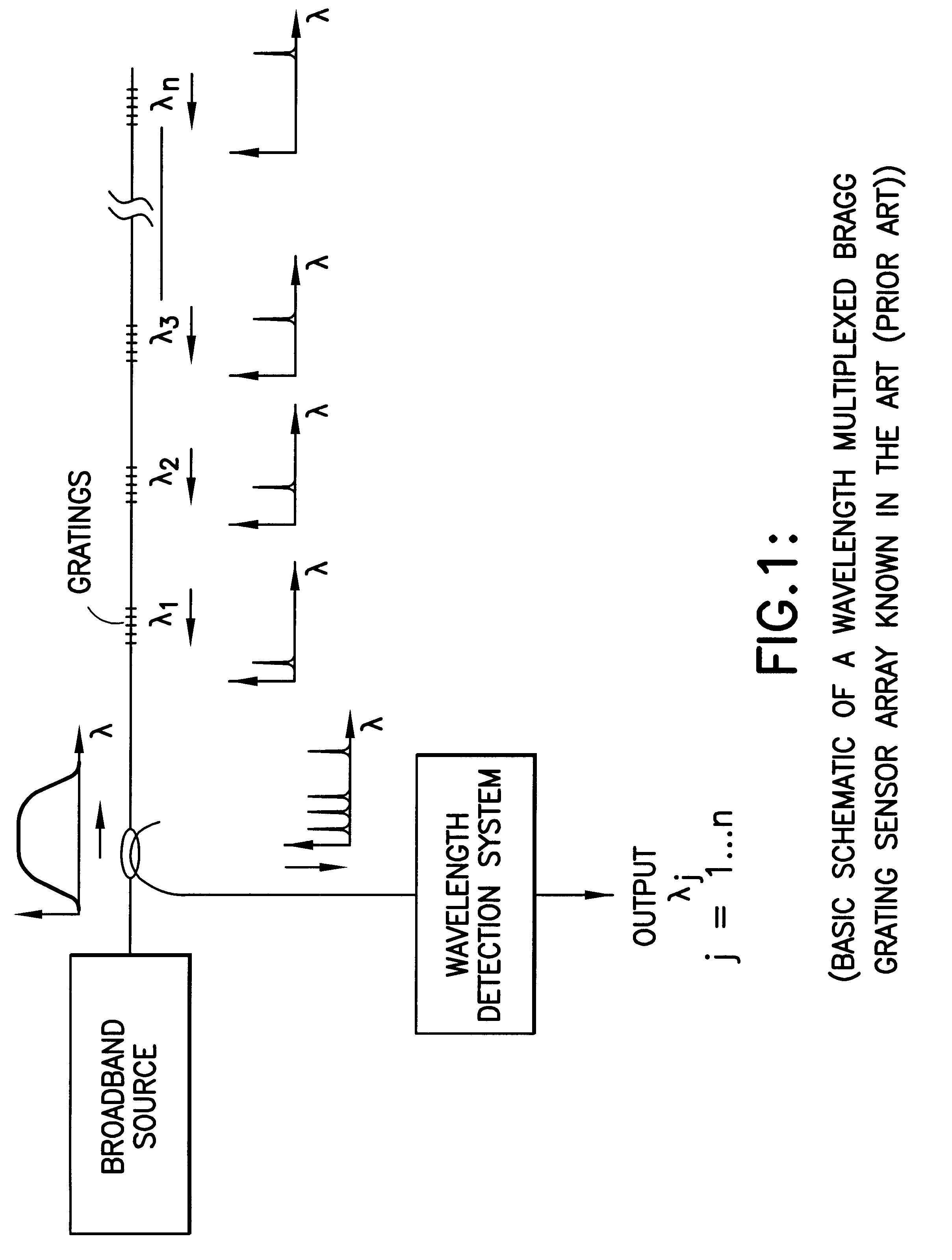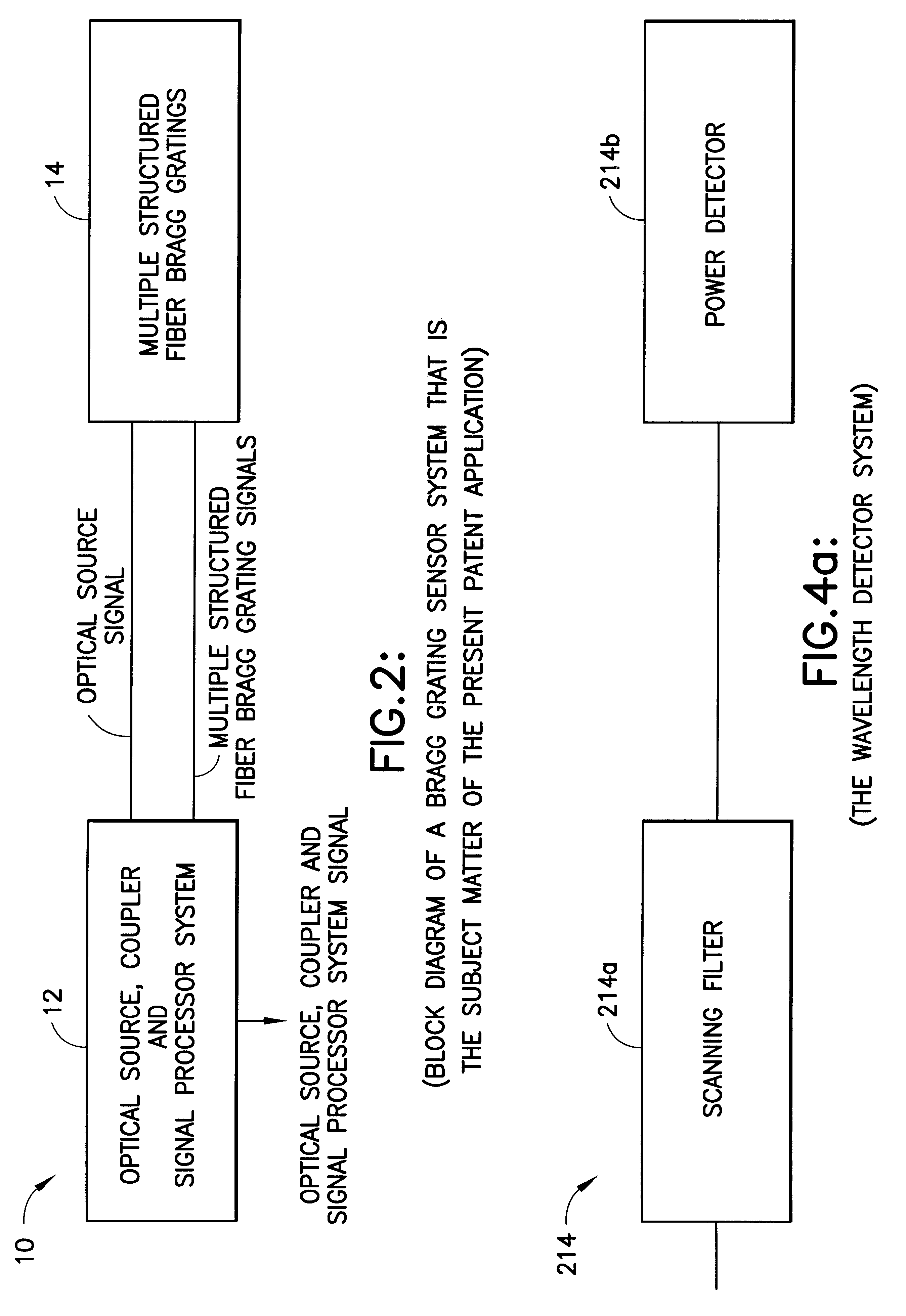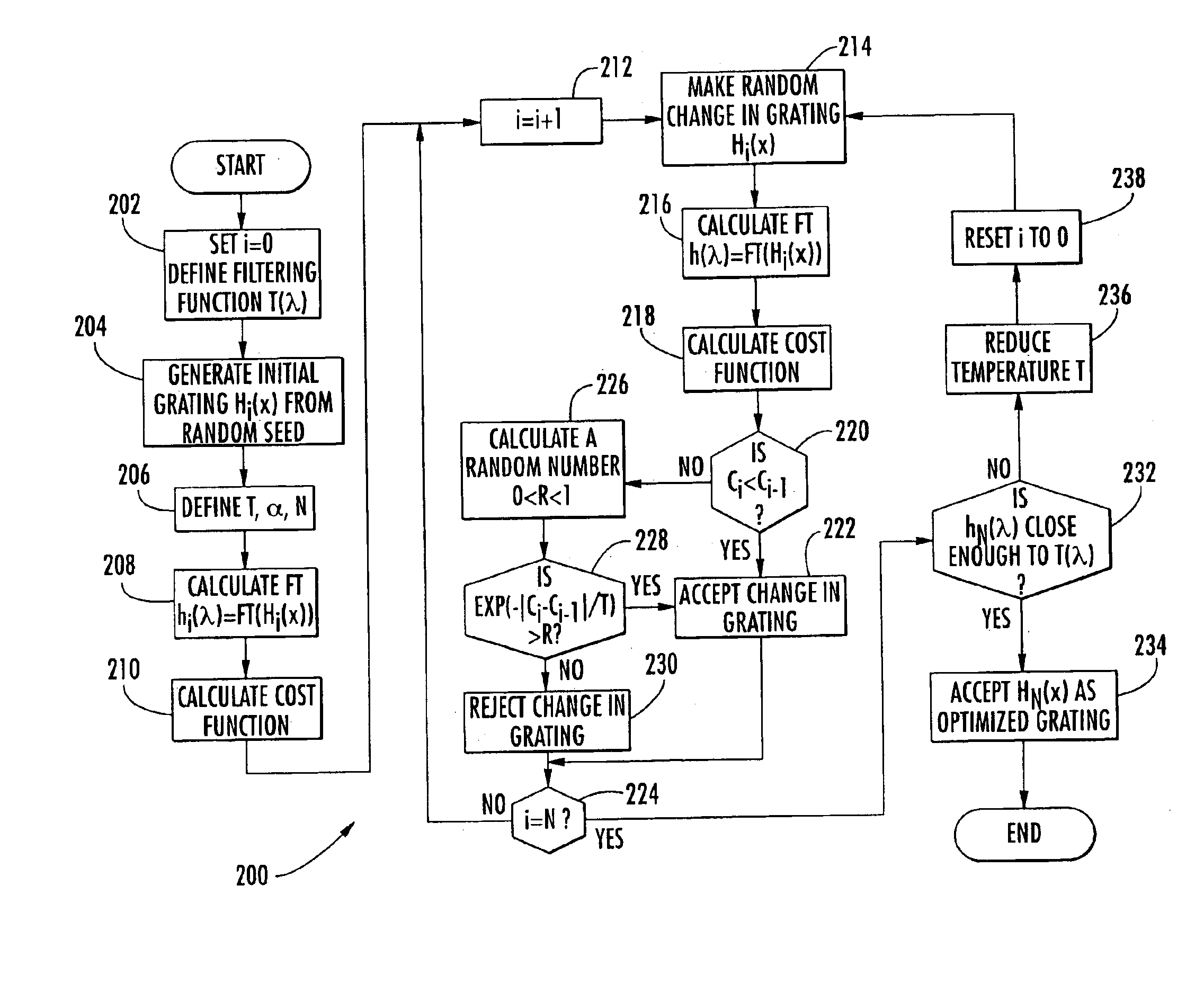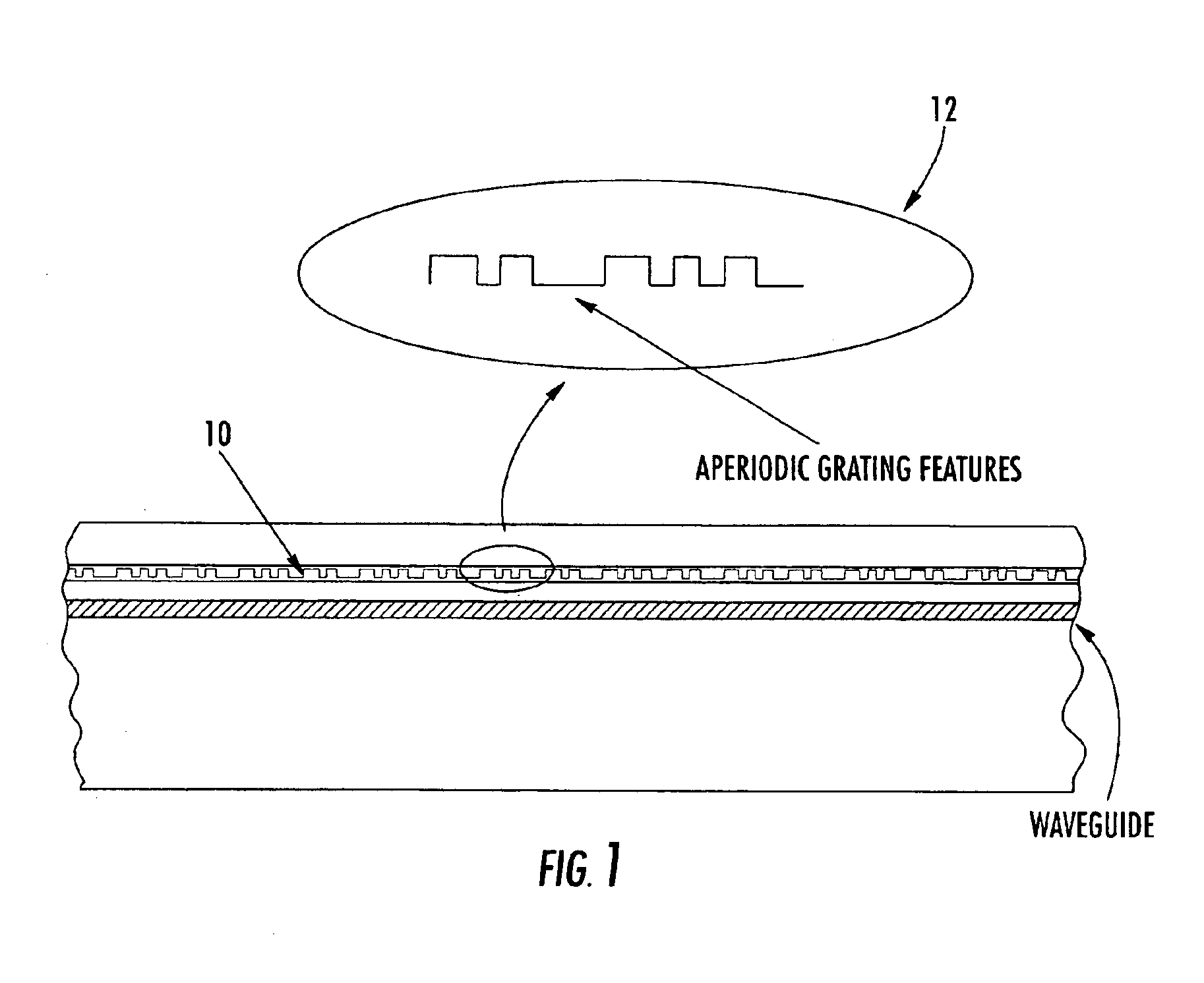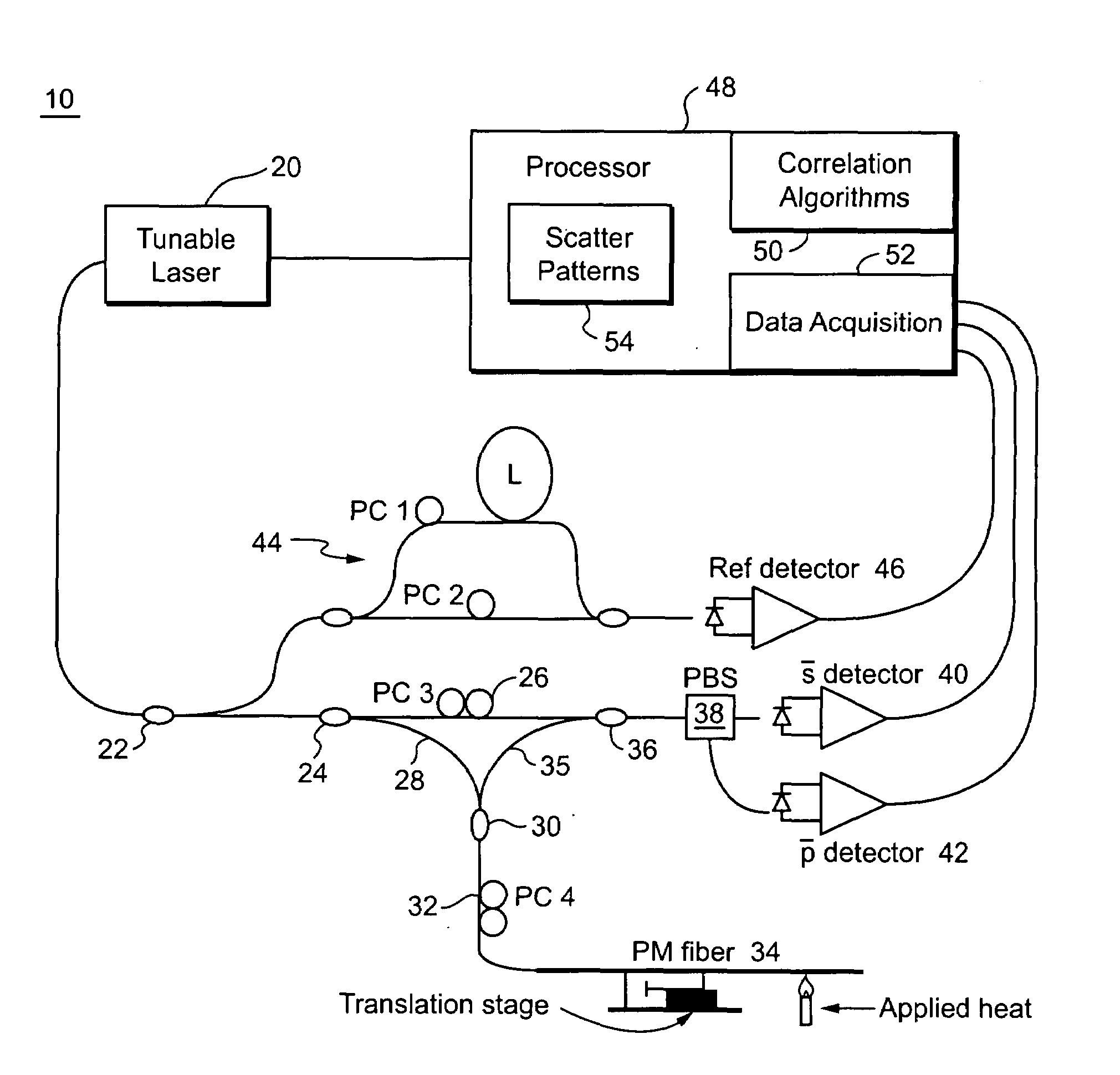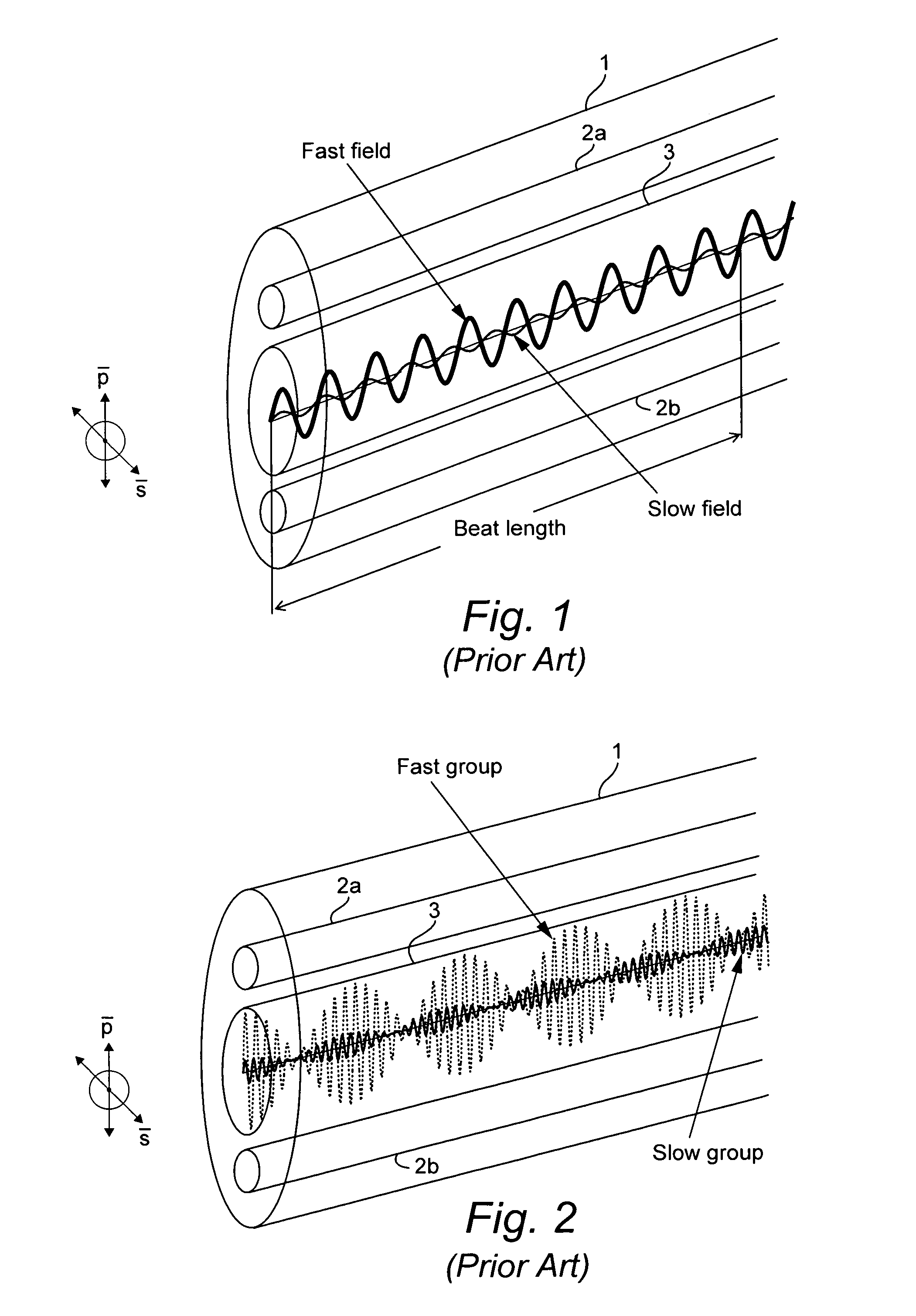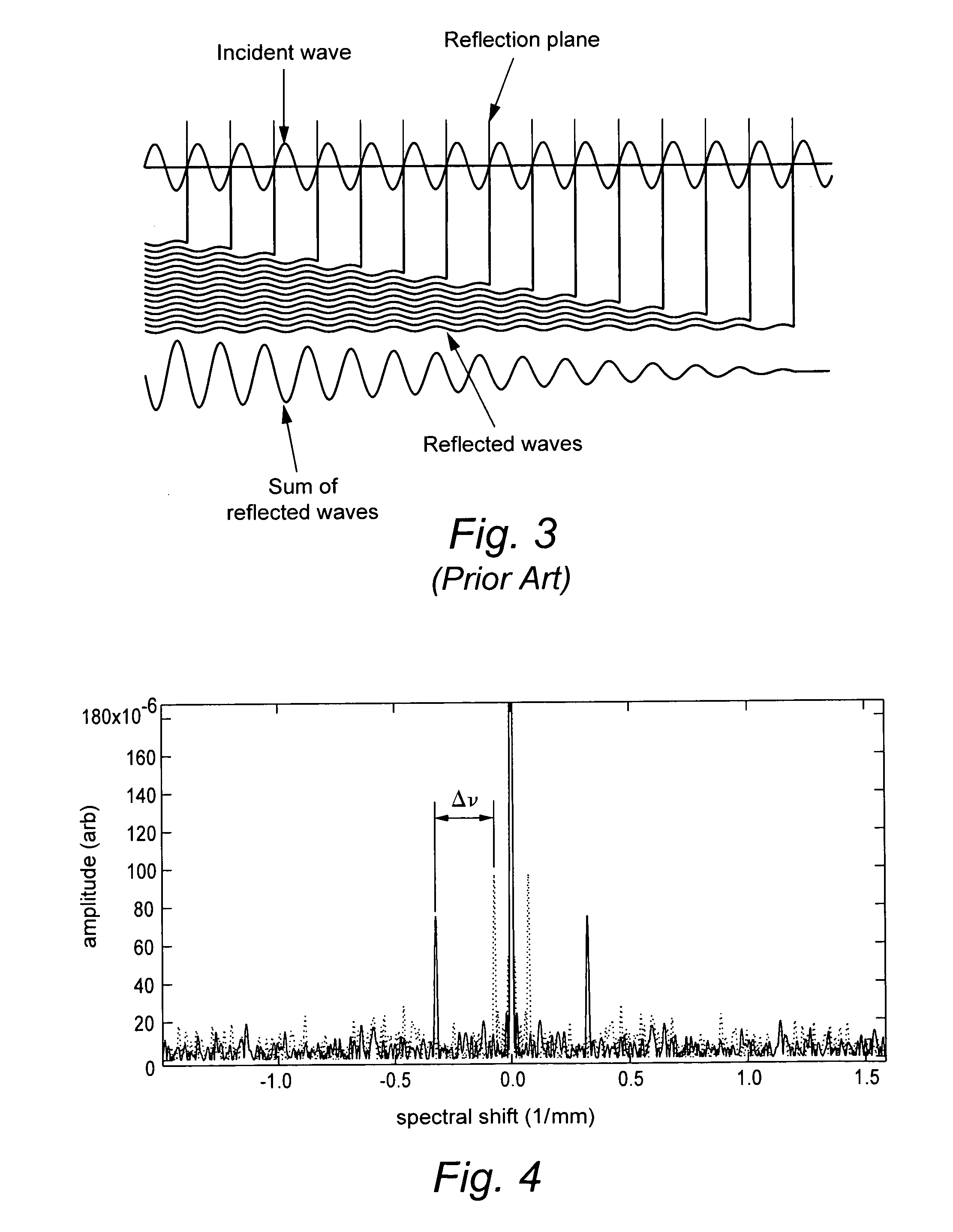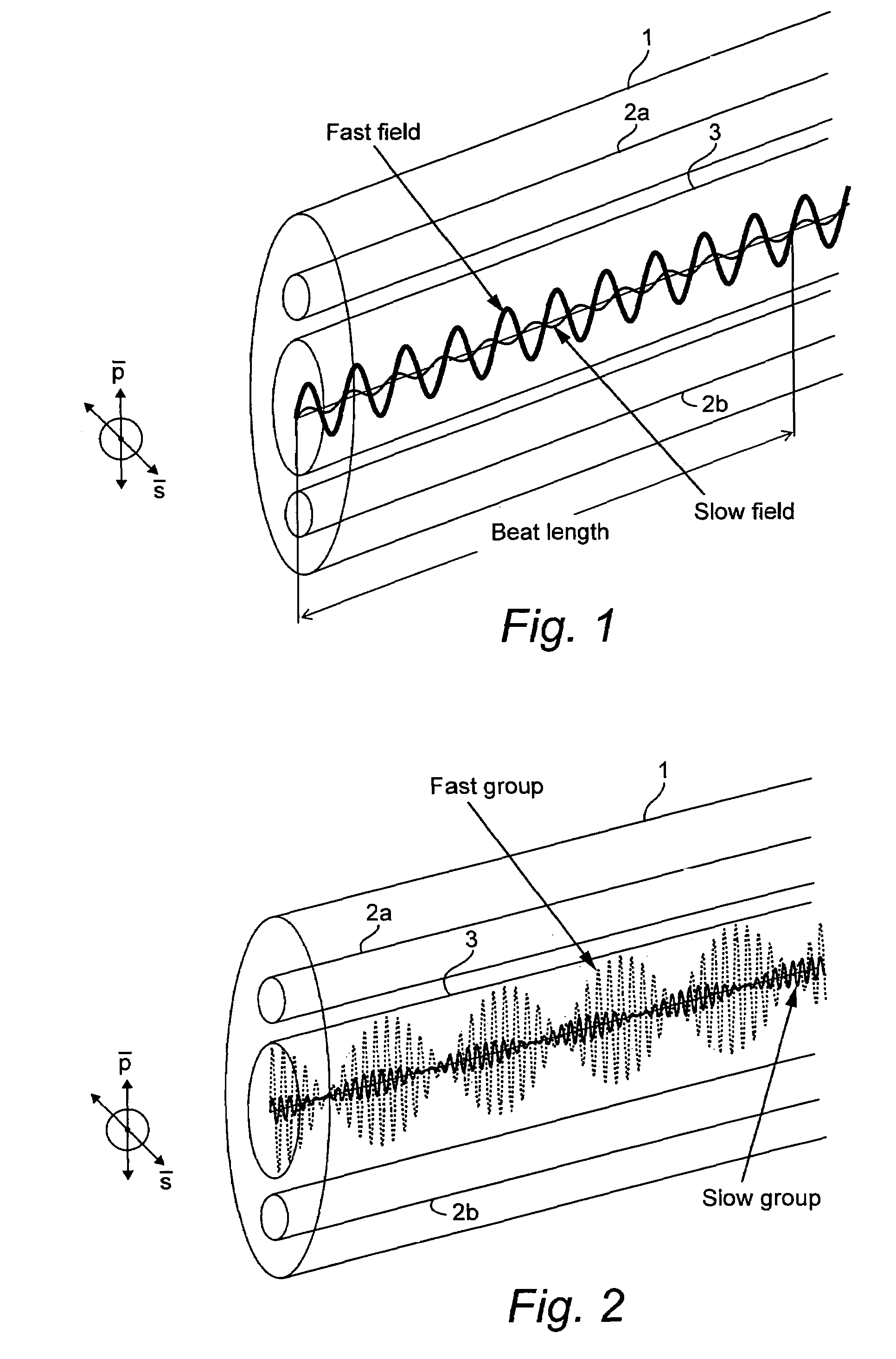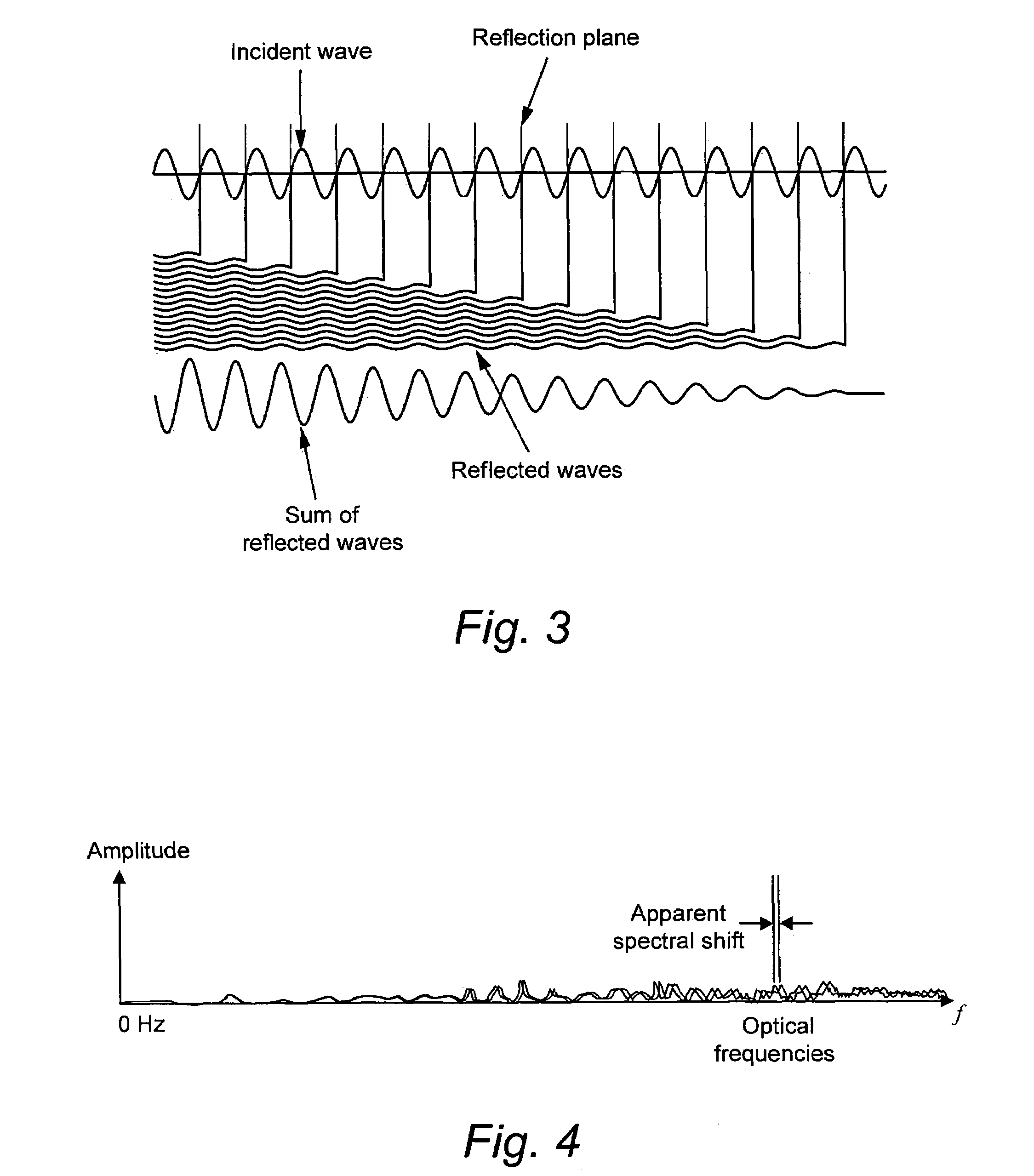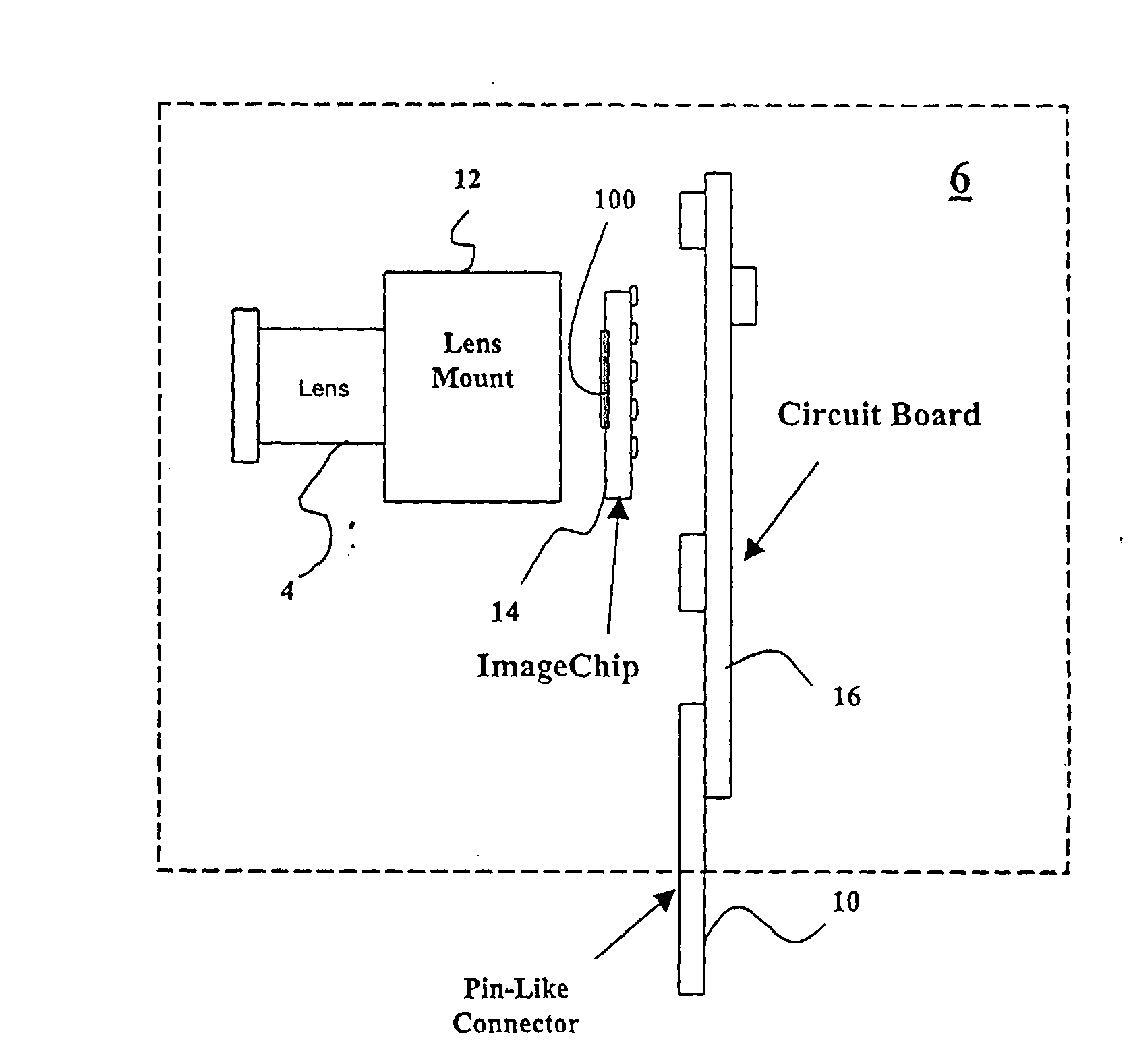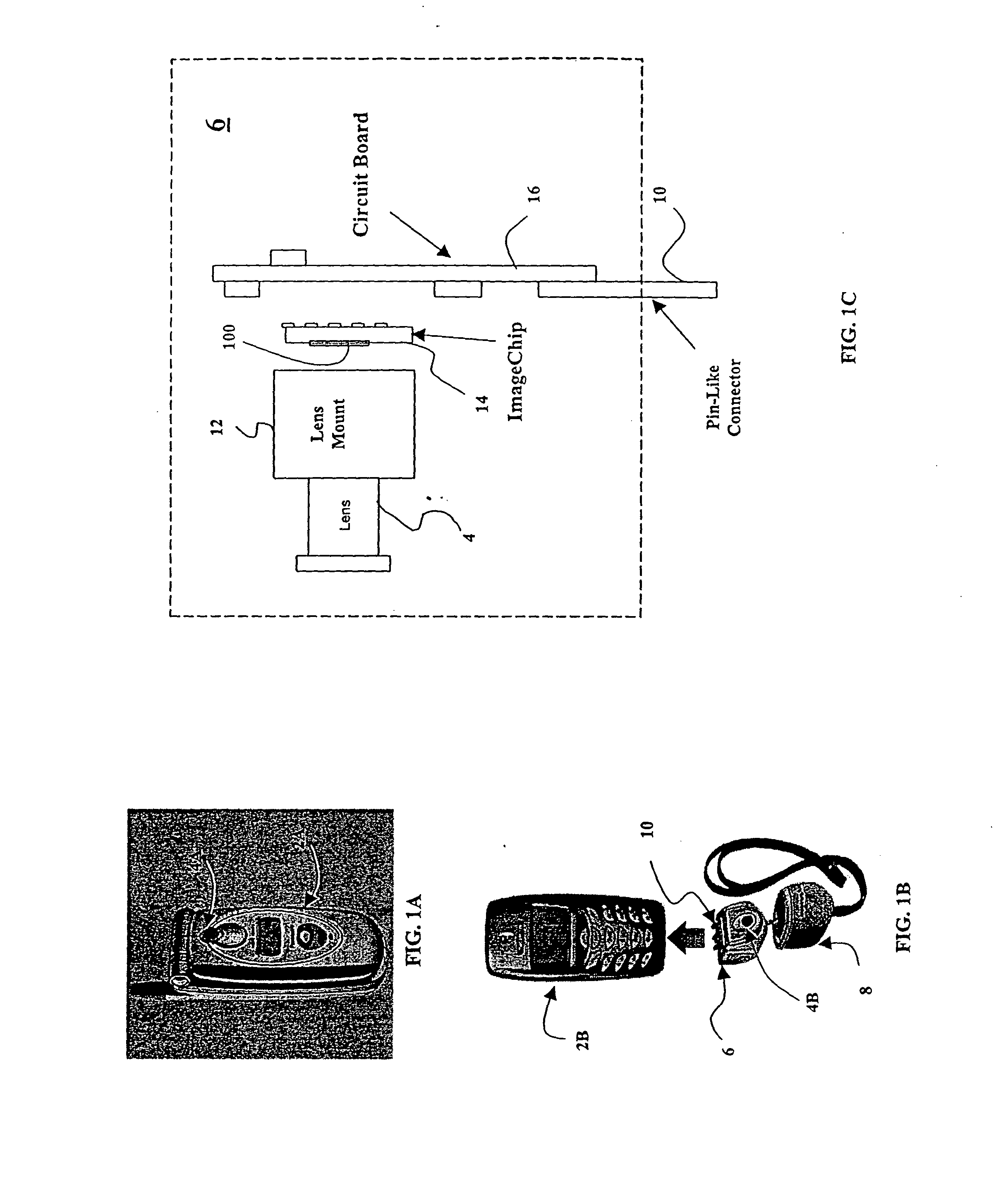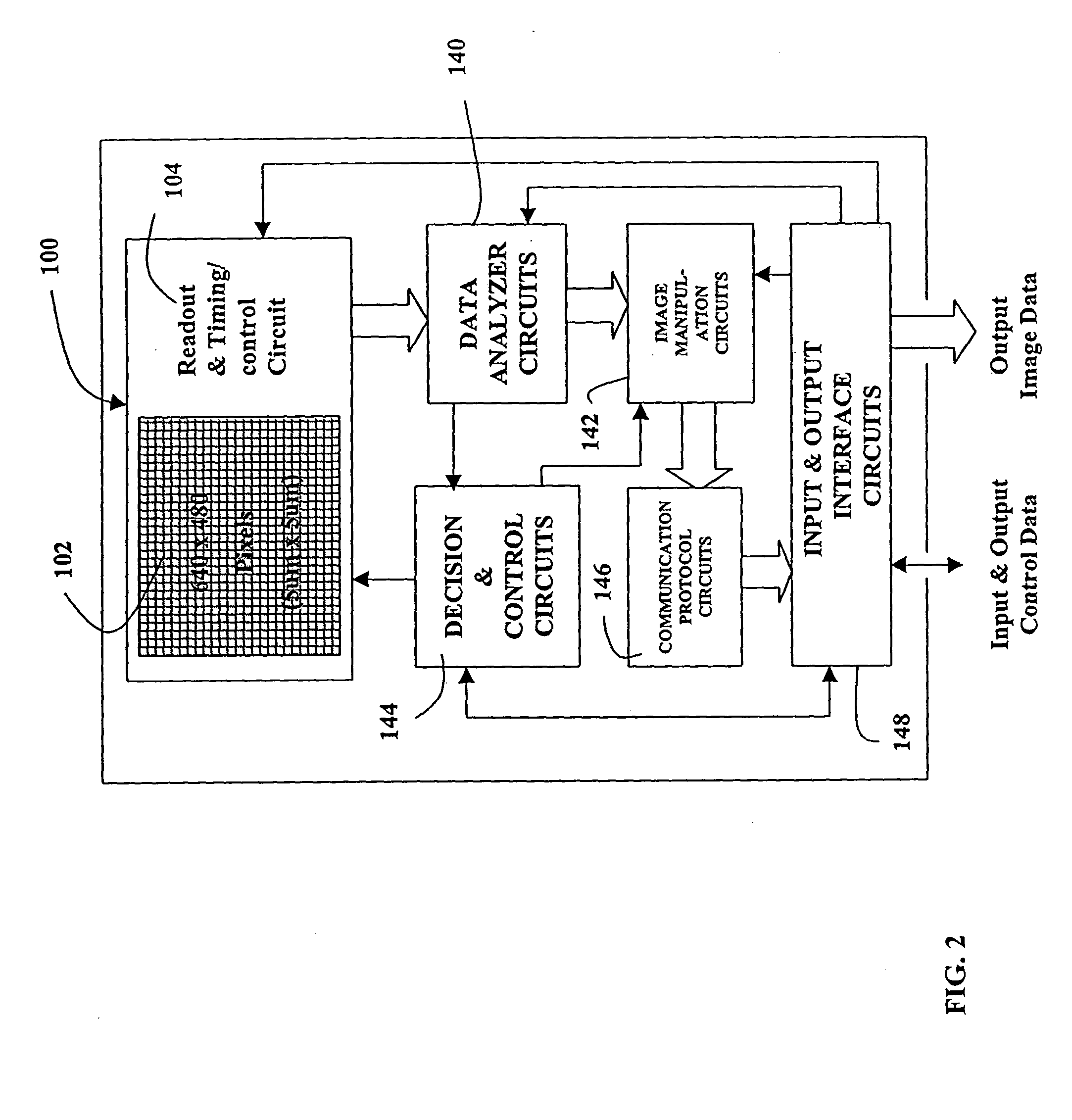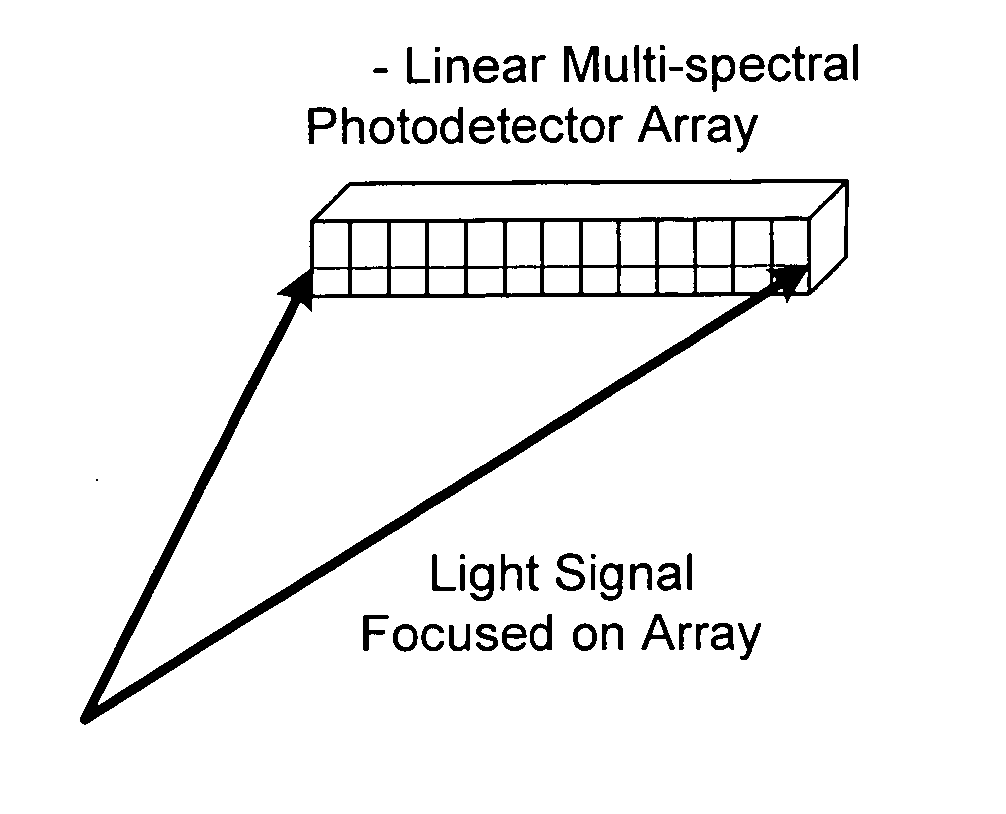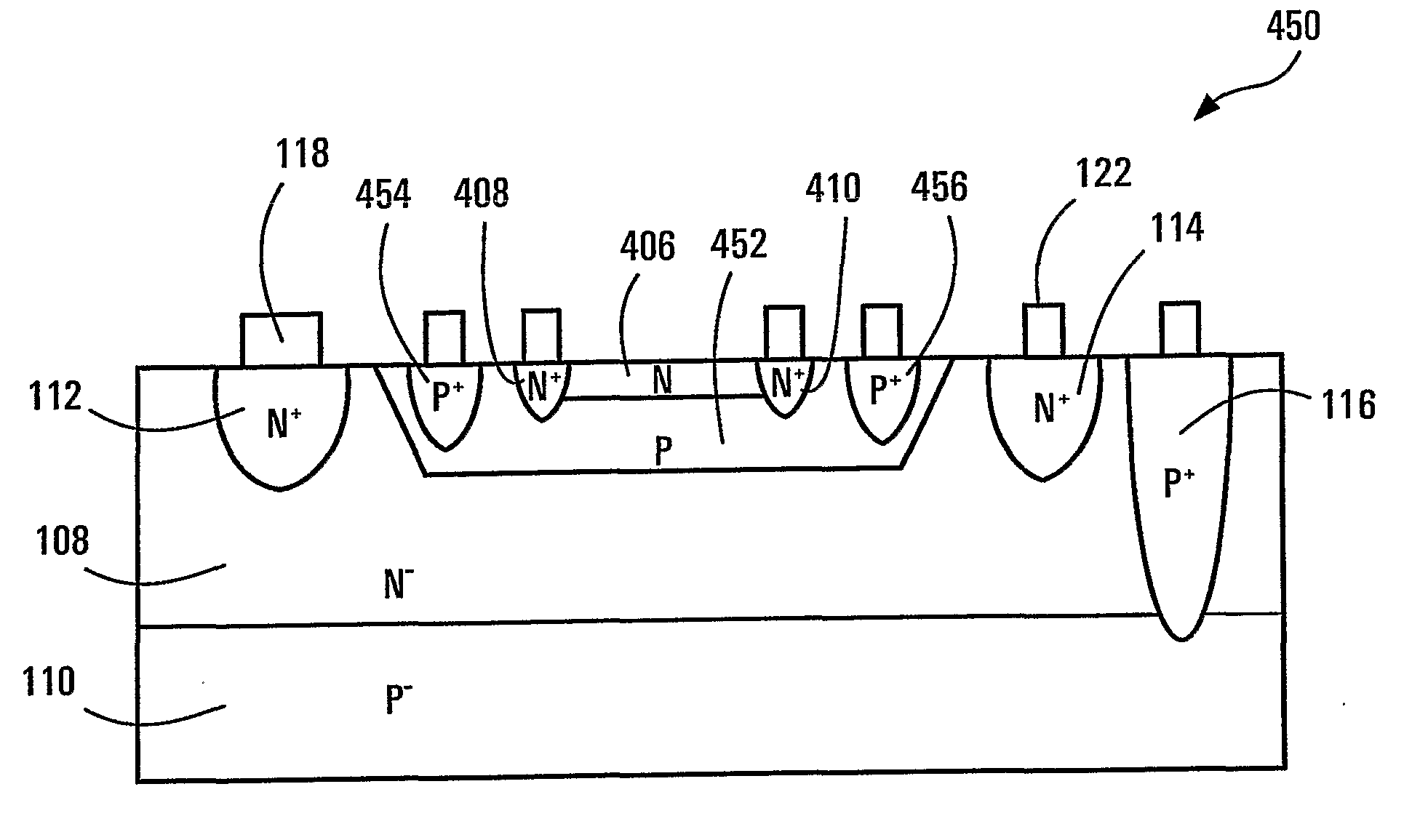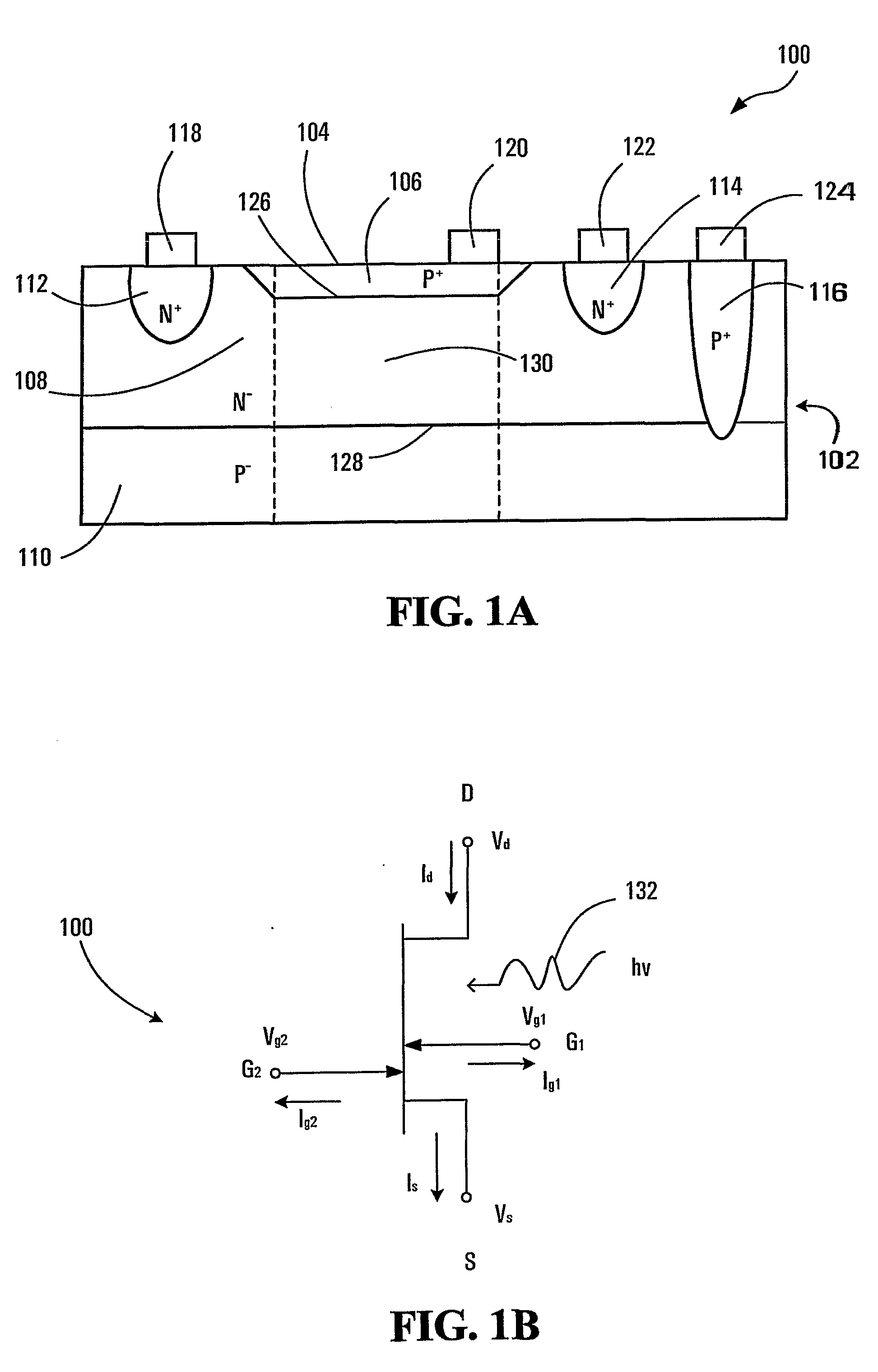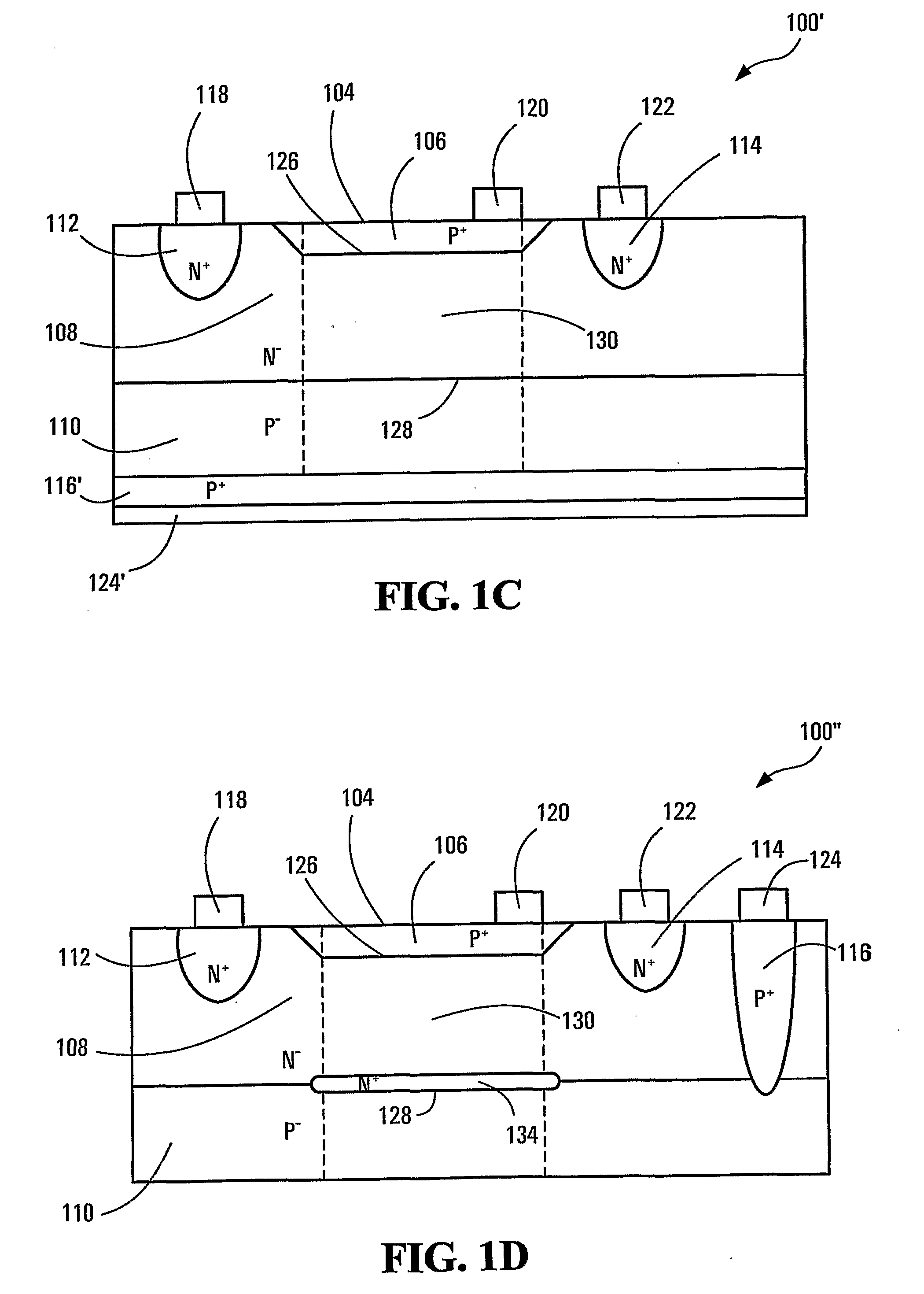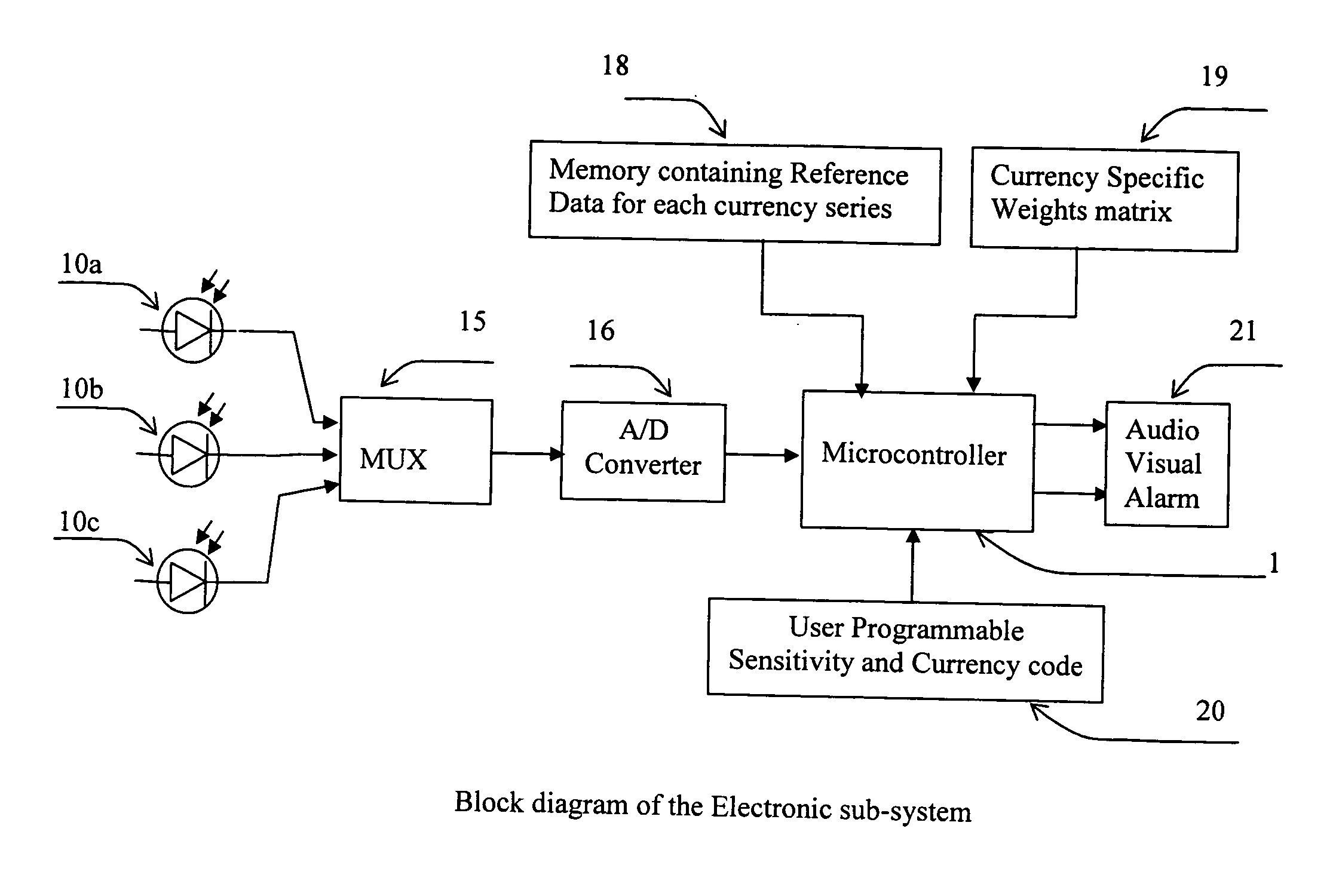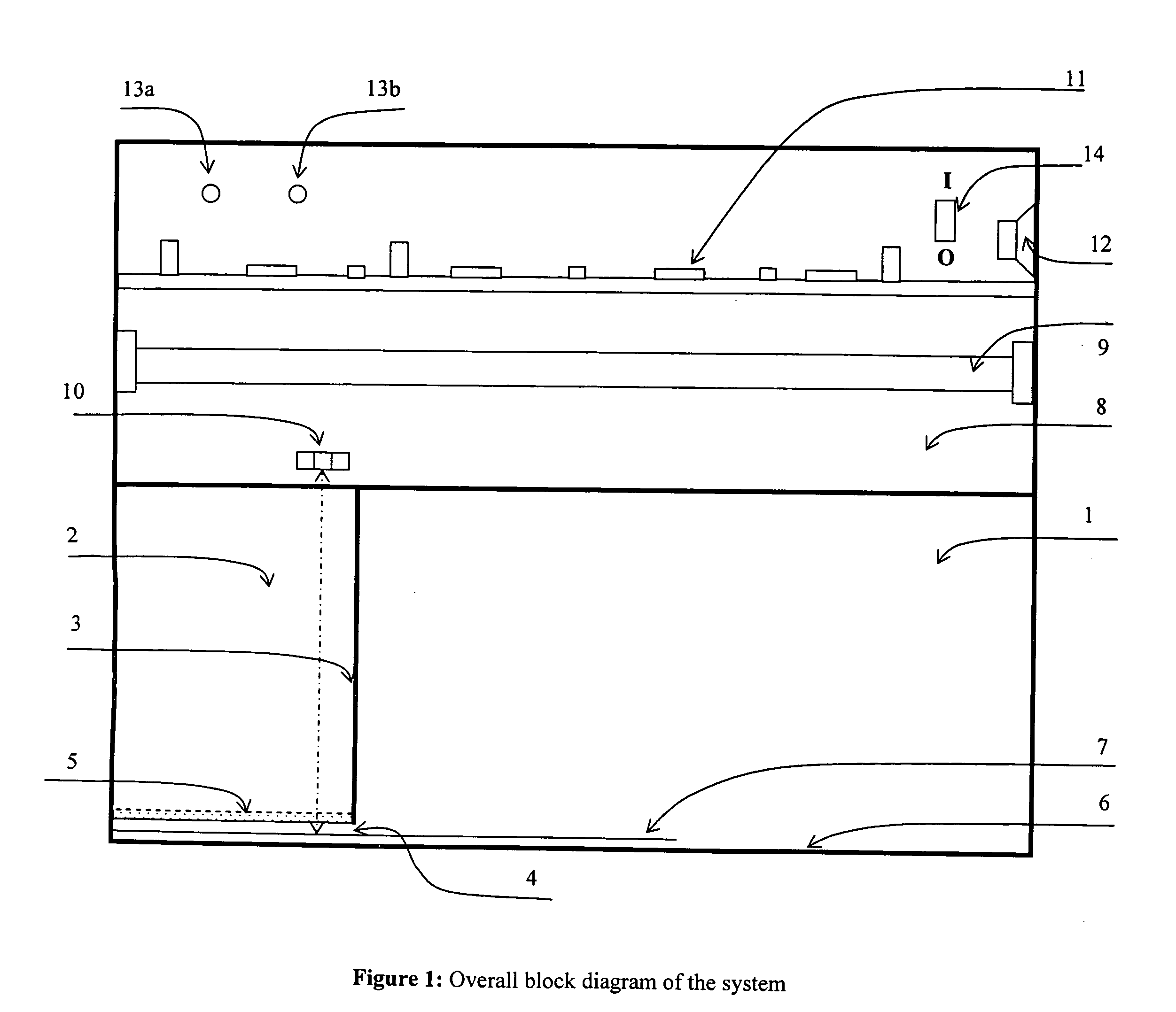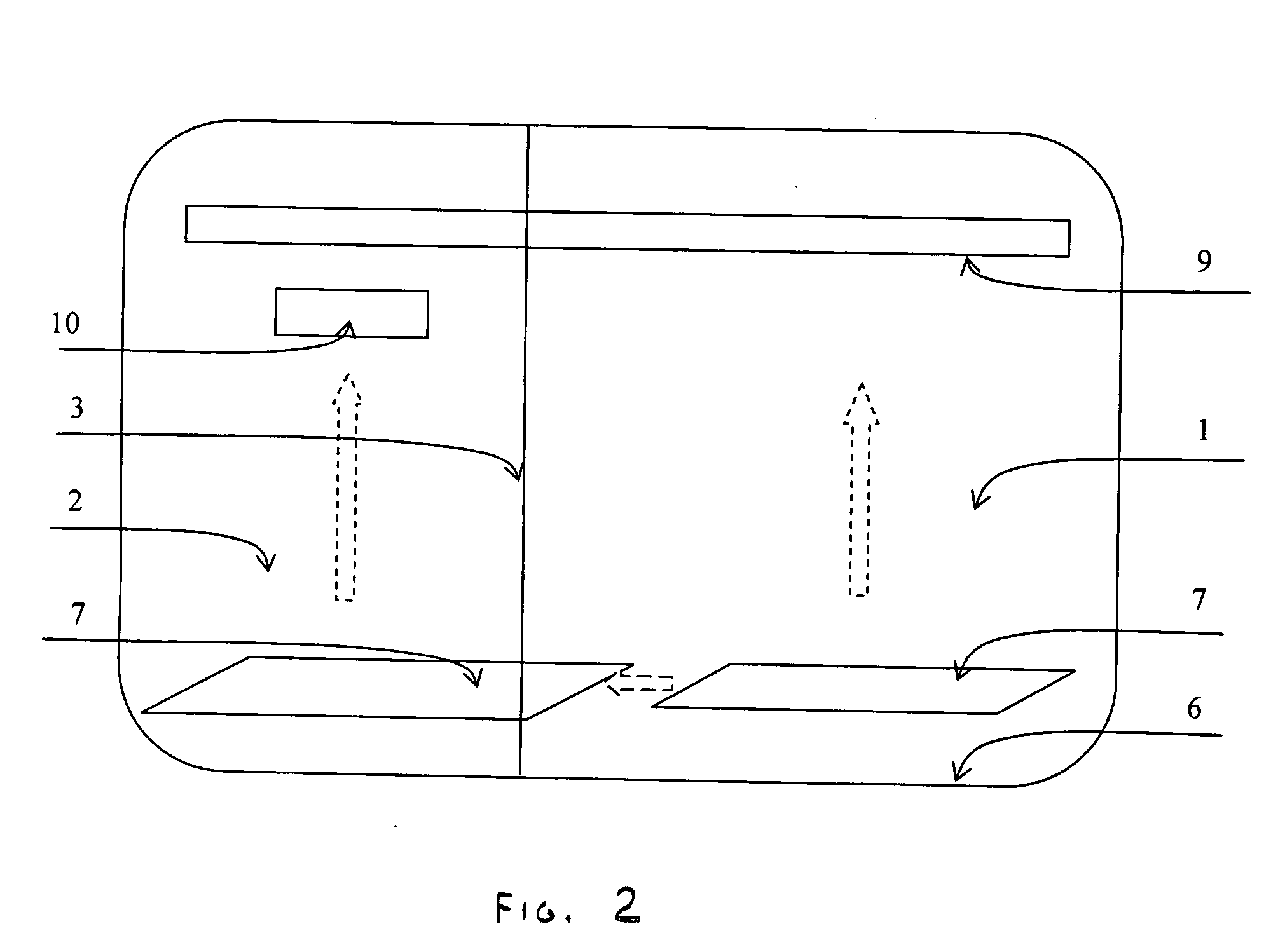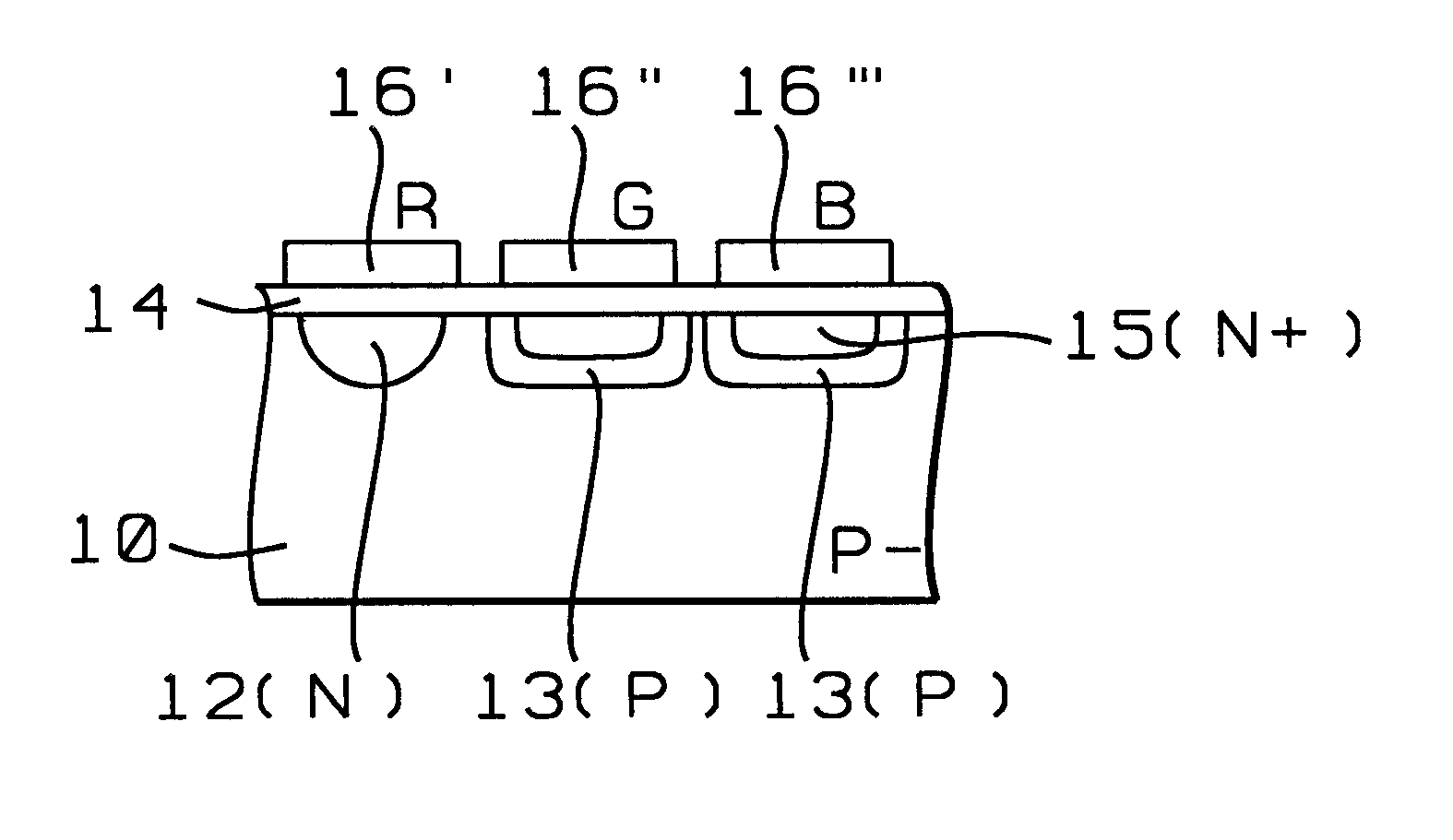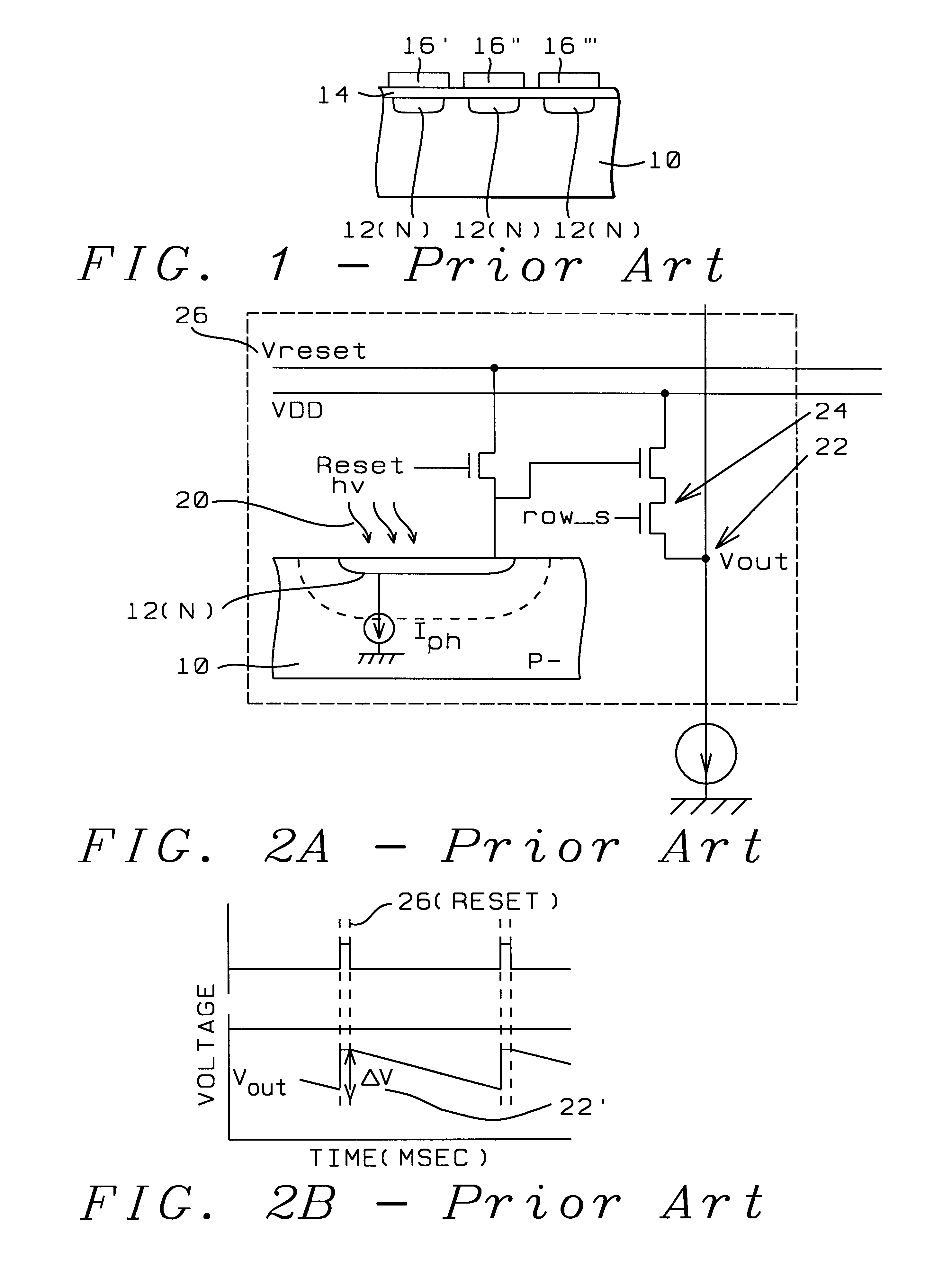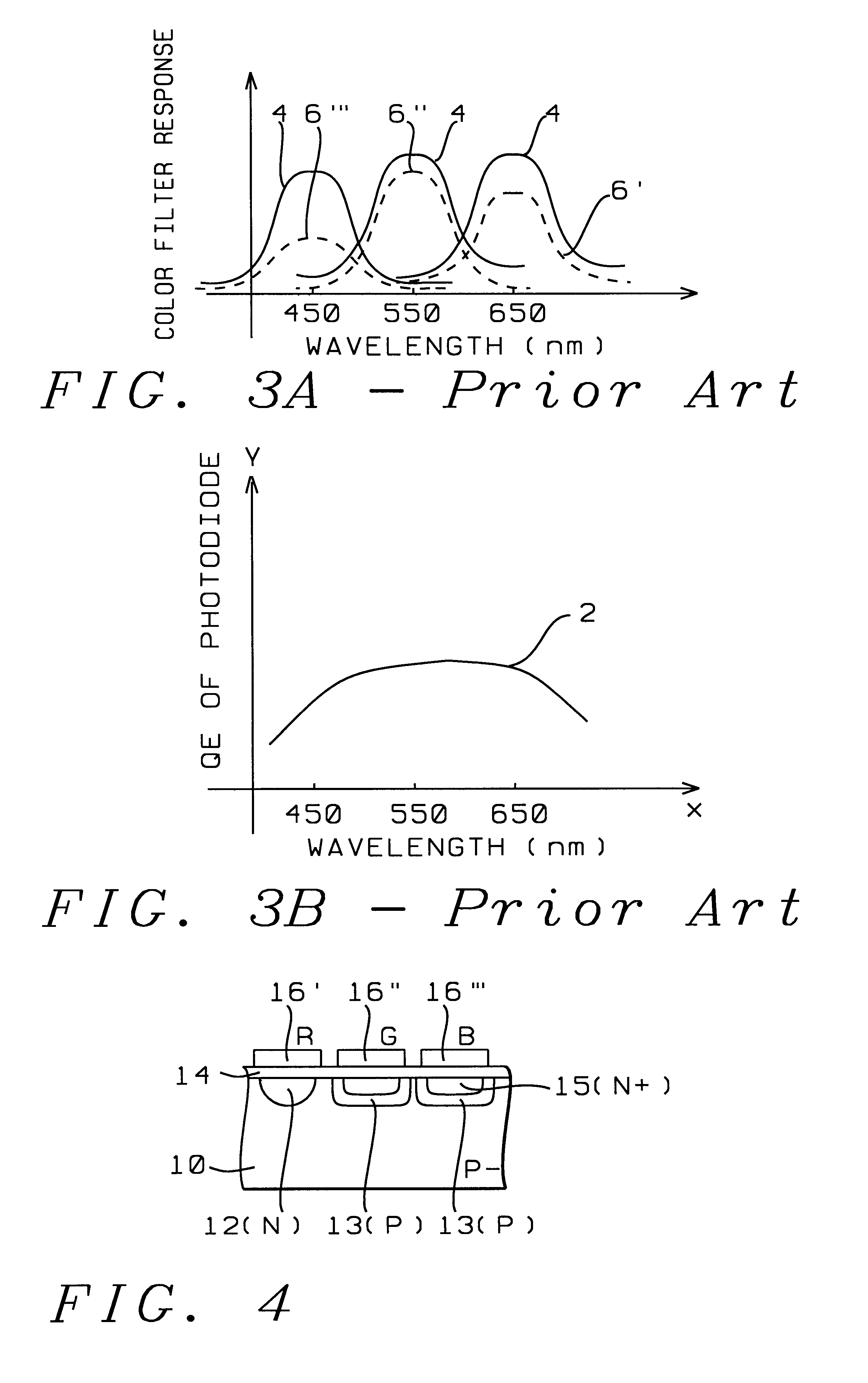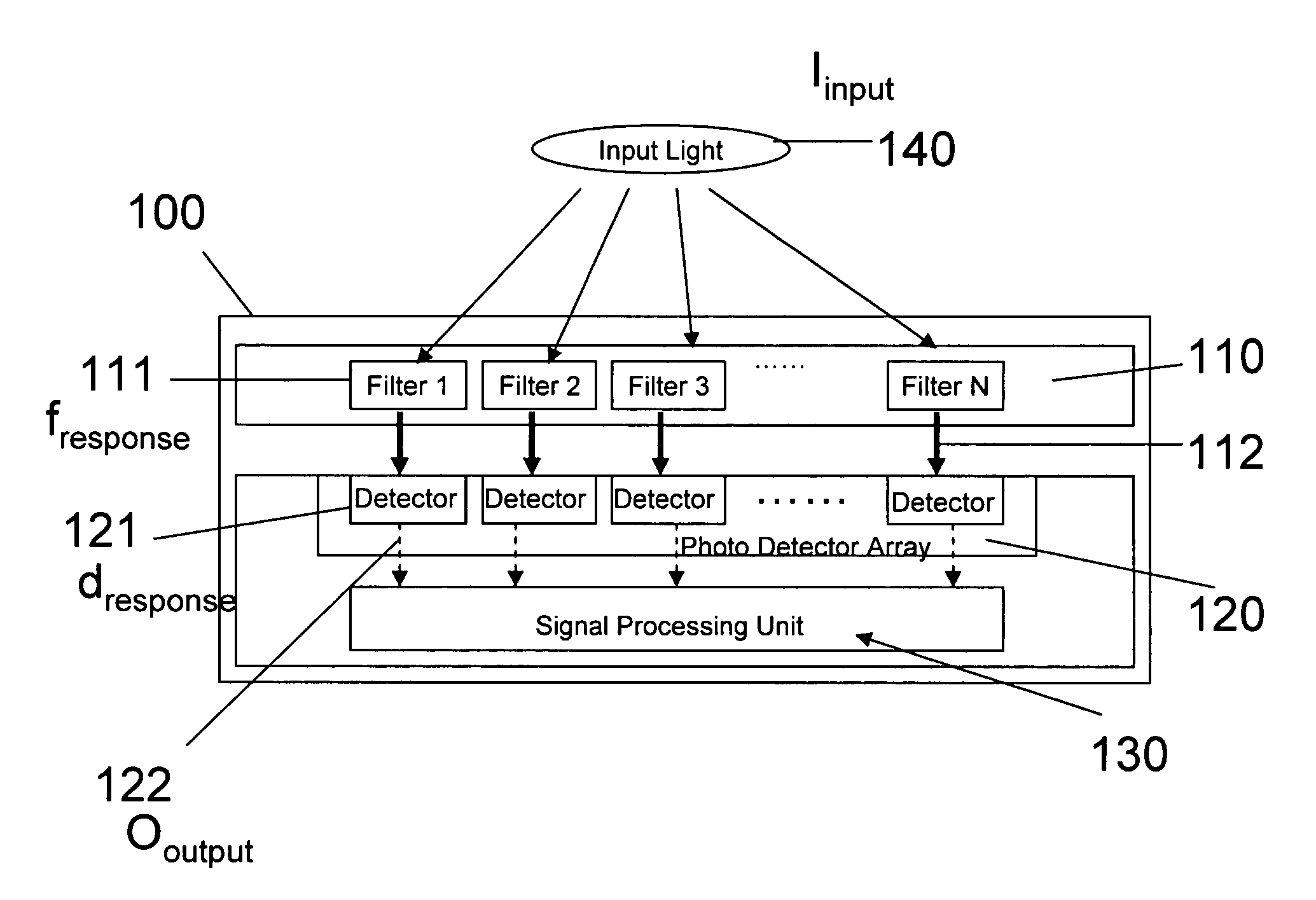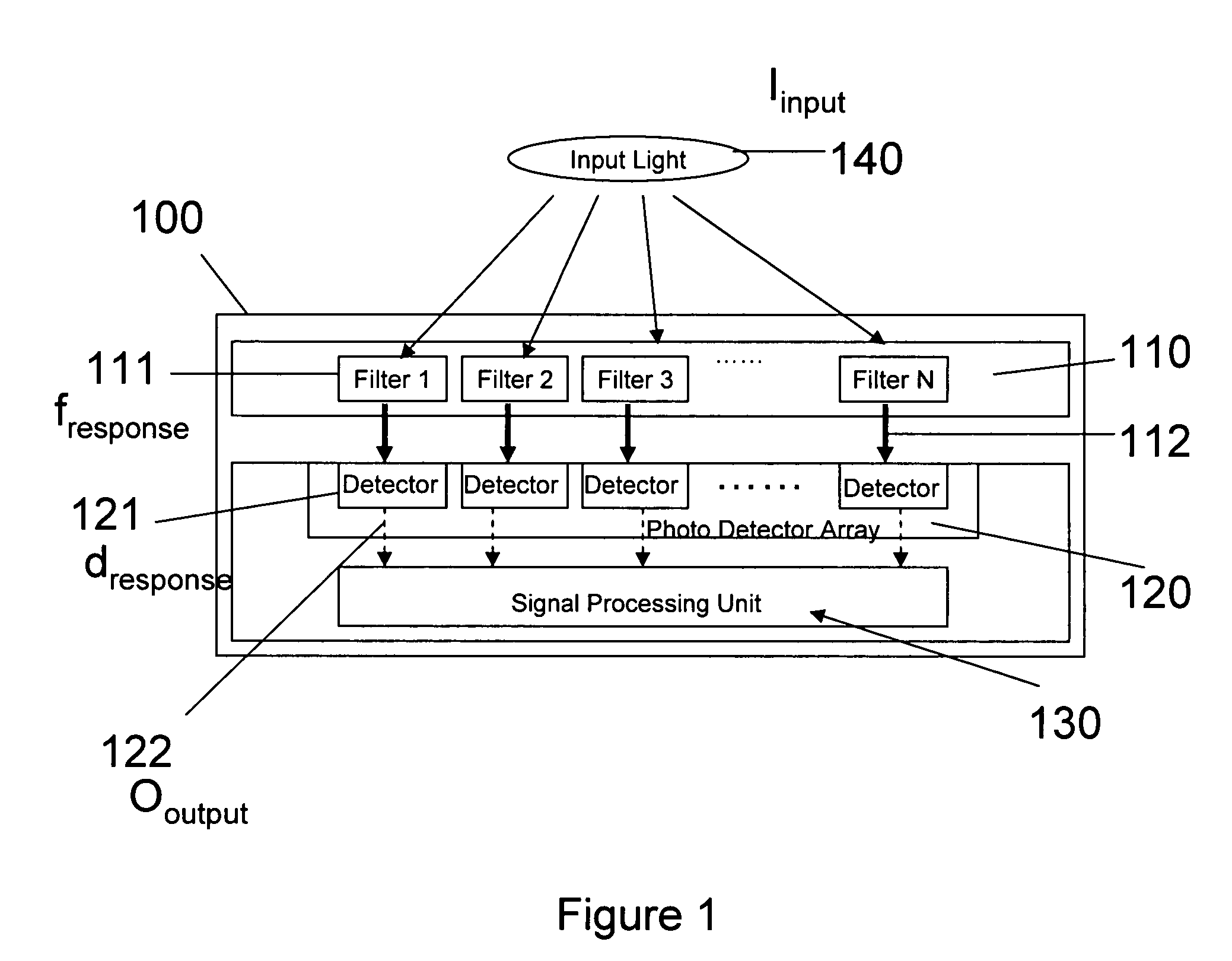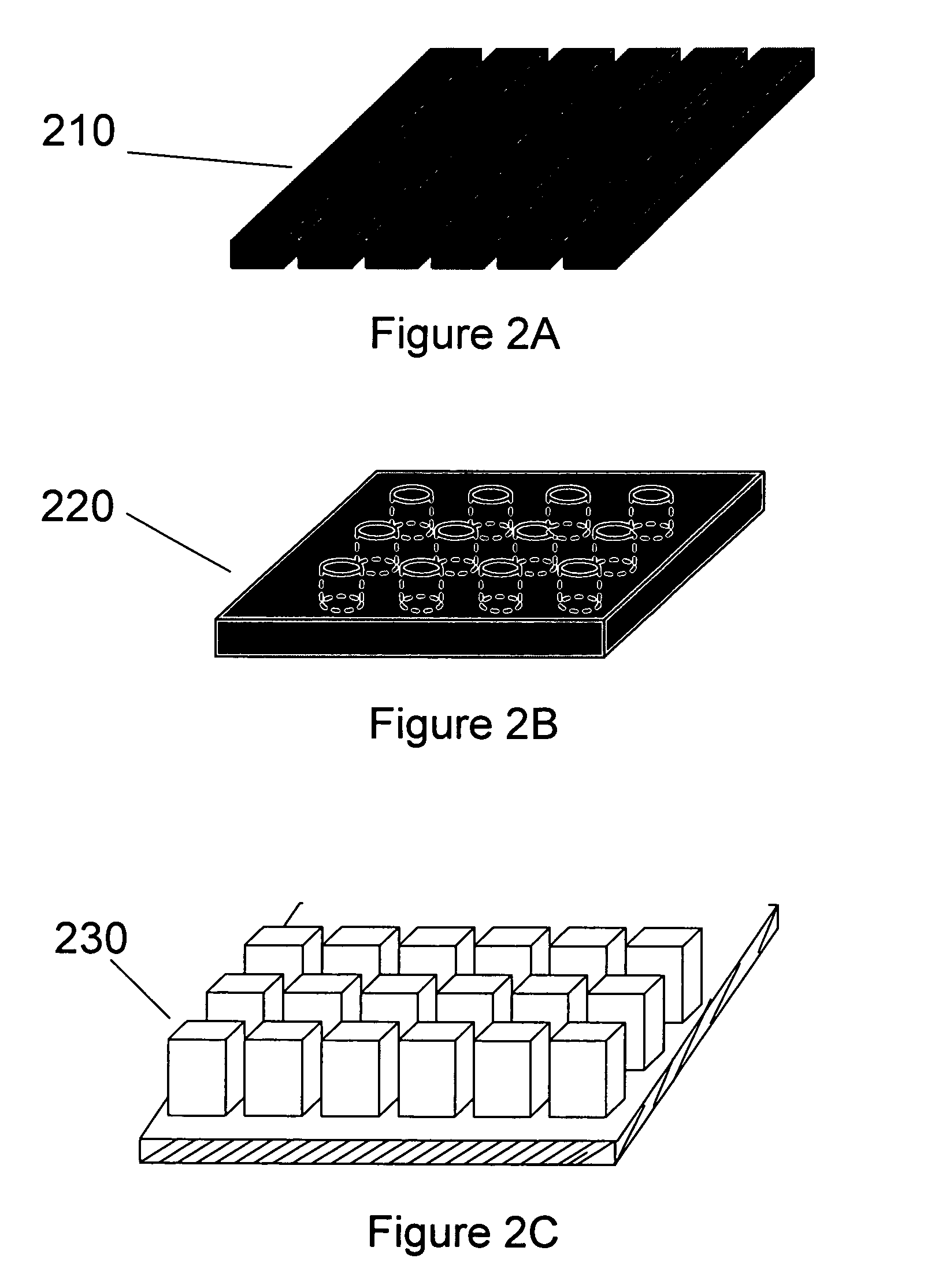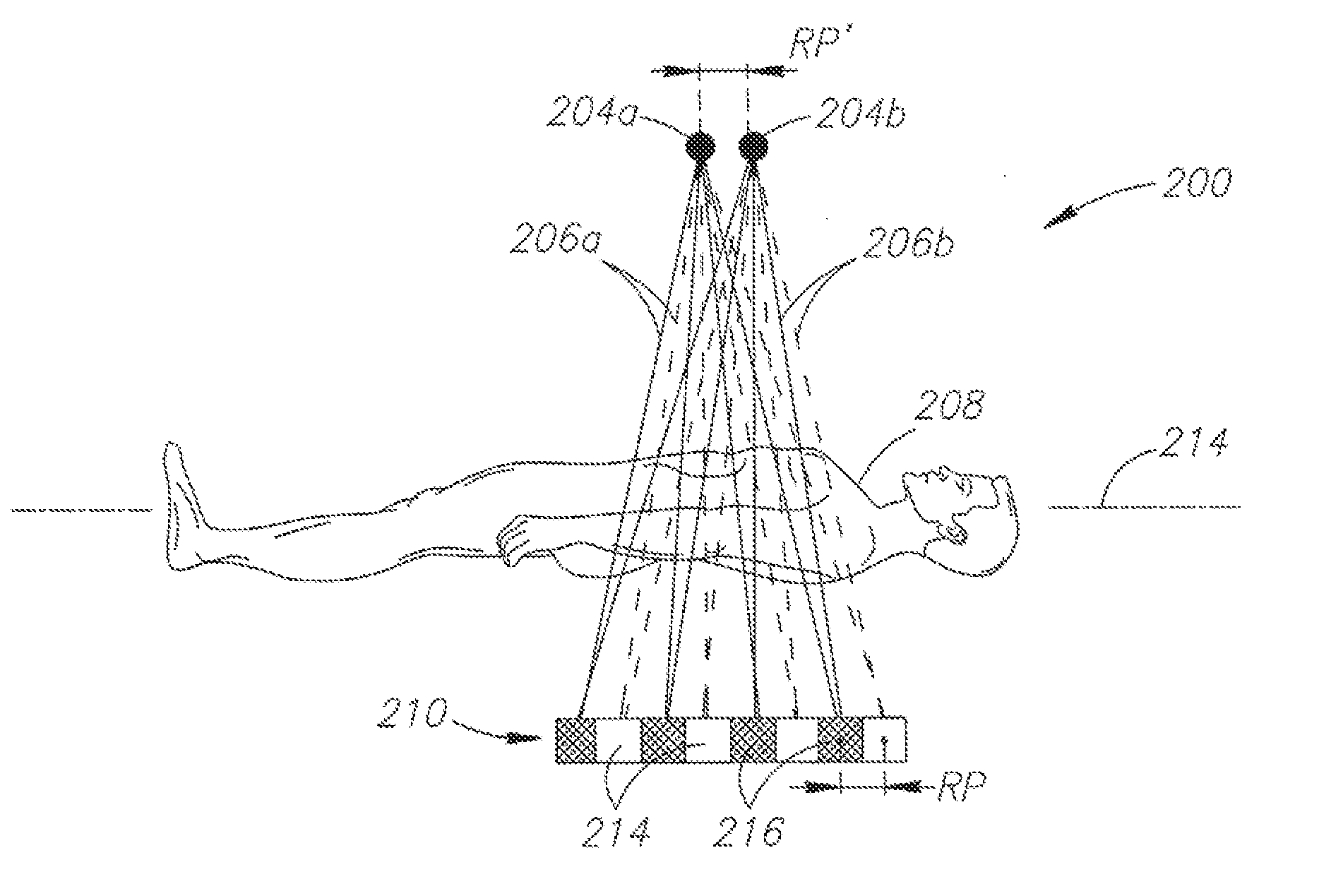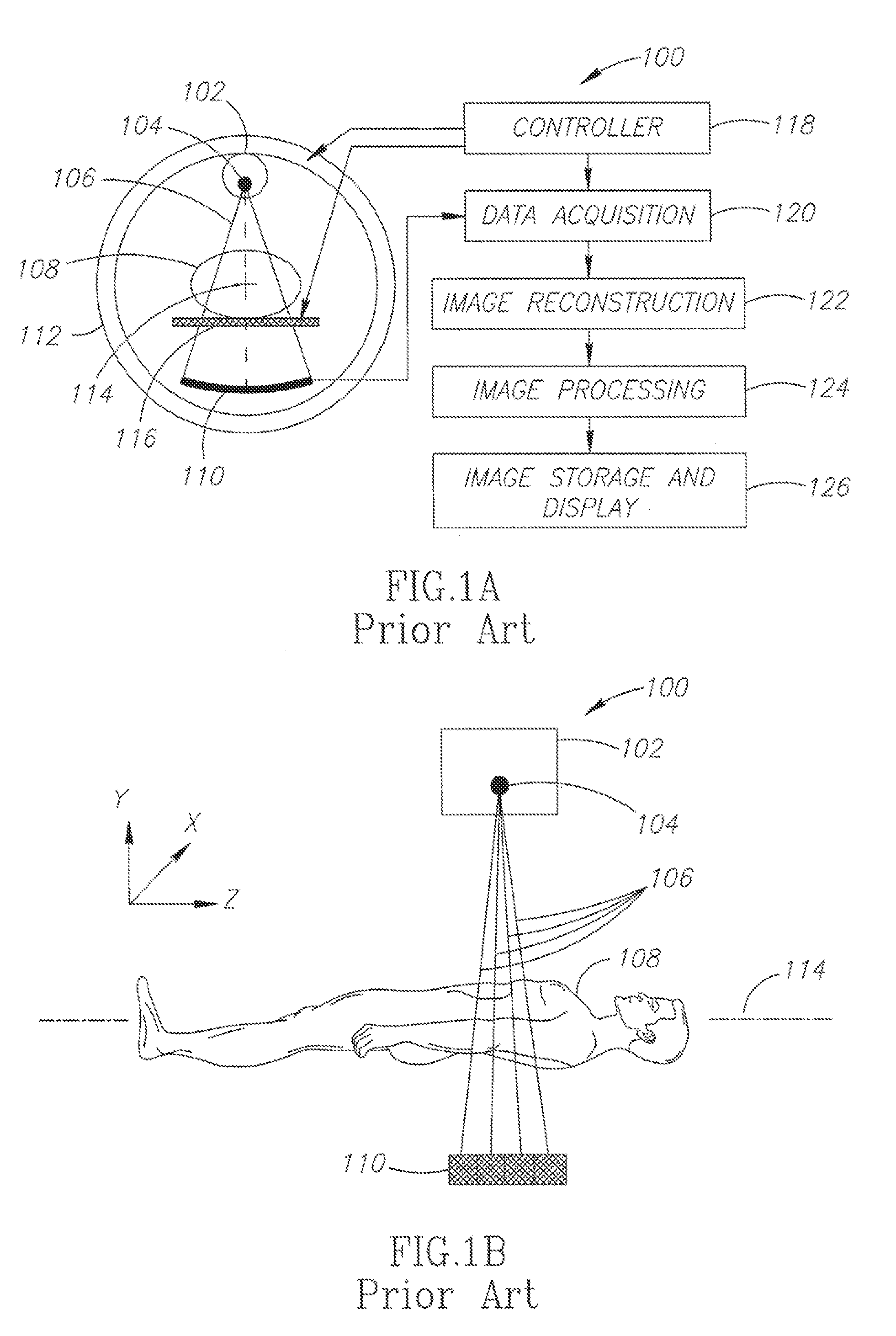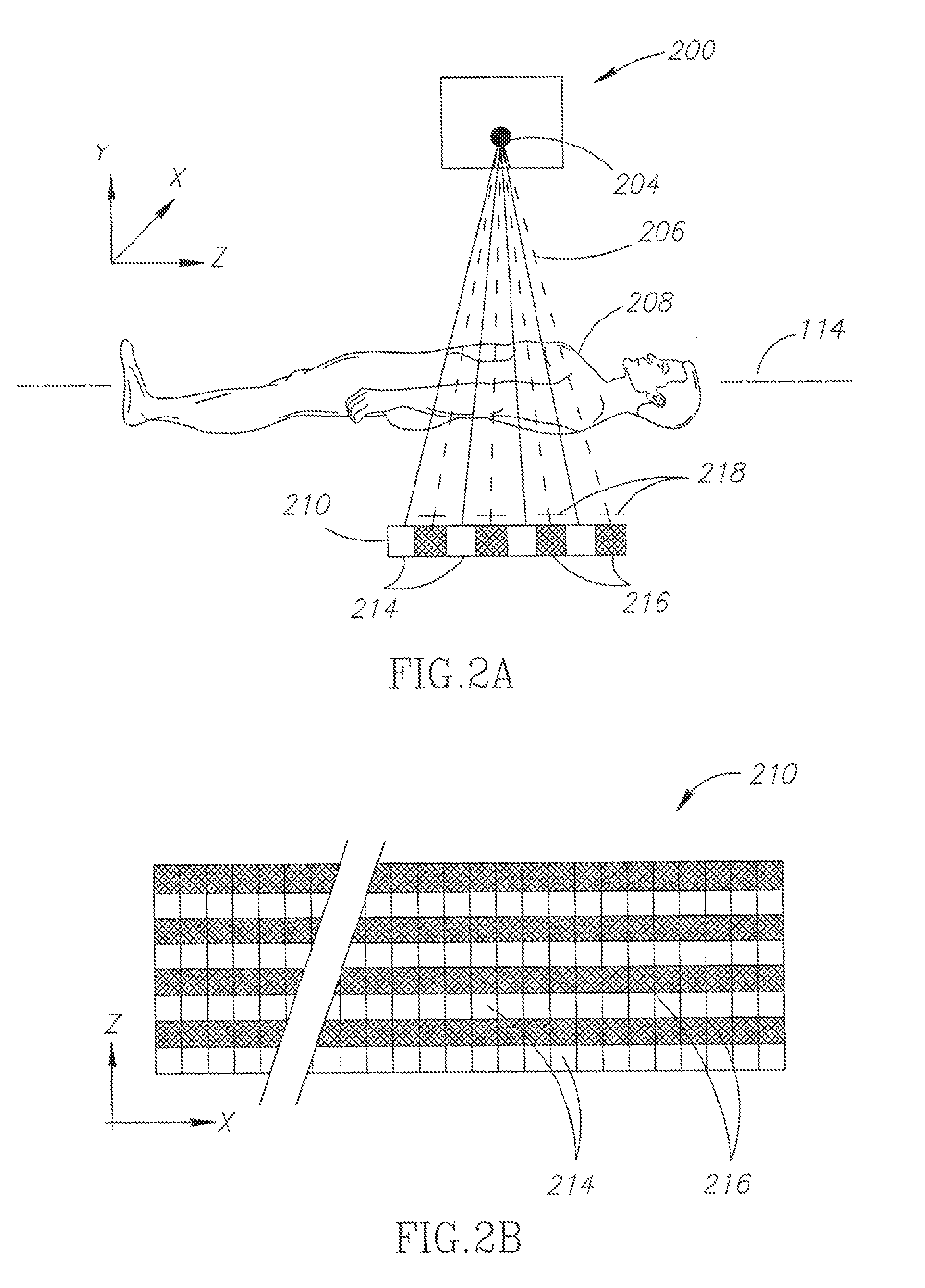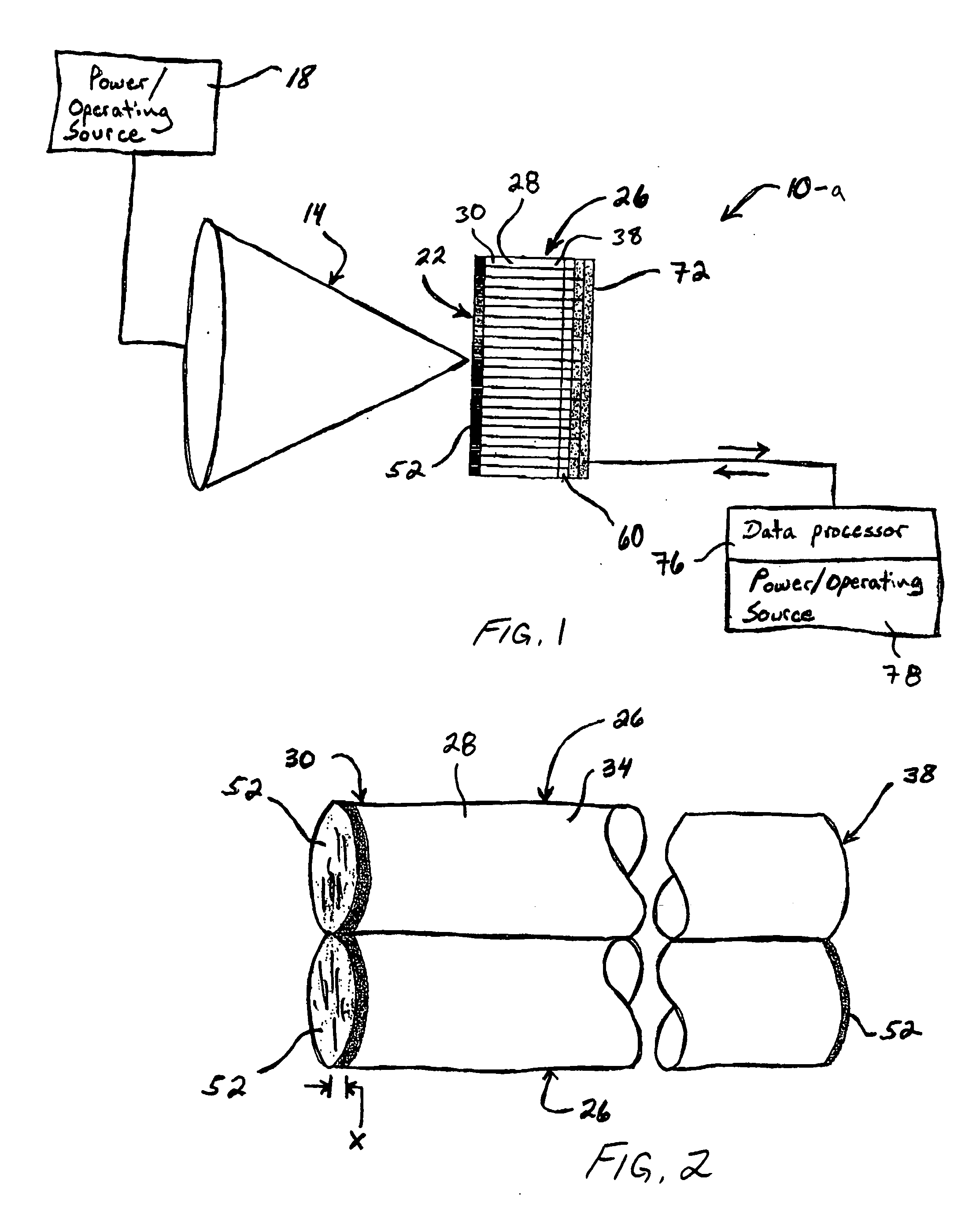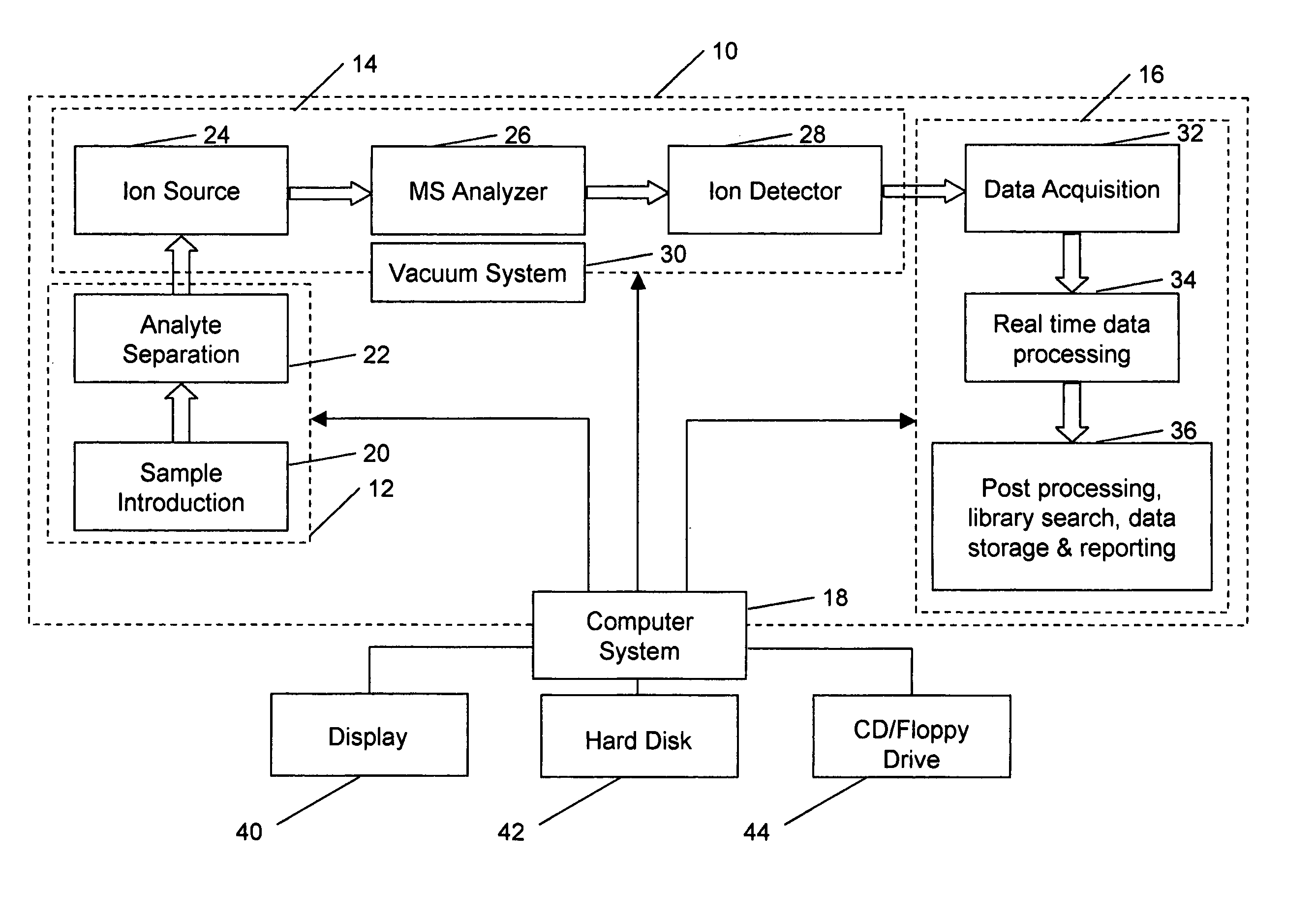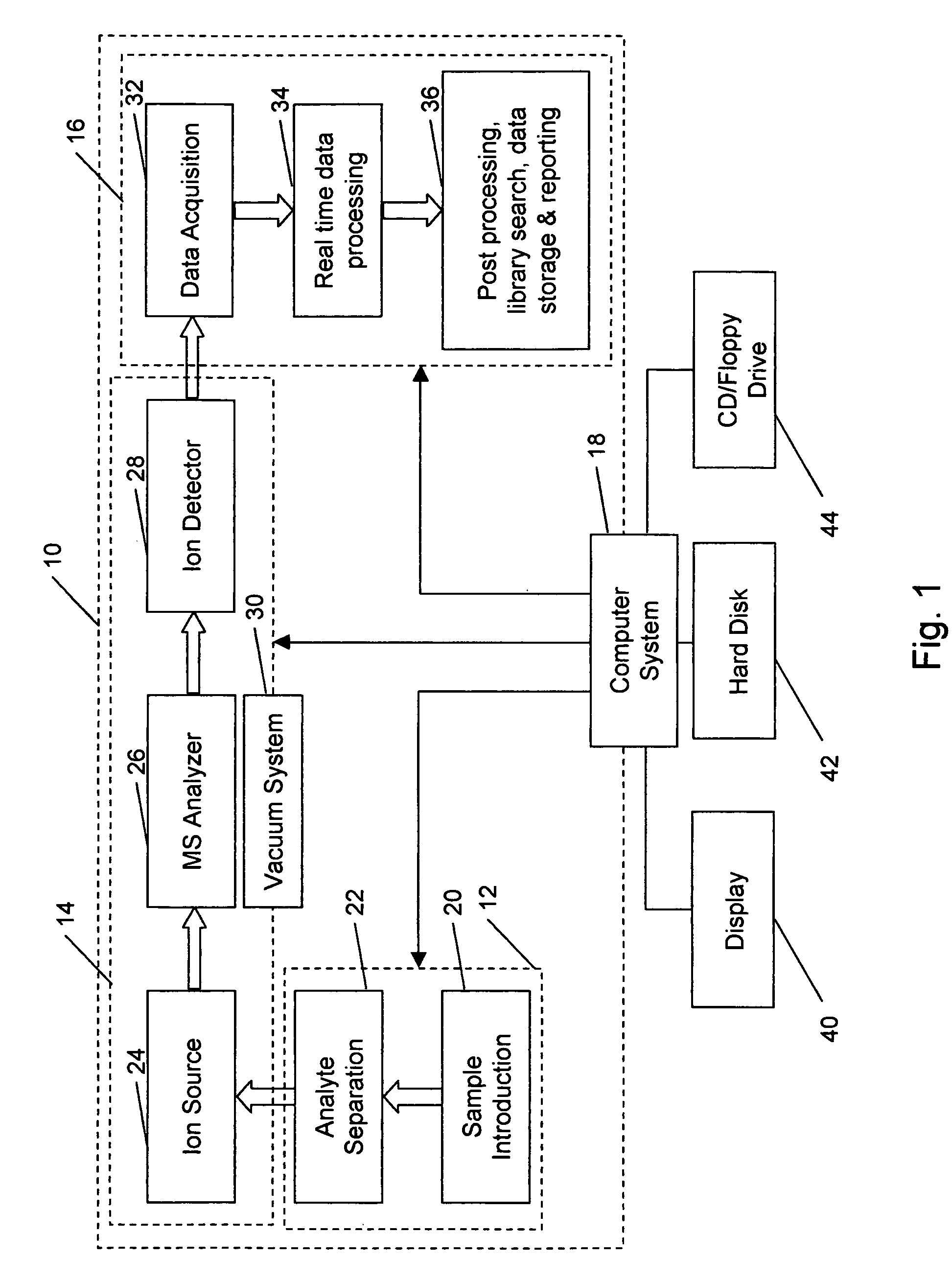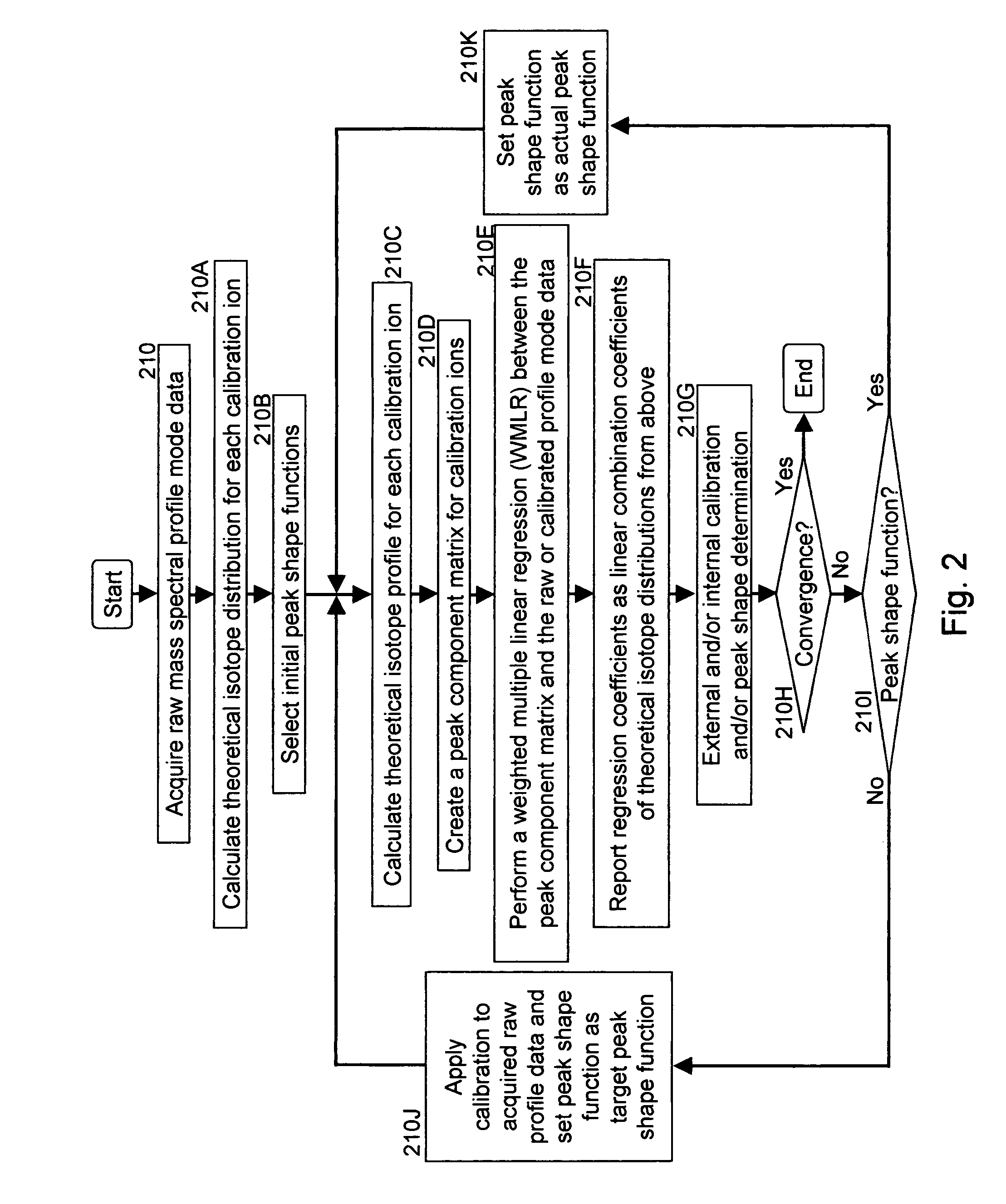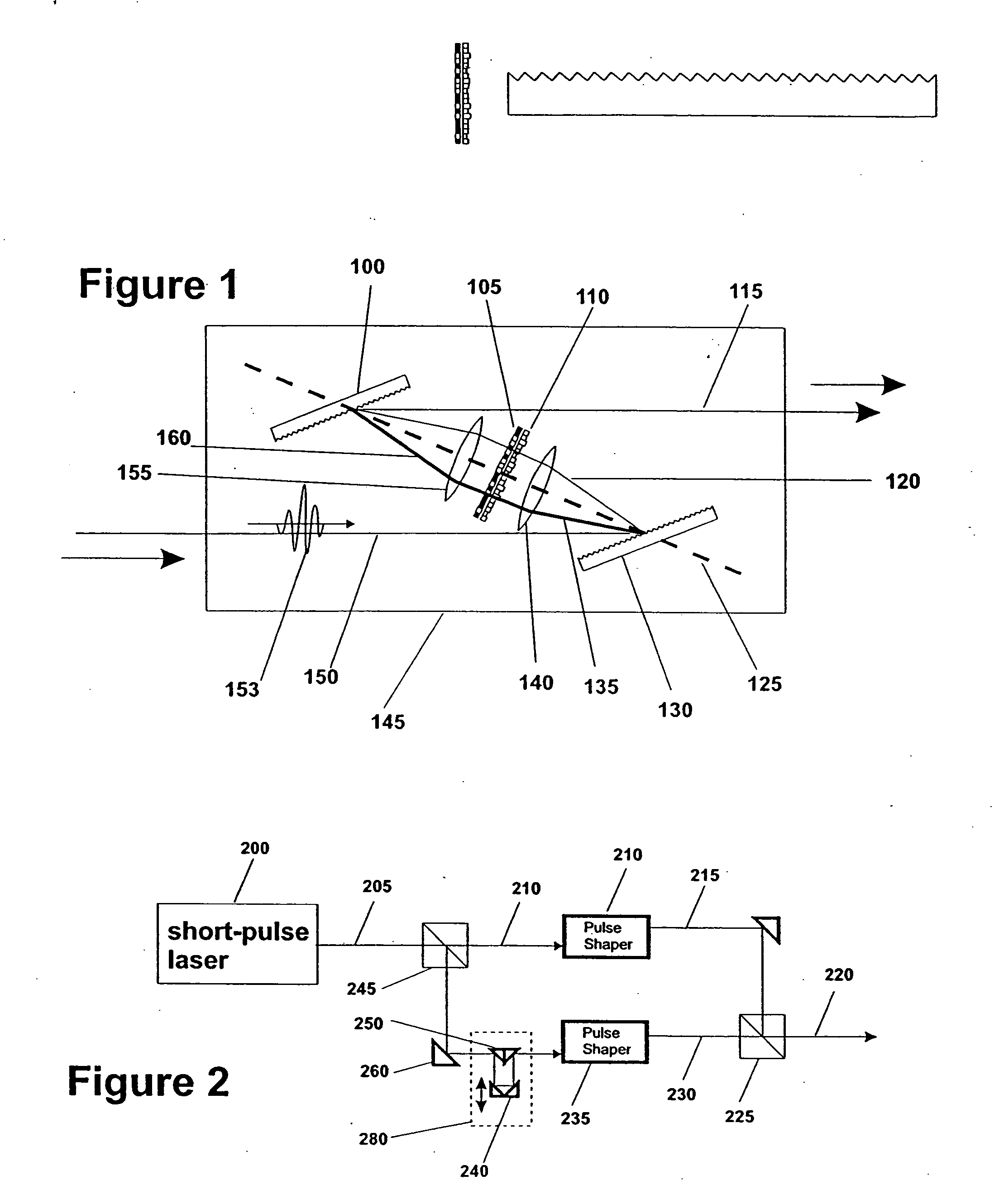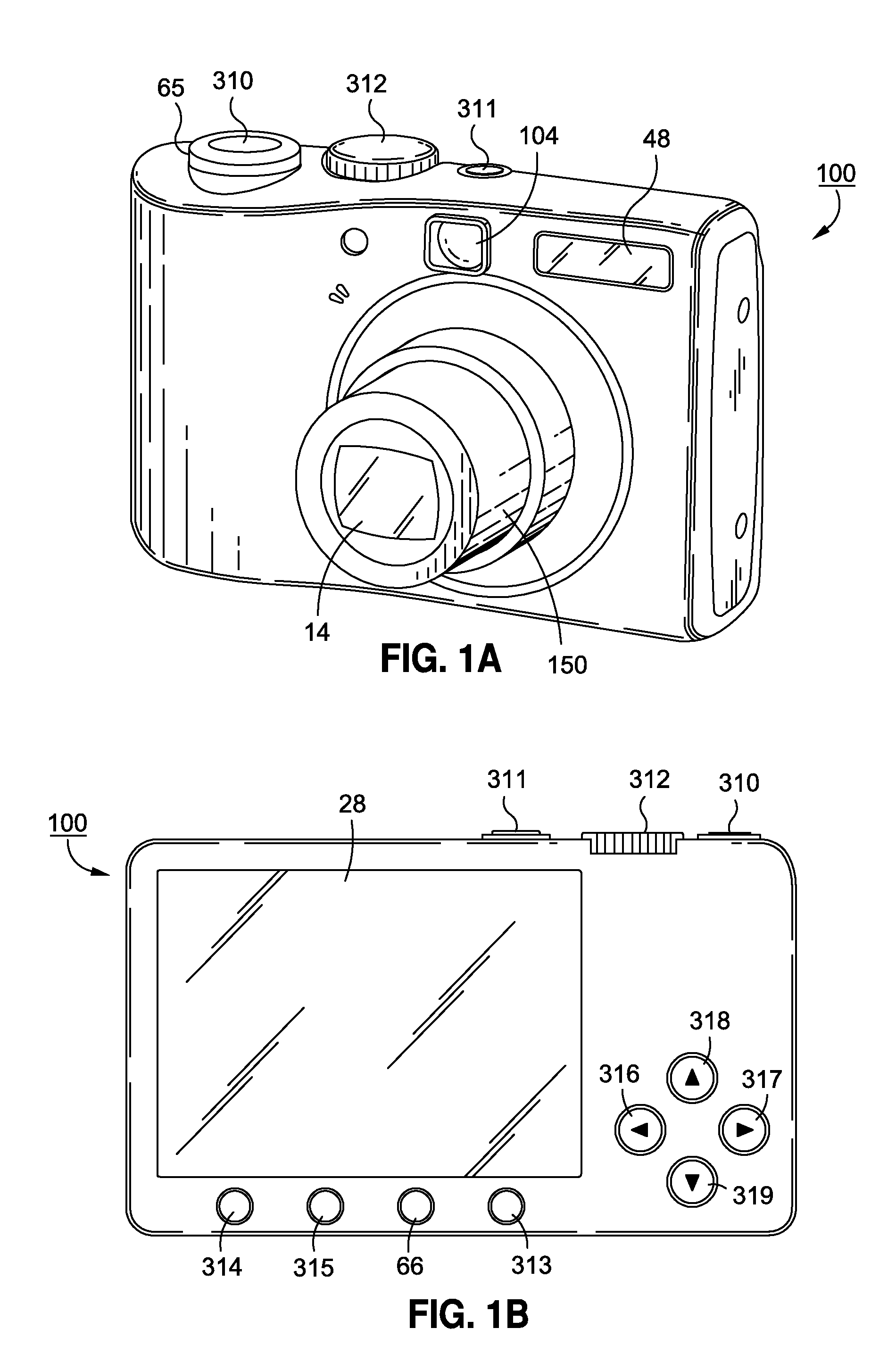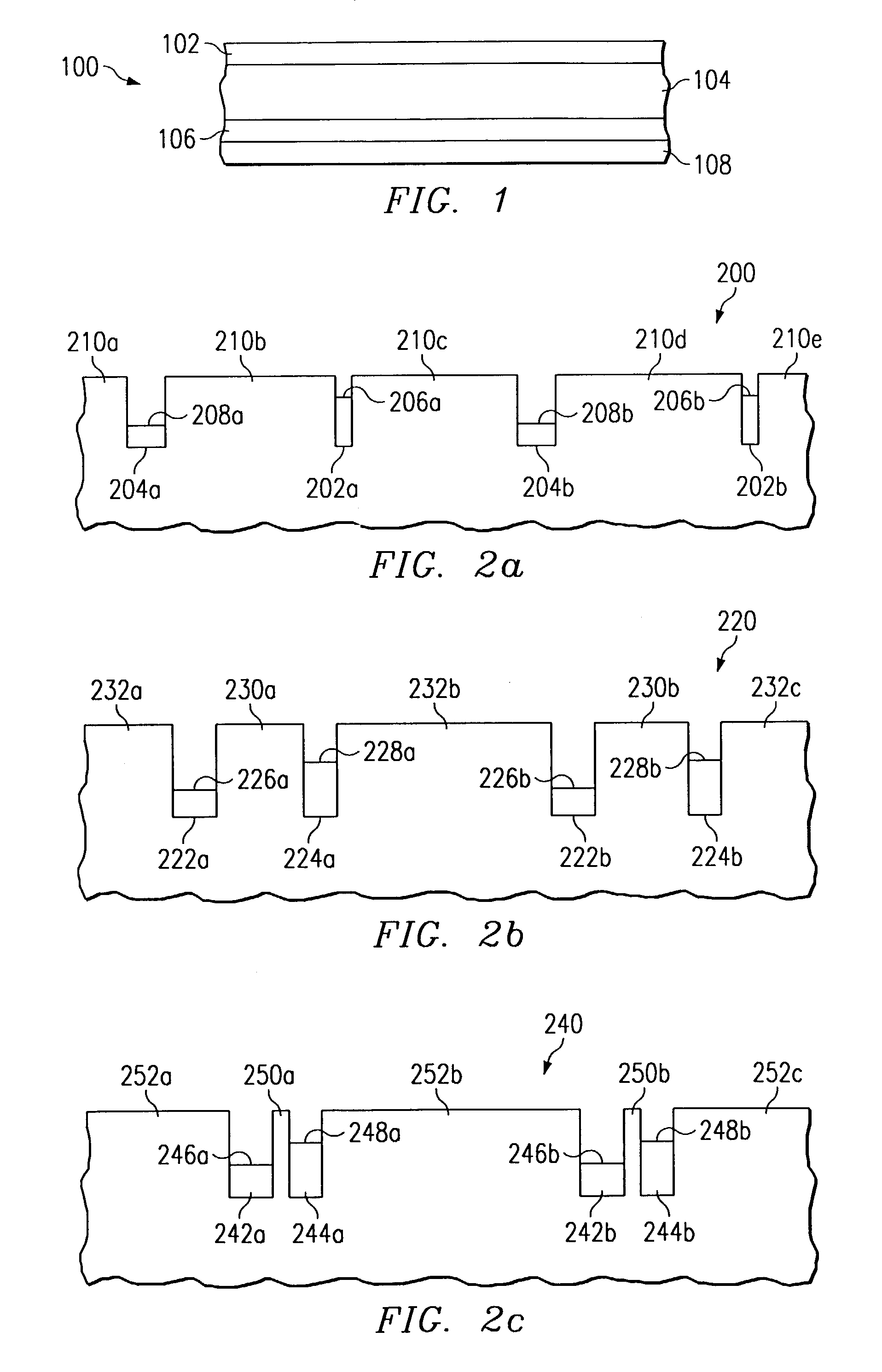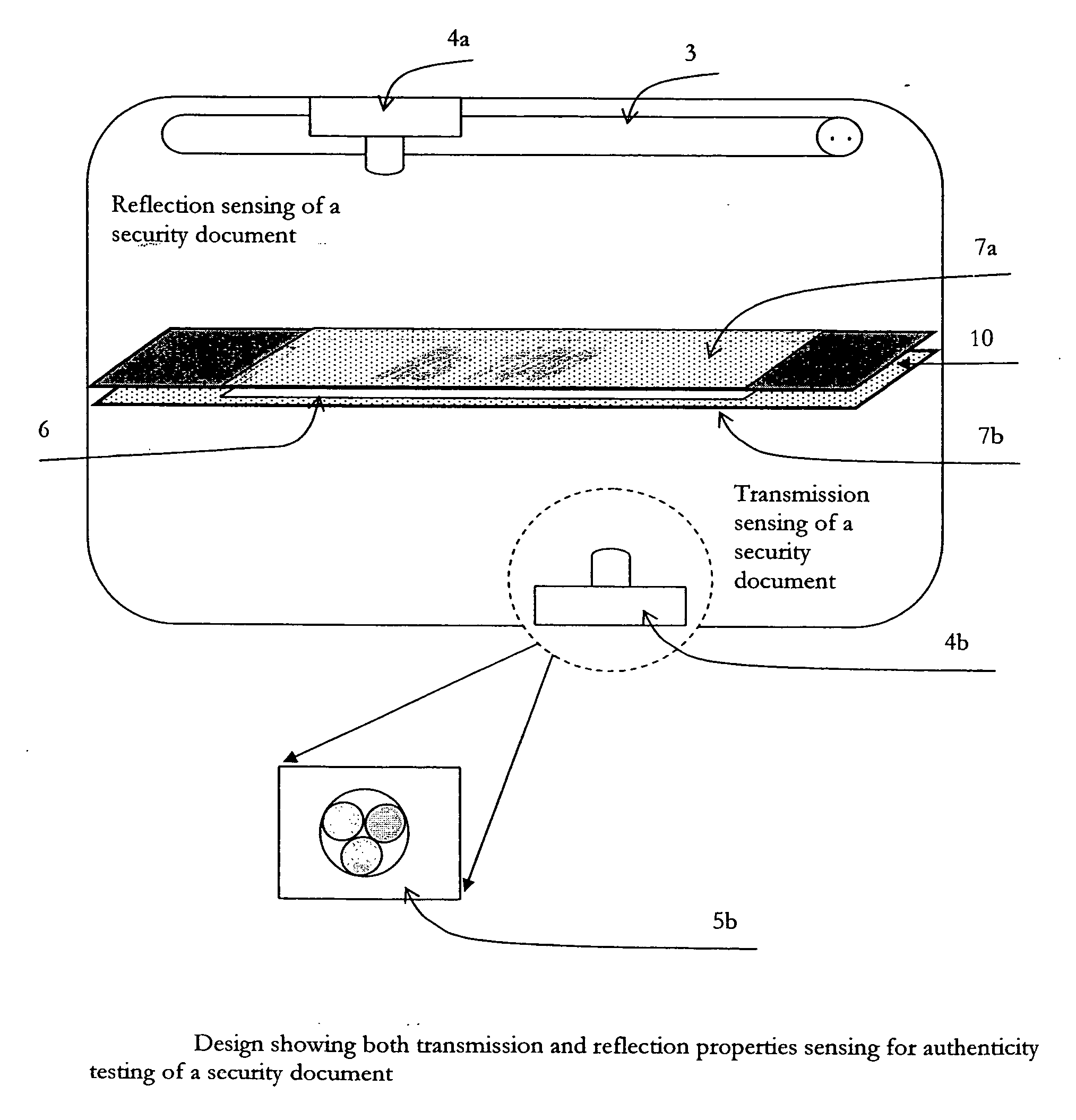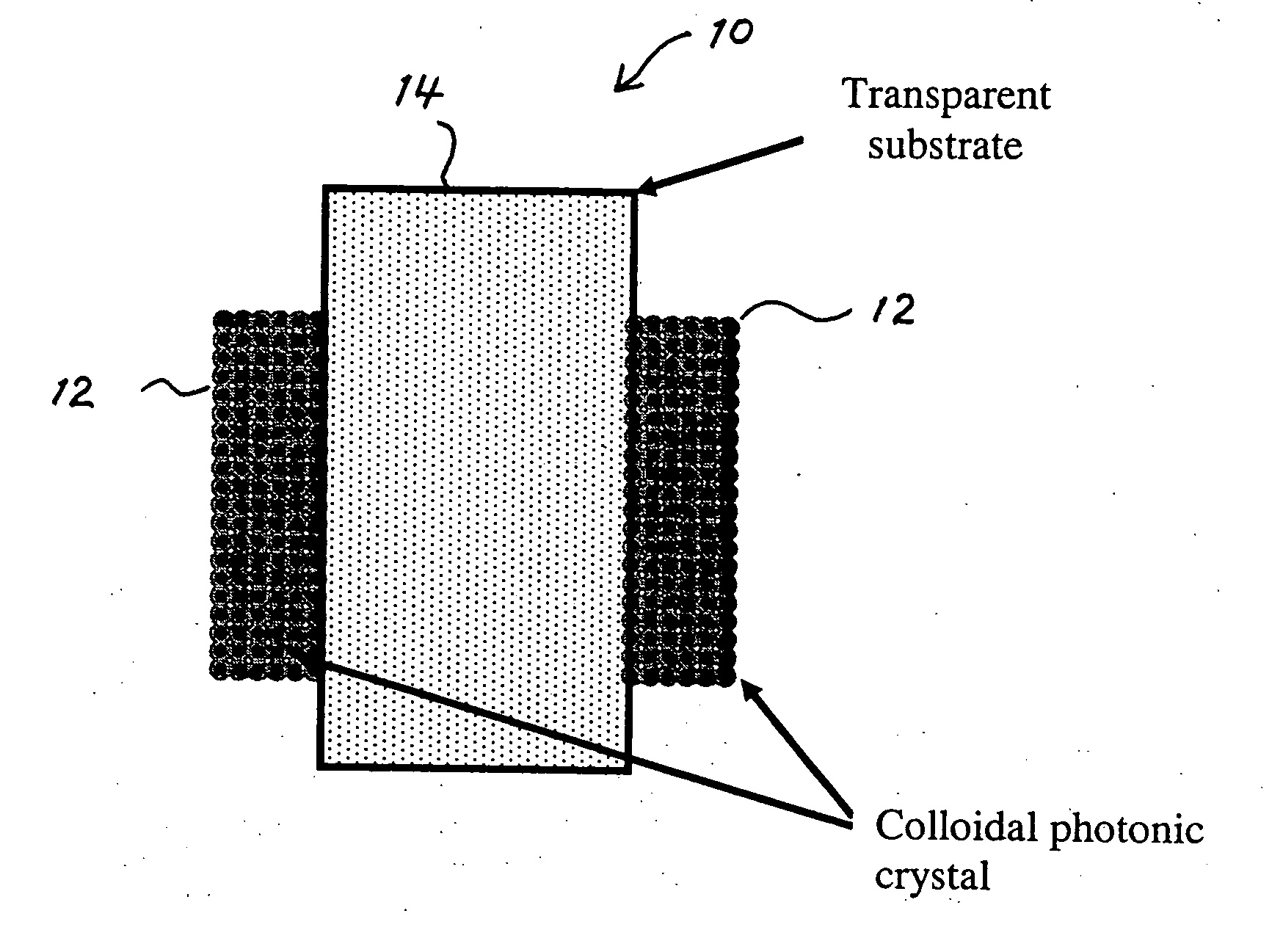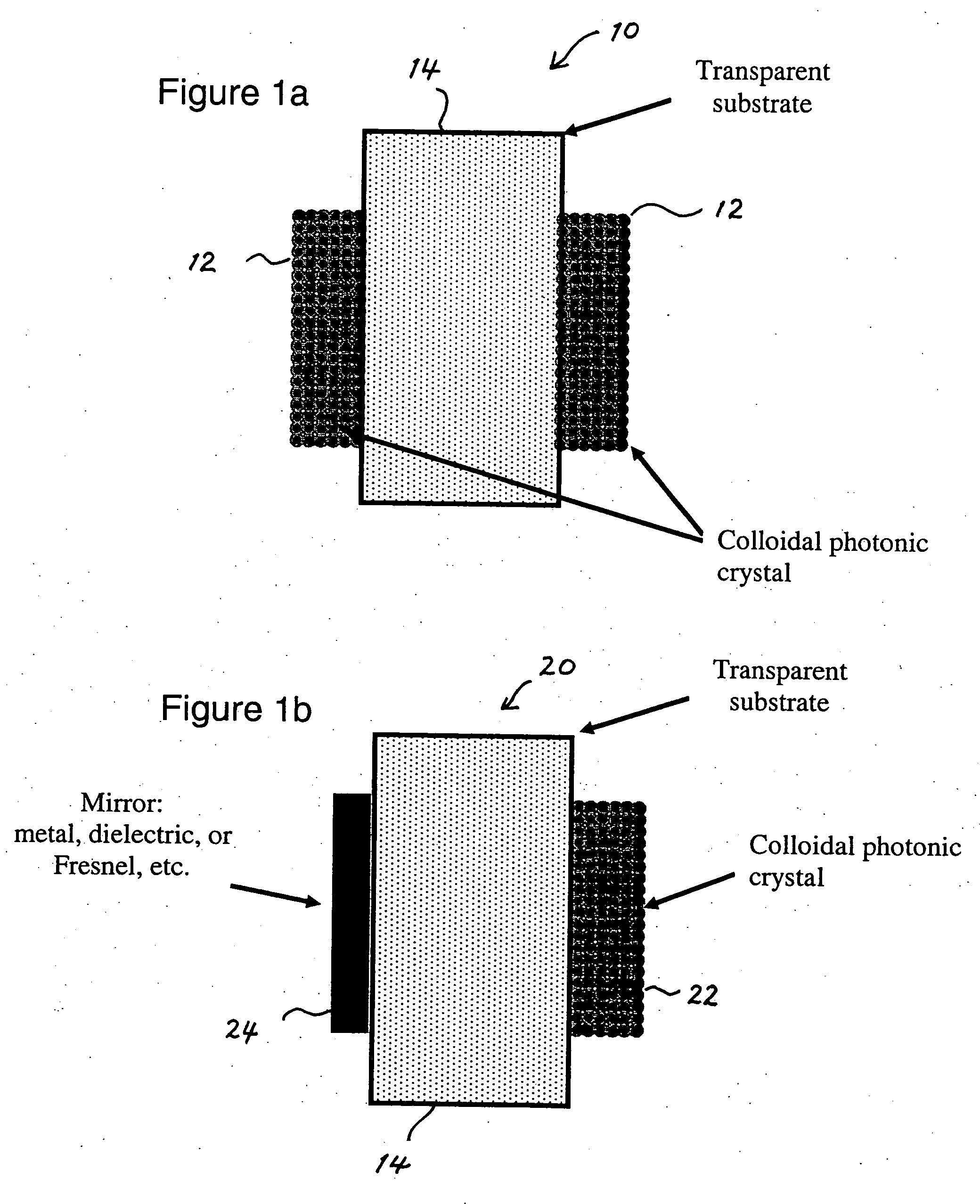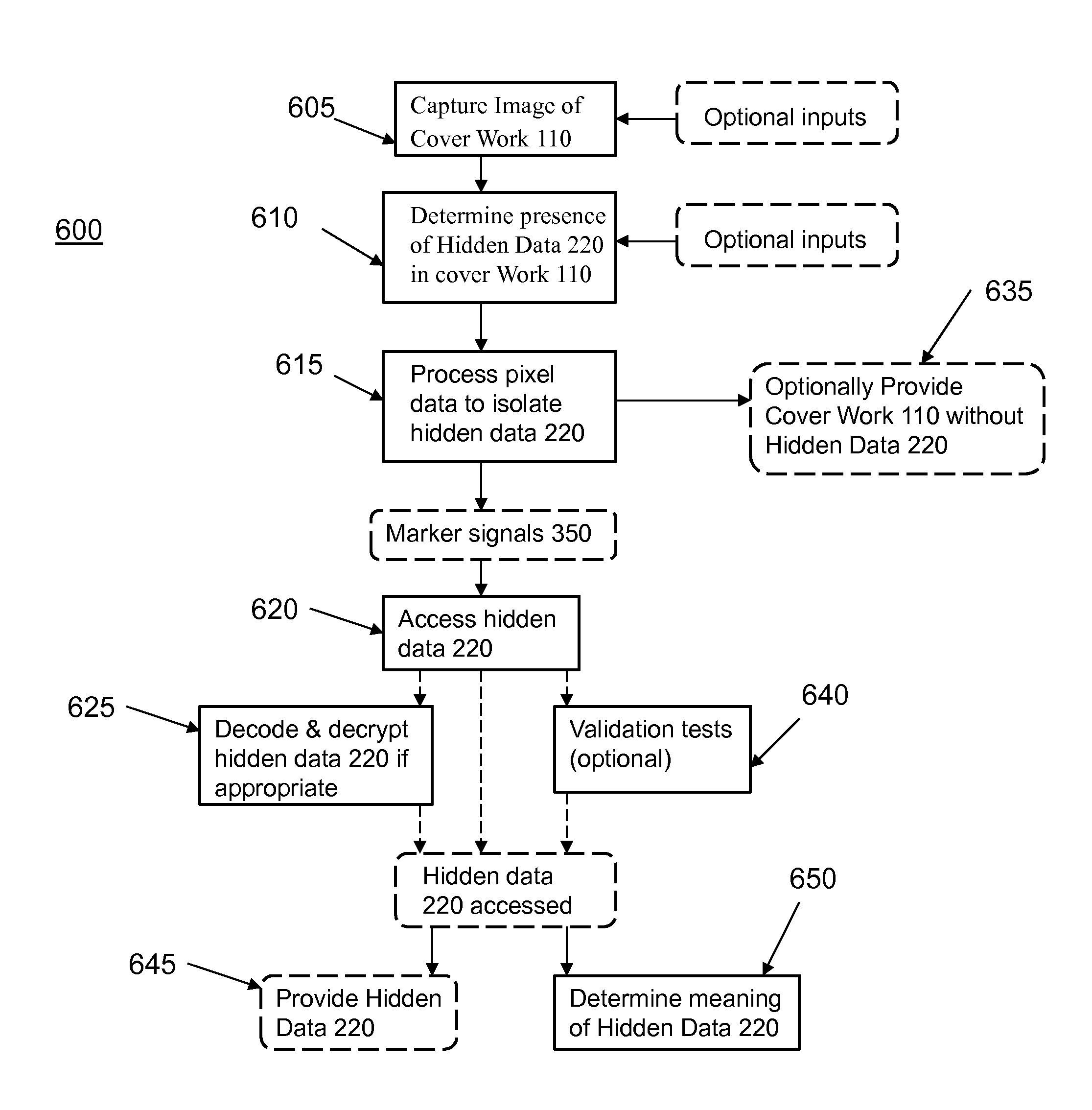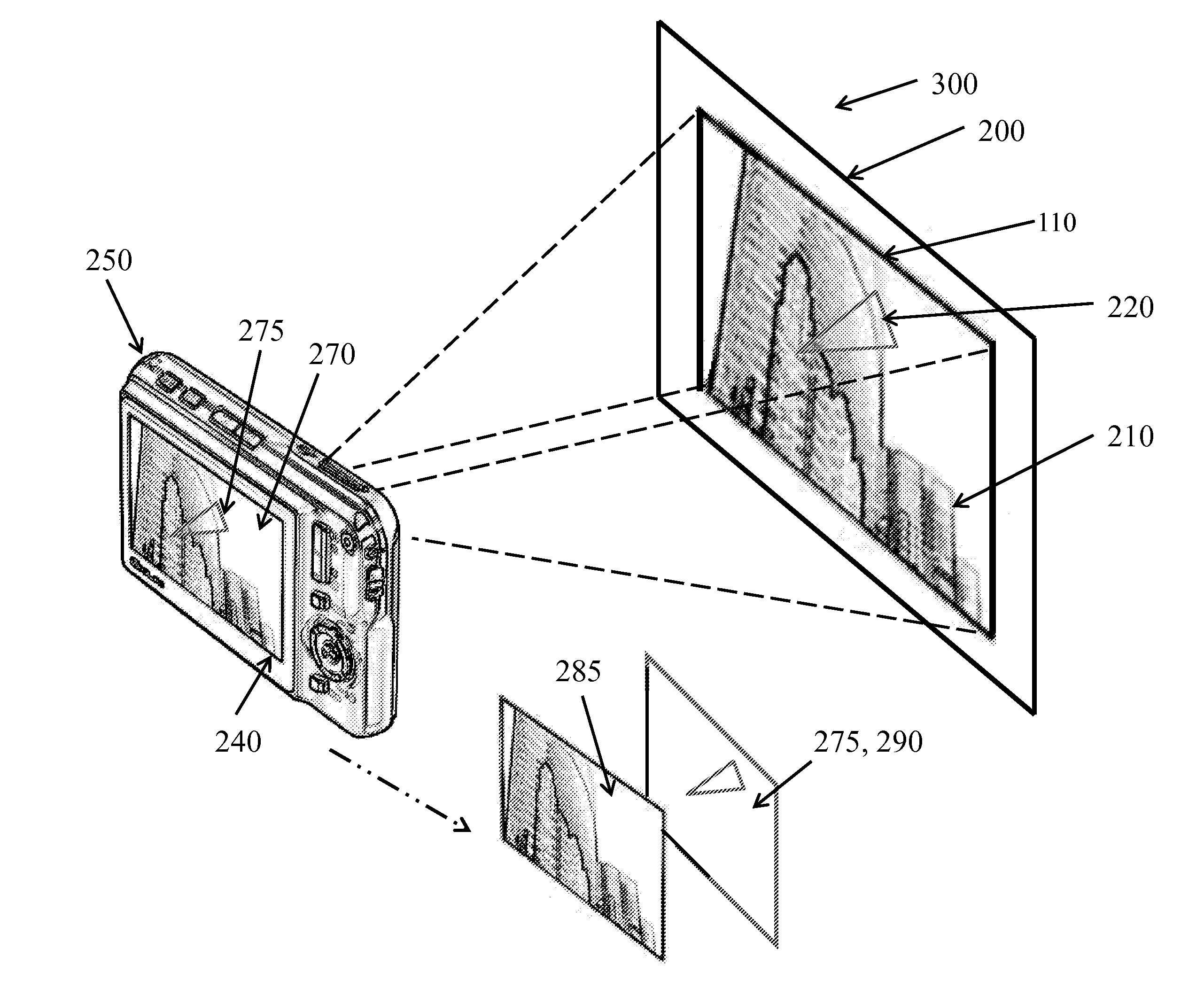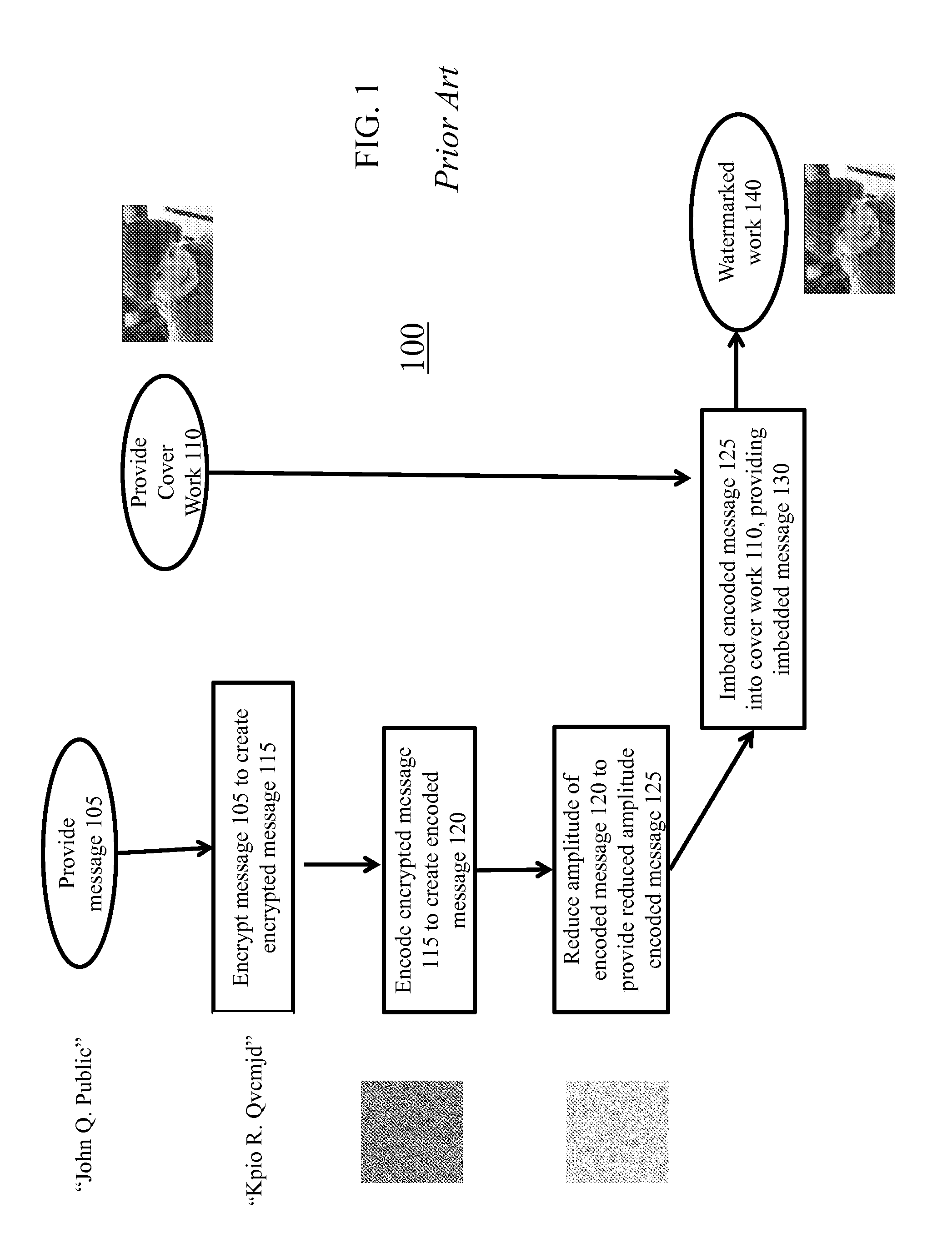Patents
Literature
Hiro is an intelligent assistant for R&D personnel, combined with Patent DNA, to facilitate innovative research.
1672 results about "Spectral response" patented technology
Efficacy Topic
Property
Owner
Technical Advancement
Application Domain
Technology Topic
Technology Field Word
Patent Country/Region
Patent Type
Patent Status
Application Year
Inventor
Closed-loop, daylight-sensing, automatic window-covering system insensitive to radiant spectrum produced by gaseous-discharge lamps
InactiveUS6084231AMaximized ratioOptical radiation measurementLight dependant control systemsSpectral responseLow-pass filter
A system for automatic regulation of daylight admitted by a window in the presence of artificial illumination produced by a high-efficiency (e.g., fluorescent-type) electric lamp. A preferred embodiment, adaptive window covering system 10, consists of an illuminance sensor 11, a conventional control apparatus 12, and a conventional shading means 13. System 10 is used in conjunction with a conventional, high-efficiency, electric lamp 14 and a conventional window 18, in a room 19. Sensor 11 produces a signal dependent on power contained in a portion of the daylight spectrum, but substantially insensitive to power contained in the spectrum of artificial illumination produced by lamp 14. In a preferred embodiment, sensor 11 includes a silicon photodiode and optical low-pass filter to provide a spectral response which extends from approximately 800 to 1200 nanometers, which falls outside the spectrum produced by typical fluorescent lamps (e.g, 300 to 750 nanometers). Sensor 11 is oriented to sample the ambient illumination in room 19, which includes both daylight and artificial components. Control apparatus 12 produces an actuating signal dependent on the output of sensor 11. Shading means 13 varies the amount of daylight admitted by window 18 as a function of the actuating signal produced by control apparatus 12. Thus, system 10 varies the amount of daylight admitted by window 18 as a function of the power contained in a portion of the daylight spectrum, but independent of the power contained in the spectrum produced by lamp 14.
Owner:POPAT PRADEEP P
Laser with tilted multi spatial mode resonator tuning element
ActiveUS7415049B2Optical resonator shape and constructionLaser output parameters controlSpectral responseExternal cavity laser
An external cavity laser has a mirror-based resonant tunable filter, such as a Fabry Perot tunable filter or Gires-Tournois interferometer tuning element, with the tunable filter being preferably used as a laser cavity mirror. A mirror-based resonant tunable filter is selected in which the spectral response in reflection has an angular dependence. A tilt scheme is used whereby by selecting an appropriate angle between the filter's nominal optical axis and the cavity optical axis, a narrowband peak spectral reflection is provided to the laser cavity. This tunable narrowband spectral reflection from the filter is used to lock and tune the laser output wavelength.
Owner:EXCELITAS TECH
Carbon nanotube based detector
ActiveUS7723684B1Material analysis by optical meansPyrometry using electric radation detectorsSpectral responseCarbon nanotube
Systems and methods for designing and fabricating carbon nanotube based detectors are disclosed. In some embodiments, one or more sensor elements can be formed from a film of single-walled carbon nanotubes (SWNTs). Bolometric properties of such detectors are disclosed. In some embodiments, the film can be thermally isolated in various ways, such as suspending the film and providing a vacuum environment, to provide the bolometric properties. Various properties of the SWNT films, such as resistivity-dependence on temperature and spectral response, can be obtained by adjusting the dimension and / or composition of the film. Examples of SWNT film formation, detector element fabrication, and array fabrication are disclosed.
Owner:RGT UNIV OF CALIFORNIA
Method and associated apparatus for the standardized grading of gemstones
InactiveUS6980283B1Process safetyInvestigating jewelsSpecial data processing applicationsSpectral responseData set
A method and associated apparatus (5) for the standardized grading of gemstones is provided. The system gauges the spectral response of a gemstone subject to a plurality of incident light sources (77, 64, 90, 92, 102) within an imaging apparatus. The operation of the imaging apparatus is controlled by an instruction set of a local station control data processor (12). Light energy data is captured in the form of pixel data sets via a charge coupled device of the imaging apparatus of the local station (8). The control data processor data of the local station is operably linked to analysis station (14). Gemstones qualities are analyzed by the plurality of light sources (92, 90, 102) of the imaging apparatus (5) and quantified relative to model pixel data sets of the database and recorded for future reference therein.
Owner:IMAGESTATISTICS
Analysis of multi-spectral data for extraction of chlorophyll content
Analysis of multi-spectral data for extraction of chlorophyll content. Multi-spectral data is obtained from an imaging device. The multi-spectral data contains spectral response data for chlorophyll and background data. The background data is removed from the multi-spectral data to isolate the spectral response due only to chlorophyll. This is then presented as a chlorophyll absorption feature which may be analyzed by measuring the width of the feature, the surface area of the feature, or measuring various angular changes of the feature. These measurements may than be used for a variety of purposes including plant health analysis.
Owner:DIGITALGLOBE INC
Optically enhanced multi-spectral detector structure
InactiveUS20080048102A1Improve efficiencyRadiation pyrometryPV power plantsSpectral responseLight beam
An integrated optical system and method employs an optical concentrator, a spectral splitting assembly for splitting incident light into multiple beams of light, each with a different nominal spectral bandwidth; and an array of optical detector sites wherein each of the detector sites has a nominal spectral response and wherein the detector sites are spatially arranged to provide an arrangement of said detector sites which are spatially variant relative to said nominal spectral responses. Such a system can be used for purposes such as optical detection and solar collection to provide improved efficiency. Improved efficiency of collection and manufacture are obtainable with using such devices.
Owner:EASTMAN KODAK CO
Laser with tilted multi spatial mode resonator tuning element
ActiveUS20060215713A1Optical resonator shape and constructionLaser output parameters controlExternal cavity laserSpectral response
An external cavity laser has a mirror-based resonant tunable filter, such as a Fabry Perot tunable filter or Gires-Tournois interferometer tuning element, with the tunable filter being preferably used as a laser cavity mirror. A mirror-based resonant tunable filter is selected in which the spectral response in reflection has an angular dependence. A tilt scheme is used whereby by selecting an appropriate angle between the filter's nominal optical axis and the cavity optical axis, a narrowband peak spectral reflection is provided to the laser cavity. This tunable narrowband spectral reflection from the filter is used to lock and tune the laser output wavelength.
Owner:EXCELITAS TECH
LIDAR system
Methods for using spectrally separated light pulses to collect more LIDAR information are presented. In one embodiment, a monochromatic pulse is transmitted to collect range information and a white pulse is transmitted a short time afterwards to collect spectral responsivity information or color of the target. In another embodiment, the white light pulse is used to collect both range and spectral responsivity information of the target. In another embodiment, the spectral separated laser is spatially spread in order to collect range information over more than one point at a time.
Owner:LEICA GEOSYSTEMS AG
Automated overlay metrology system
InactiveUS20020192577A1Reduced expense and complexityHigh resolutionSemiconductor/solid-state device testing/measurementSemiconductor/solid-state device detailsSpectral curveSpectral response
Non-imaging measurement is made of misalignment of lithographic exposures by illuminating periodic features of a mark formed by two lithographic exposures with broadband light and detecting an interference pattern at different wavelengths using a specular spectroscopic scatterometer including a wavelength dispersive detector. Misalignment can be discriminated by inspection of a spectral response curve and by comparison with stored spectral response curves that may be empirical data or derived by simulation. Determination of best fit to a stored spectral curve, preferably using an optimization technique can be used to quantify the detected misalignment. Such a measurement may be made on-line or in-line in a short time while avoiding tool induced shift, contact with the mark or use of a tool requiring high vacuum.
Owner:NIKON CORP
Bragg grating sensor system with spectral response or code division multiplexing
InactiveUS6489606B1Radiation pyrometryForce measurement by measuring optical property variationFiberGrating
The present invention provides a sensor system for sensing a parameter, comprising an optical source, coupler and signal processor system in combination with multiple structured fiber Bragg gratings. The optical source, coupler and signal processor system provide an optical source signal to the multiple structured fiber Bragg gratings. The optical source, coupler and signal processor system also responds to multiple structured fiber Bragg grating signals, for providing an optical source, coupler and signal processor system signal containing information about a sensed parameter. The multiple structured fiber Bragg gratings respond to the optical source signal, and further respond to the sensed parameter, for providing the multiple structured fiber Bragg grating signals containing information about a complex superposition of spectral responses or codes related to the sensed parameter. Each of the multiple structured fiber Bragg gratings includes a respective broadband spectral response or code related to the sensed parameter.
Owner:ILLUMINA INC
Optical filter device with aperiodically arranged grating elements
InactiveUS6993222B2Laser optical resonator constructionCladded optical fibreSpectral responseGrating
A method for producing aperiodic gratings and waveguides with aperiodic gratings uses a simulated annealing process that starts with a random configuration of grating elements and iteratively computes a spectral response from a Fourier transform of the configuration of grating elements obtained in successive iterations. A cost function is computed as a convergence criterion. The aperiodic grating can be used, for example, as a filter in WDM applications.
Owner:ATOMERA INC
Distributed strain and temperature discrimination in polarization maintaining fiber
ActiveUS7538883B2Force measurement by measuring optical property variationMaterial analysis by optical meansFiberSpectral response
A portion of a polarization maintaining (PM) optical fiber having two polarization states is analyzed. First and second spectral responses of the PM fiber portion are determined. In a preferred implementation, the spectral responses are determined using Optical Frequency Domain Reflectometry (OFDR). Each polarization state of the PM fiber portion has a corresponding spectral component in the first spectral response. First and second spectral analyses of the PM fiber portion are performed using the first and second spectral responses. Based on those spectral analyses of the PM fiber portion, a first physical characteristic affecting the PM fiber portion is determined that is distinct from a second different physical characteristic affecting the fiber portion. Example physical characteristics include temperature and strain. An output signal related to the first physical characteristics affecting the fiber portion is provided, e.g., for display, further processing, etc.
Owner:INTUITIVE SURGICAL OPERATIONS INC
Calculation of birefringence in a waveguide based on Rayleigh scatter
ActiveUS7330245B2Reflectometers dealing with polarizationCladded optical fibreRayleigh scatteringSpectral response
Light is coupled into two polarization modes of a waveguide, e.g., an optical fiber. The spectral response of Rayleigh backscatter in the waveguide segment for the two polarization modes is measured, e.g., using OFDR, OTDR, OLCR, etc. The autocorrelation of the spectral response is calculated. The spectral (wavelength) shift from a main autocorrelation peak to a side autocorrelation peak, corresponding to one of the two polarization modes of the waveguide segment, is determined. The spectral shift, corresponding to a beat length of the waveguide segment, is multiplied by an average index of refraction to determine a birefringence of the waveguide segment.
Owner:INTUITIVE SURGICAL OPERATIONS INC
Photoconductor on active pixel image sensor
InactiveUS20040036010A1Low costMass productionTelevision system detailsTelevision system scanning detailsSemiconductor materialsSpectral response
A MOS or CMOS based photoconductor on active pixel image sensor. Thin layers of semi-conductor material, doped to PIN or NIP photoconducting layers, located above MOS and / or CMOS pixel circuits produce an array of layered photodiodes. Positive and negative charges produced in the layered photodiodes are collected and stored as electrical charges in the MOS and / or CMOS pixel circuits. The present invention also provides additional MOS or CMOS circuits for reading out the charges and for converting the charges into images. With the layered photodiode of each pixel fabricated as continuous layers of charge generating material on top of the MOS and / or CMOS pixel circuits, extremely small pixels are possible with almost 100 percent packing factors. MOS and CMOS fabrication techniques permit sensor fabrication at very low costs. In preferred embodiments all of the sensor circuits are incorporated on or in a single crystalline substrate along with the sensor pixel circuits. Techniques are disclosed for tailoring the spectral response of the sensor for particular applications.
Owner:E PHOCUS
Method and apparatus for multi-spectral photodetection
InactiveUS20050205758A1Increase luminous fluxEliminate needRadiation pyrometrySpectrum investigationSpectral responseElectrical conductor
A multispectral photodetector array includes a two-dimensional array of photodetectors, either photodiodes or photoconductors, are coupled to a read out integrated circuit. The integrated circuit collects electrical signals from individual pixels of the array. Such an array differs from a conventional array in that each row or group of rows in the array has a distinct spectral response.
Owner:UNITED STATES OF AMERICA AS REPRESENTATED BY THE DEPT OF THE ARMY
Method and device for wavelength-sensitive photo-sensing
A semiconductor device includes a conducting channel (130) formed beneath a substrate surface with a pre-determined photo-conductivity spectral response. The channel is formed between two pn-junctions (126, 128) defining first and third photo-electric depletion regions at respective depths relative to the surface corresponding to penetration depths of light of different wavelengths. The first region (106) which has the light absorbing surface (104) above the first pn-junction (126) is specific to a first colour. The channel region (130) between the two pn-junctions (126, 128) is photo-conductive to a second colour. The third region below the second pn-junction (128) is sensitive to a third colour. Electrical contacts (118, 120, 122, 124) are disposed on the source (112), the top gate (106), the drain (114) and the bottom gate (116) for receiving the electrical currents induced by the presence of the absorbed wavelengths.
Owner:NANYANG TECH UNIV
Fake currency detector using visual and reflective spectral response
InactiveUS20060115139A1Paper-money testing devicesCharacter and pattern recognitionSpectral responsePhotodetector
A system for automatic detection of authenticity of security documents by measuring reflected components of incident energy in three or more optical wave bands. The system involves the use of UV-visible light source, an optional near infra red light source, photodetectors and associated sensing circuitry. Photoelectric signals generated by photodetectors from the reflected energy received from a security document are used to verify its authenticity under UV-visible along with optional near infra red illumination. The process involves measurement of energy reflected as photoelectric signals from a security document in at least three optical wavebands by suitably located photodetectors with appropriate wave band filters and the electronic signal processing to distinguish between a genuine document from a fake one for ultimate LED indicator display and audio-visual alarms, hence the detection of fake security document.
Owner:COUNCIL OF SCI & IND RES
Method for making spectrally efficient photodiode structures for CMOS color imagers
InactiveUS6518085B1Solid-state devicesSemiconductor/solid-state device manufacturingQuantum efficiencyCMOS
A method for making an array of photodiodes with more uniform optical spectral response for the red, green, and blue pixel cells on a CMOS color imager is achieved. After forming a field oxide on a substrate to electrically isolate device areas for CMOS circuits, an array of deep N doped wells is formed for photodiodes for the long wavelength red pixel cells. An array of P doped well regions is formed adjacent to and interlaced with the N doped wells. Shallow diffused N+ regions are formed within the P doped wells for the shorter wavelength green and blue color pixels cells. The shallow diffused photodiodes improve the quantum efficiency (QE), and provide a color imager with improved color fidelity. An insulating layer and appropriate dye materials are deposited and patterned over the photodiodes to provide the array of color pixel cells. The N and P doped wells are also used for the supporting FET CMOS circuits to provide a cost-effective manufacturing process.
Owner:TAIWAN SEMICON MFG CO LTD
Digital filter spectrum sensor
ActiveUS8284401B2Radiation pyrometryAbsorption/flicker/reflection spectroscopyBandpass filteringSpectral response
A spectrum sensing method includes (a) receiving an incident radiation simultaneously through a filter array composed of multiple bandpass filters, (b) digitizing spectral responses of the filter array, and (c) generating an estimate of spectral profile of the incident radiation based on digitized spectral responses of the filter array.
Owner:NANOLAMBDA
Bi/BiOCl (bismuth oxychloride) composite photocatalyst as well as in-situ reduction preparation method and application thereof
InactiveCN103908973AImprove photocatalytic performanceEfficient degradationWater/sewage treatment by irradiationCatalyst activation/preparationSpectral responseGas phase
The invention relates to the technical field of nanometer materials and photocatalytic degradation of organic pollutants, and in particular relates to a Bi / BiOCl (bismuth oxychloride) composite photocatalyst as well as an in-situ reduction preparation method and application thereof. Bi nano-particles with particle sizes of 5-20nm are uniformly distributed on a BiOCl nanosheet with 100-600nm or a the surface of a BiOCl microsphere being 1-3 microns to obtain the Bi / BiOCl composite photocatalyst; the Bi / BiOCl composite photocatalyst is prepared by gaseous-phase in-situ reduction or liquid-phase in-situ reduction; as Bi nano-particles are formed on a BiOCl substrate in an in-situ manner, the lattice matching degree of interfaces between the Bi and the BiOCl is high and the charge migration is facilitated; the Bi nano-particles have the good dispersibility, are difficult to cause agglomeration, and have the good size and distribution controllability; the Bi nano-particles can be well combined with the BiOCl and are difficult to drop off, the photo catalytic capability of the BiOCl under the existence of ultraviolet light can be improved, the spectral response range is expanded, and the visible photo catalytic capability can be acquired, and the Bi / BiOCl composite photocatalyst can be effectively applied to photocatalytic degradation of organic pollutants in a water body.
Owner:HEFEI UNIV OF TECH
Multiple energy ct scanner
InactiveUS20120236987A1Radiation/particle handlingComputerised tomographsUltrasound attenuationSoft x ray
A CT scanner for multiple energy CT scanning of a subject having an X-Ray source adapted to rotate about the subject; and a detector array, having a plurality of detector elements, adapted to acquire attenuation data for X-Rays that have been attenuated by a subject disposed between said X-Ray source and said detector array, said detector array comprising at least two types of detector element, which are differ by their spectral response. The scanner is adapted to generate images associated with the different X-Ray energy spectra.
Owner:RUIMI DAVID +2
Spectral selection and image conveyance using micro filters and optical fibers
ActiveUS20060017928A1Eliminate needFacilitate transmissionColor/spectral properties measurementsOptical elementsFiberSpectral response
The present invention features a fiber optic imaging system for generating a customized spectral response comprising (a) an optional optical source for generating optical energy, (b) an optical system for focusing multi spectral optical energy to form a focal surface; (b) a fiber optic element for conveying the optical energy, wherein the fiber optic element has an input end optically coupled to the focal surface to receive the optical energy and an output end to transmit the conveyed optical energy; and (c) a spectral filter optically coupled to at least one of the input and output ends of the fiber optic element, wherein the spectral filter has a filter passband configured to provide the fiber optic element with a pre-determined wavelength transmittance capacity, such that only pre-determined wavelengths of the optical energy are transmitted through the output end, thus achieving a customized spectral response. The fiber optic imaging system may further comprise an imaging array optically coupled to the output end of the fiber optic element and configured to gather the transmitted optical energy and to convert it into a data signal corresponding to an image based on the customized spectral response. An example of this type of configuration is a spectrometer.
Owner:UTAH STATE UNIVERSITY
Aspects of mass spectral calibration
InactiveUS20060169883A1Improve accuracyHigh resolutionTime-of-flight spectrometersMaterial analysis by optical meansElemental compositionSpectral response
A method for calibrating and analyzing data from a mass spectrometer, comprising the steps of acquiring raw profile mode data containing mass spectral responses of ions with or without isotopes; calculating theoretical isotope distributions for each of at least one calibration ion based on elemental composition; convoluting the theoretical isotope distributions with an initial peak shape function to obtain theoretical isotope profiles for each ion; constructing a peak component matrix including the theoretical isotope profiles for calibration ions as peak components; performing a regression analysis between the raw profile mode mass spectral data and the peak component matrix; and reporting the regression coefficients as the relative concentrations for each of the components. A mass spectrometry system operated in accordance with the method and a computer readable medium having program code thereon for performing the method.
Owner:CERNO BIOSCI
Quantum resonance analytical instrument
Quantum resonance fluorescent microscope systems for detecting component substances in a specimen are described. The systems are based on exciting the sample containing the material with a femtosecond to nanosecond probe pulse of collimated light, which is tailored to optimize detection of a given material by separating the probe pulse into component features of frequency, polarization, phase and / or amplitude. The component features are independently shaped and formed into a composite pulse selected to optimize a signature response pulse received from the material. In some cases, two independently re-shaped pulses are combined, where one re-shaped pulse has two mixed polarization states and the other re-shaped pulse is linearly polarized. These two pulses are made to intersect at an angle of 90 degrees so that the combined pulse has electric field in each of the XYZ axes. Selection of the appropriate shapes for the component features of the pulses for a given material is accomplished by testing variations in the features on the material, assigning a fitness value to variants that tend to optimize a distinctive spectral response from the material, and using a genetic algorithm to select the combination of component features that enhances the distinctiveness of the response received over a typical background.
Owner:MCGREW STEPHEN P
Multi-modal image capture
InactiveUS20120249819A1Reduce noiseReduce spacingTelevision system detailsSignal generator with single pick-up deviceSpectral responseMultispectral image
An image capture apparatus includes an image sensor which has a tunable spectral response and which is tunable in accordance with a capture mask to capture multi-spectral image data. Light-field optics are arranged to project light-field information of a scene onto the image sensor.
Owner:CANON KK
Multi-spectral infrared super-pixel photodetector and imager
InactiveUS7135698B2Solid-state devicesMaterial analysis by optical meansSpectral responsePhotovoltaic detectors
A multi-spectral super-pixel photodetector for detecting four or more different bands of infrared radiation is described. The super-pixel photodetector includes two or more sub-pixel photodetectors, each of which includes a diffractive resonant optical cavity that resonates at two or more infrared radiation bands of interest. By detecting infrared radiation at two or more different applied biases and by generating a spectral response curve for each of the sub-pixel photodetectors at each of these biases, the response to each of the individual bands of infrared radiation can be calculated. The response to each band of infrared radiation can be found by deconvolving the response at each bias. The super-pixel photodetector finds use in military and medical imaging applications and can cover a broad portion of the infrared spectrum.
Owner:LOCKHEED MARTIN CORP
Fake currency detector using integrated transmission and reflective spectral response
ActiveUS20060159329A1Paper-money testing devicesCharacter and pattern recognitionReflection spectroscopySpectral response
A currency genuineness detection system using plurality of opto-electronic sensors with both transmission and reflective (including fluorescence) properties of security documents is developed. Both detection sensing strategies utilise integrated response of the wide optical band sensed under UV visible along with optional near infra red light illumination. A security document is examined under static condition. A window signal signature is thus possible from photodetectors responses for various kinds of documents of different denominations, kinds and country of origin. A programmable technique for checking the genuineness of a security document is possible by feeding a unique code of the currency under examination.
Owner:COUNCIL OF SCI & IND RES
Photonic crystal mirrors for high-resolving power fabry perots
A Fabry-Perot cavity comprised of three-dimensional photonic crystal structures is disclosed. The self-assembly of purified and highly monodispersed microspheres is one approach to the successful operation of the device for creating highly ordered colloidal crystal coatings of high structural and optical quality. Such colloidal crystal film mirrors offer high reflection with low losses in the spectral window of the photonic band gap that permit Fabry-Perot resonators to be constructed with high resolving power, for example, greater than 1000 or sharp fringes that are spectrally narrower than 1.0 nm. The three-dimensional photonic crystals that constitute the Fabry-Perot invention are not restricted to any one fabrication method, and may include self-assembly of colloids, layer-by-layer lithographic construction, inversion, and laser holography. Such photonic crystal Fabry-Perot resonators offer the same benefits of high reflection and narrow spectral band responses available from the use of multi-layer dielectric coatings. However, the open structure of three-dimensional photonic crystal films affords the unique ability for external media to access the critical reflection layers and dramatically alter the Fabry-Perot spectrum, and provide means for crafting novel laser, sensor, and nonlinear optical devices. This open structure enables the penetration of gas and liquid substances, or entrainment of nano-particles or biological analytes in gases and liquids, to create subtle changes to the colloidal mirror responses that manifest in strong spectral responses in reflection and transmission of the collective Fabry Perot response.
Owner:HERMAN PETER +2
Spectral edge marking for steganography or watermarking
InactiveUS20130335783A1Massive absorptionVisual presentation using printersRecord carriers used with machinesPrint mediaSpectral edge
A print media (200) comprises paper or other substrate, on which image content, whether text or images are printed with accompanying hidden data (220). The image content is printed with one or more normal printing process visible colorants (340), while the hidden data (220) is printed with spectral edge markers (320). The spectral edge marker materials (320) have a substantial spectral absorption just outside the human visible spectrum, and only slight visible absorption, which is masked by the visible colorants (340). Although the hidden data is nominally visually imperceptible, an image capture device (250) having a visible spectral response that extends into a spectral region just outside the visible spectrum where the spectral edge marker absorption occurs, can then detect the hidden data.
Owner:EASTMAN KODAK CO
Spectral edge marking for steganography or watermarking
InactiveUS20130336525A1Massive absorptionPaper-money testing devicesPattern printingSpectral edgePrint media
A system for detecting visibly hidden content on a print media (200) in which image content is printed with one or more normal printing process visible colorants (340), and which further includes embedded hidden data (220) printed with spectral edge markers (320). These spectral edge marker materials (320) have a substantial spectral absorption just outside the human visible spectrum, either at the UV edge or IR edge, but only slight visible absorption which is masked by the visible colorants (340). Although the hidden data is nominally visually imperceptible, an image capture device (250) having a visible spectral response from at least one spectrally distinct color imaging channel that extends into a spectral region just outside the visible spectrum where the spectral edge marker absorption occurs, can then detect the hidden data.
Owner:EASTMAN KODAK CO
Features
- R&D
- Intellectual Property
- Life Sciences
- Materials
- Tech Scout
Why Patsnap Eureka
- Unparalleled Data Quality
- Higher Quality Content
- 60% Fewer Hallucinations
Social media
Patsnap Eureka Blog
Learn More Browse by: Latest US Patents, China's latest patents, Technical Efficacy Thesaurus, Application Domain, Technology Topic, Popular Technical Reports.
© 2025 PatSnap. All rights reserved.Legal|Privacy policy|Modern Slavery Act Transparency Statement|Sitemap|About US| Contact US: help@patsnap.com



